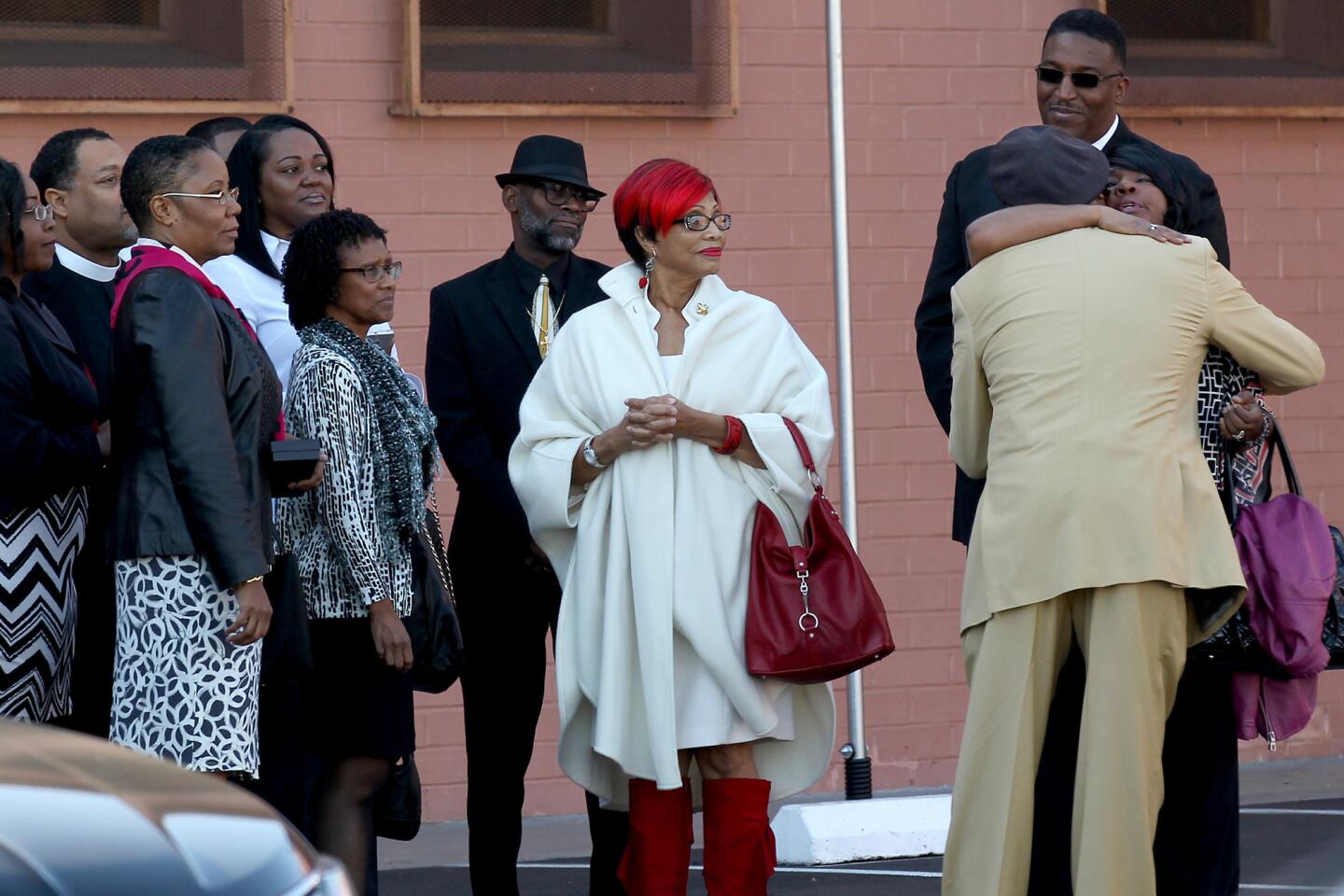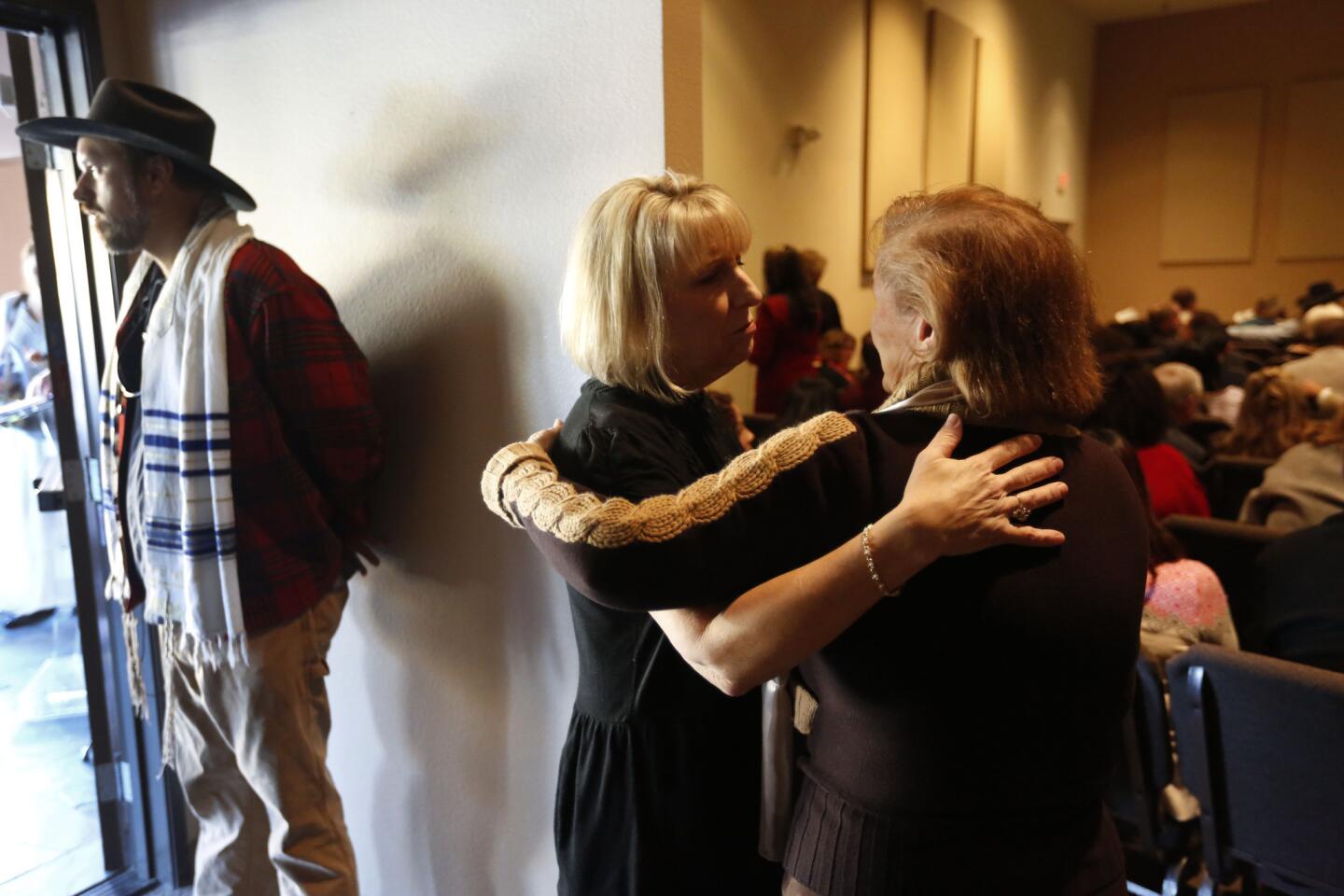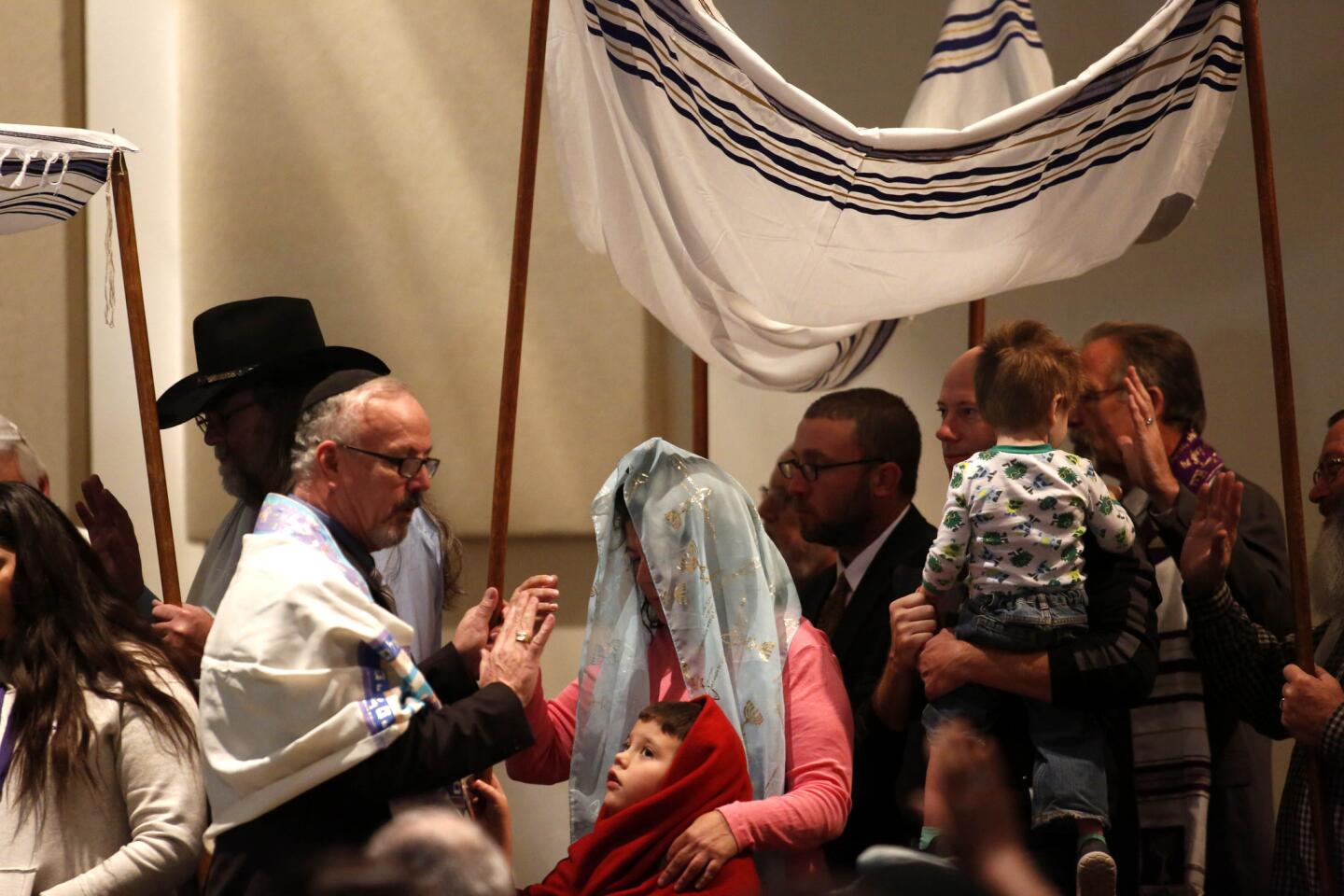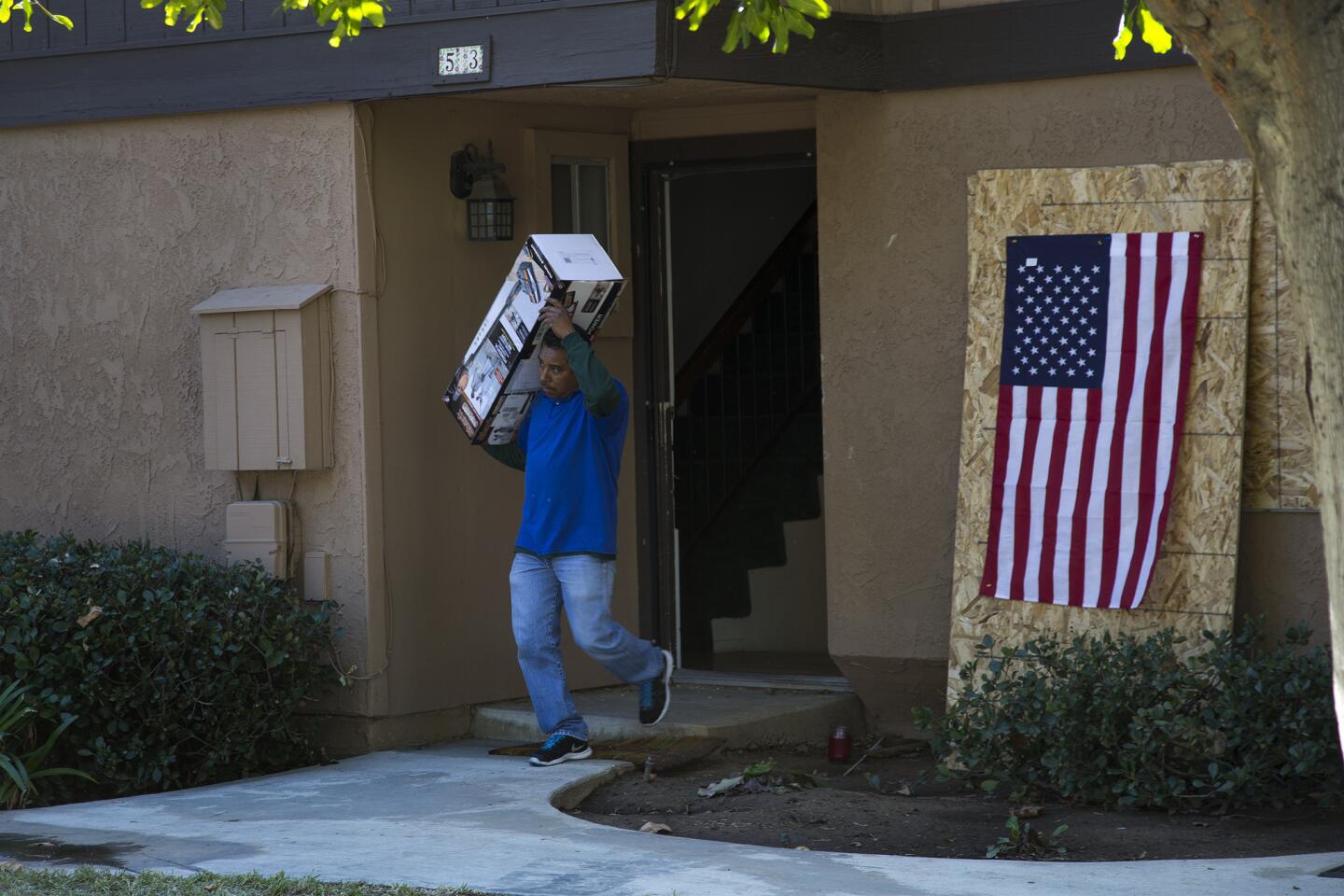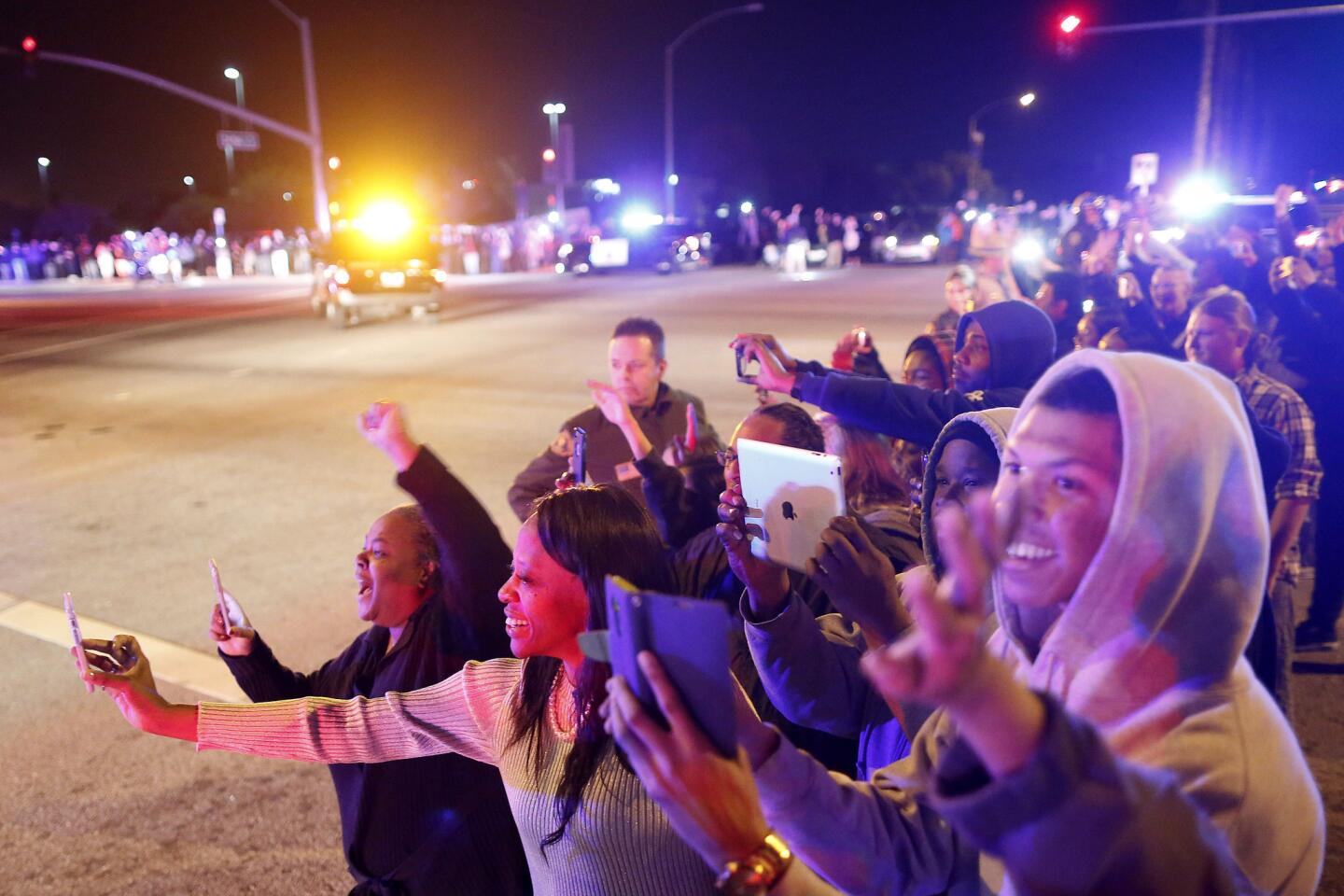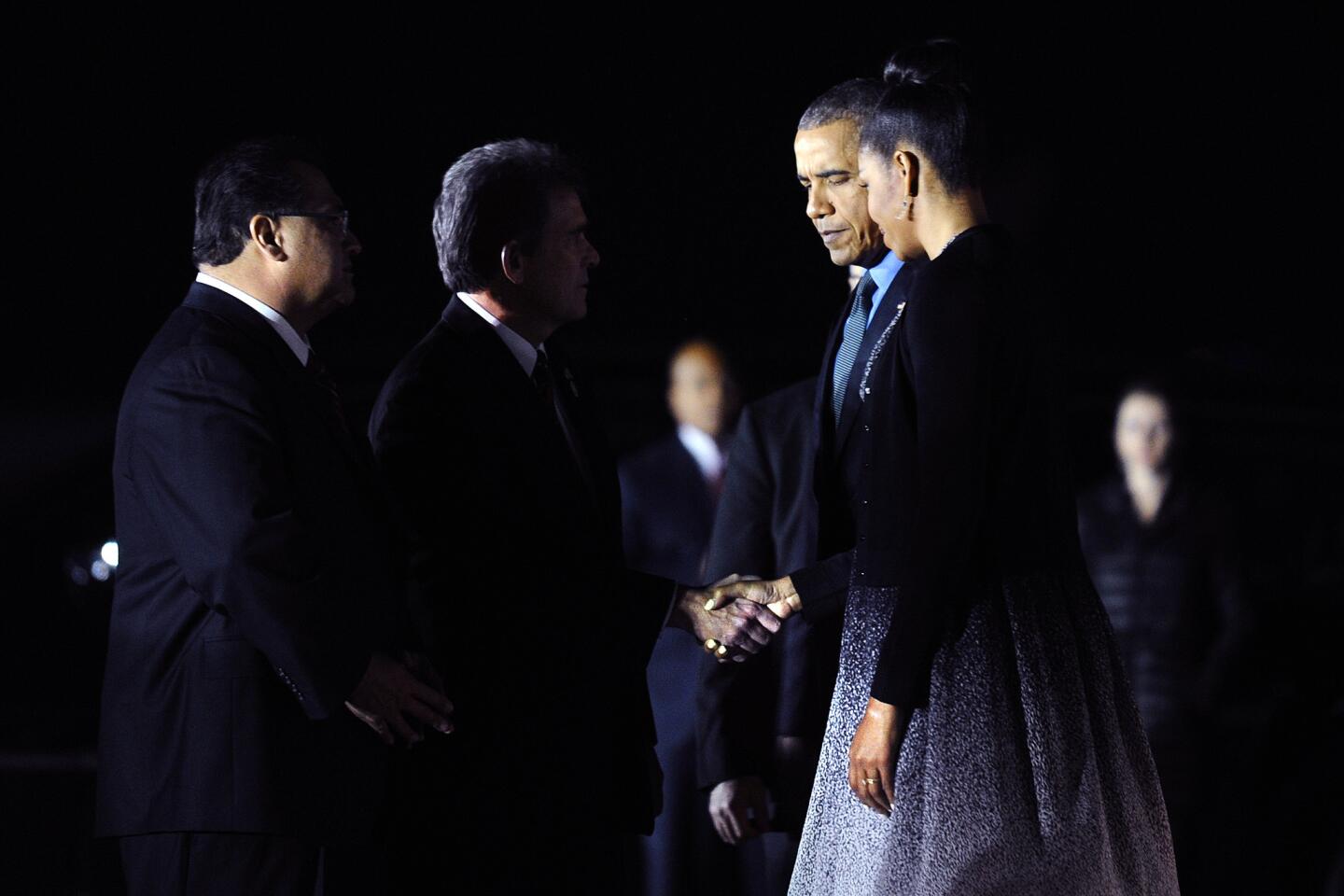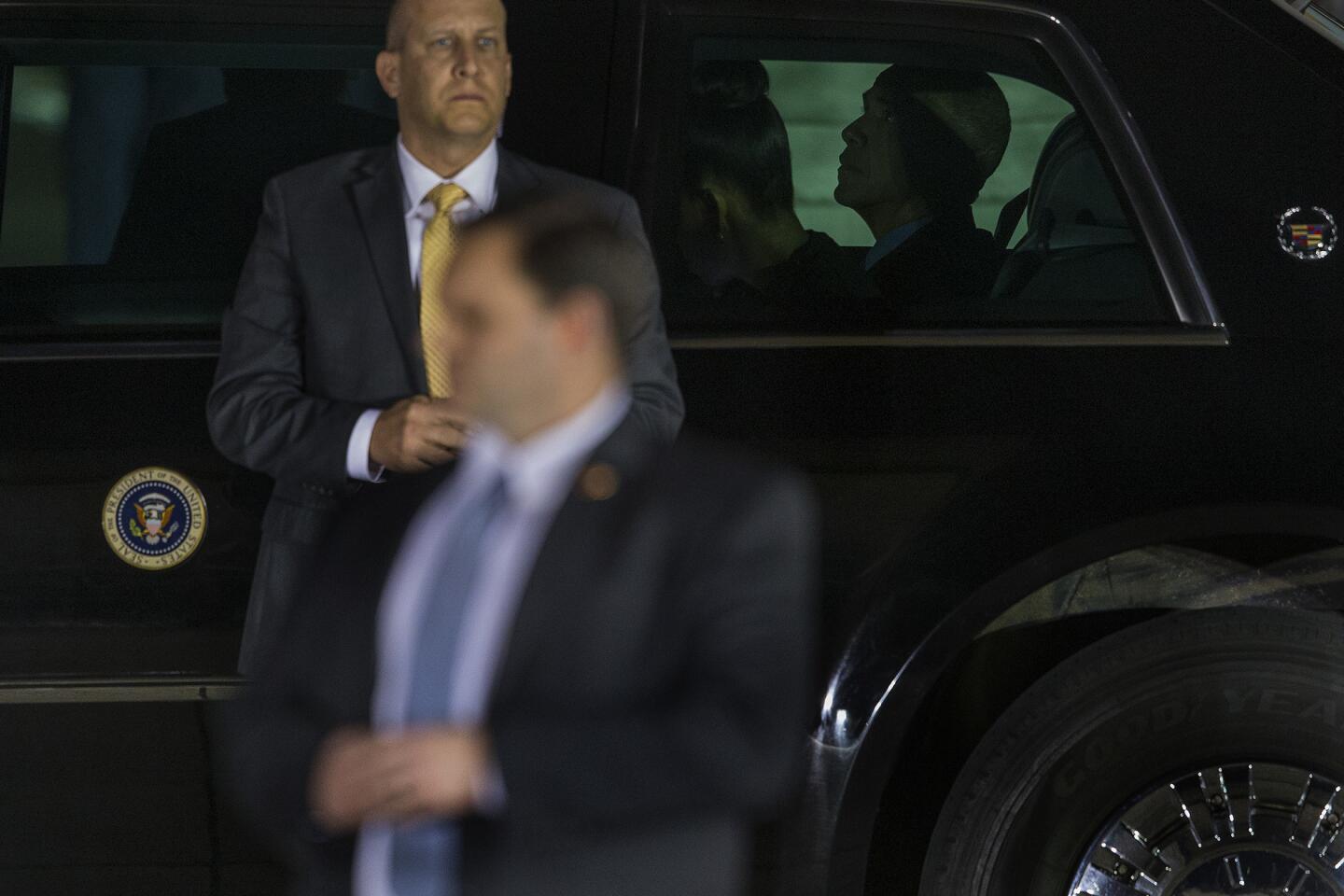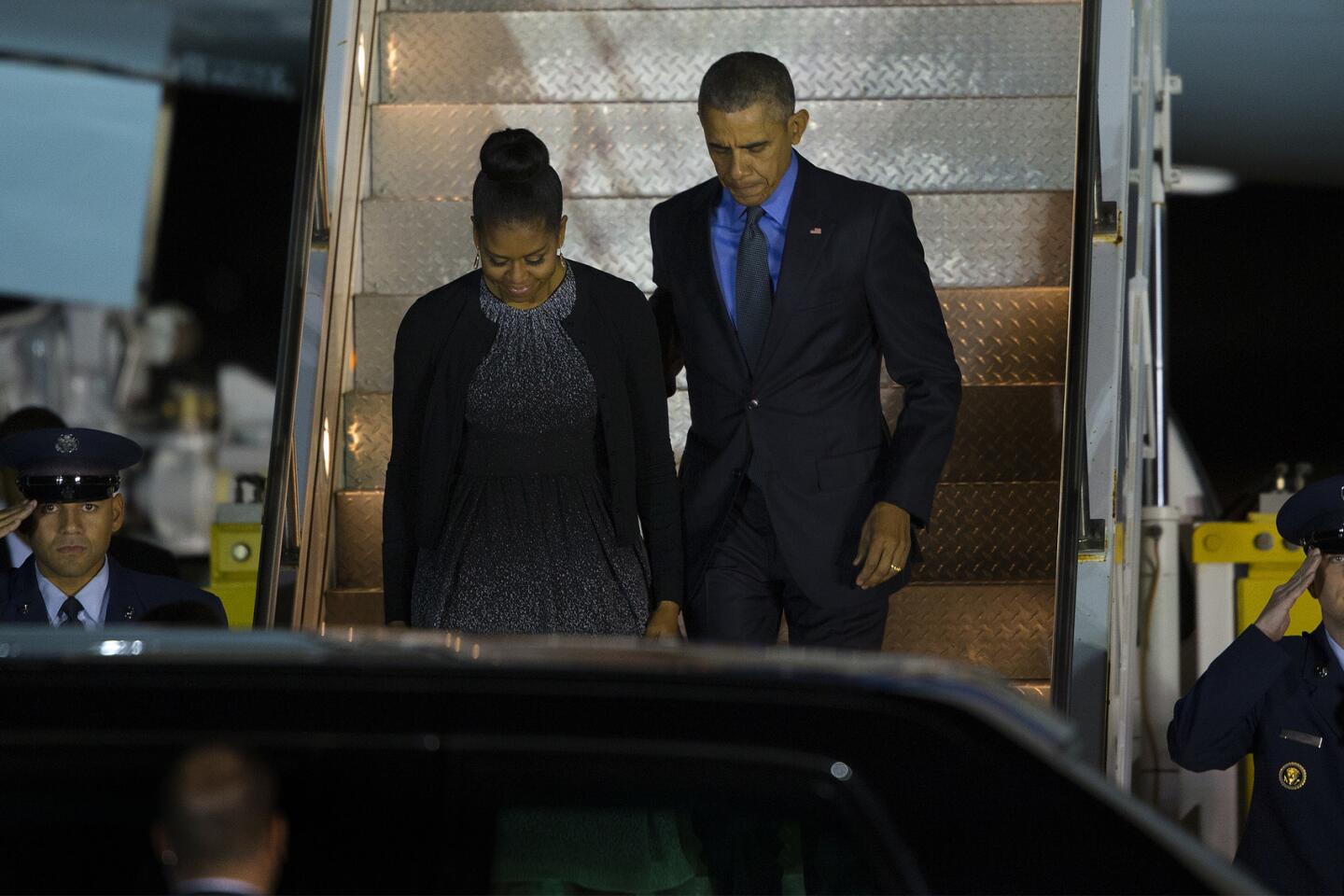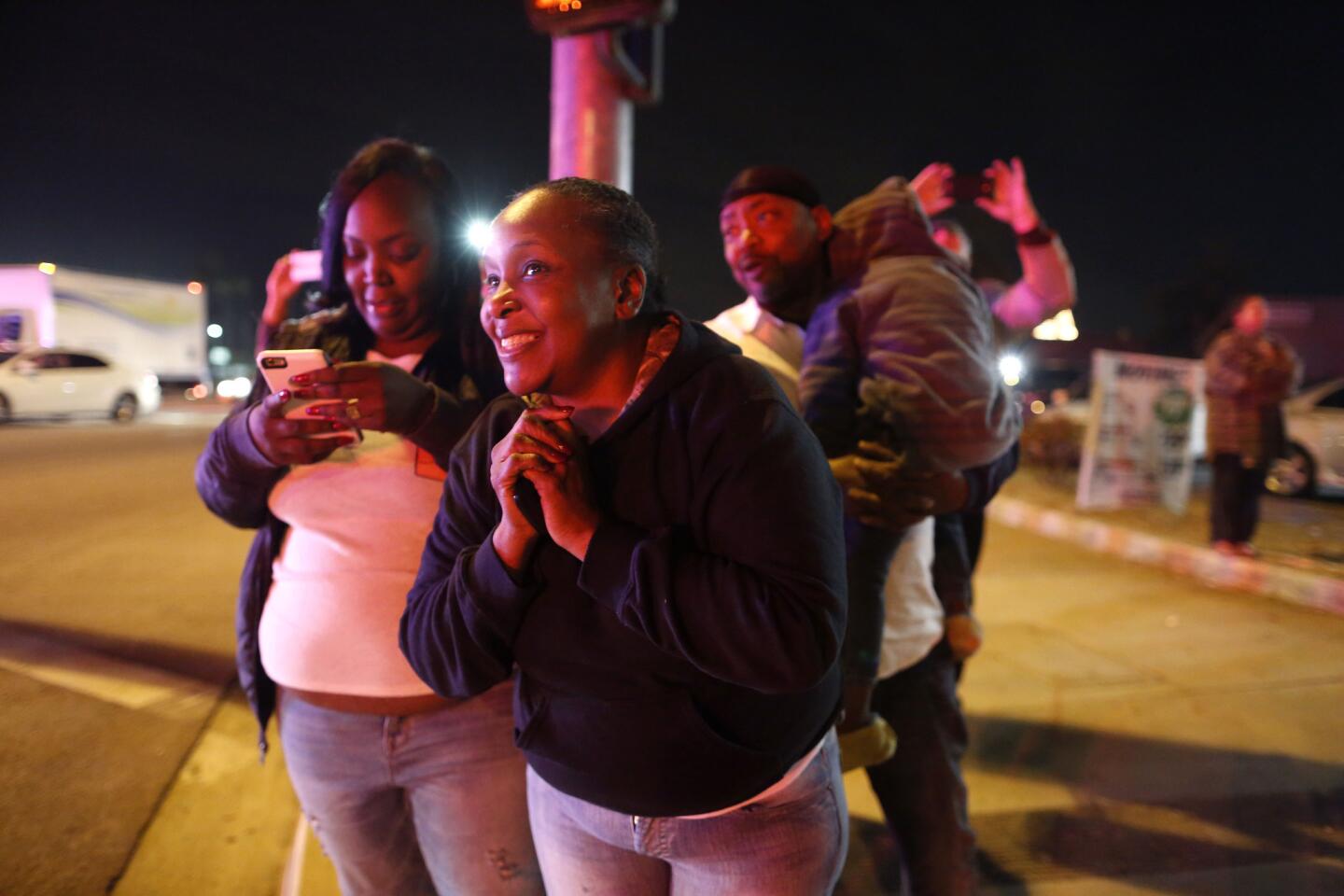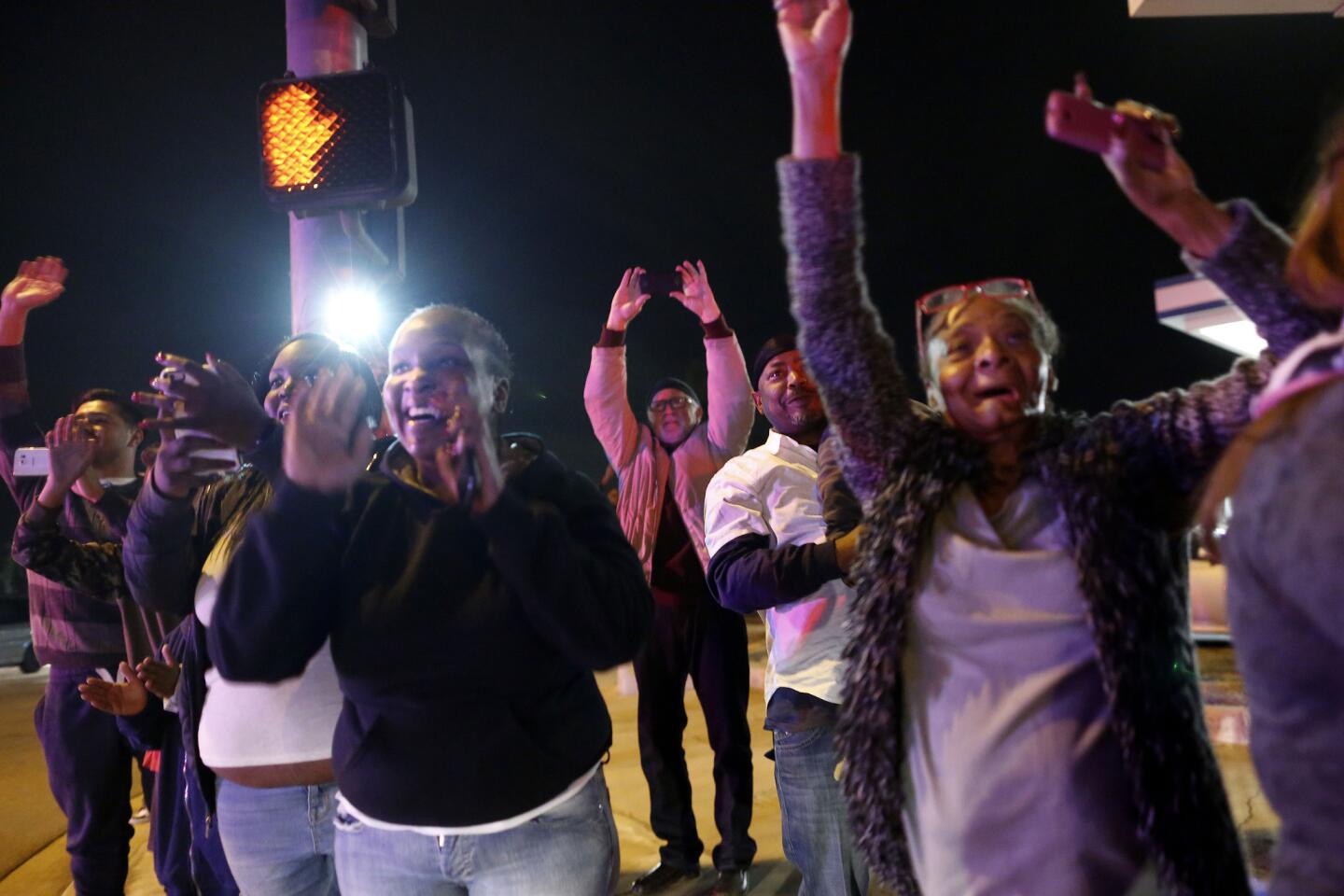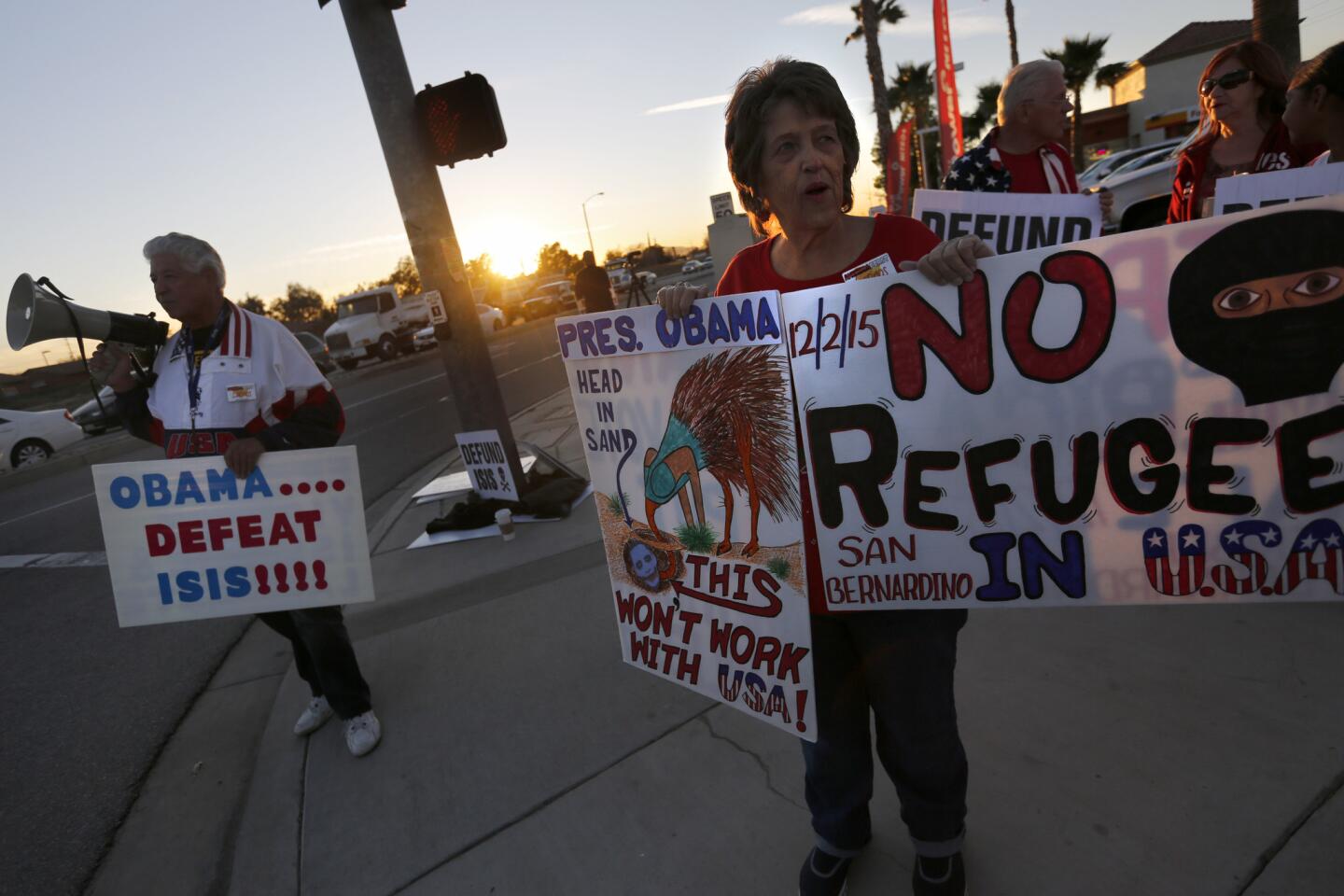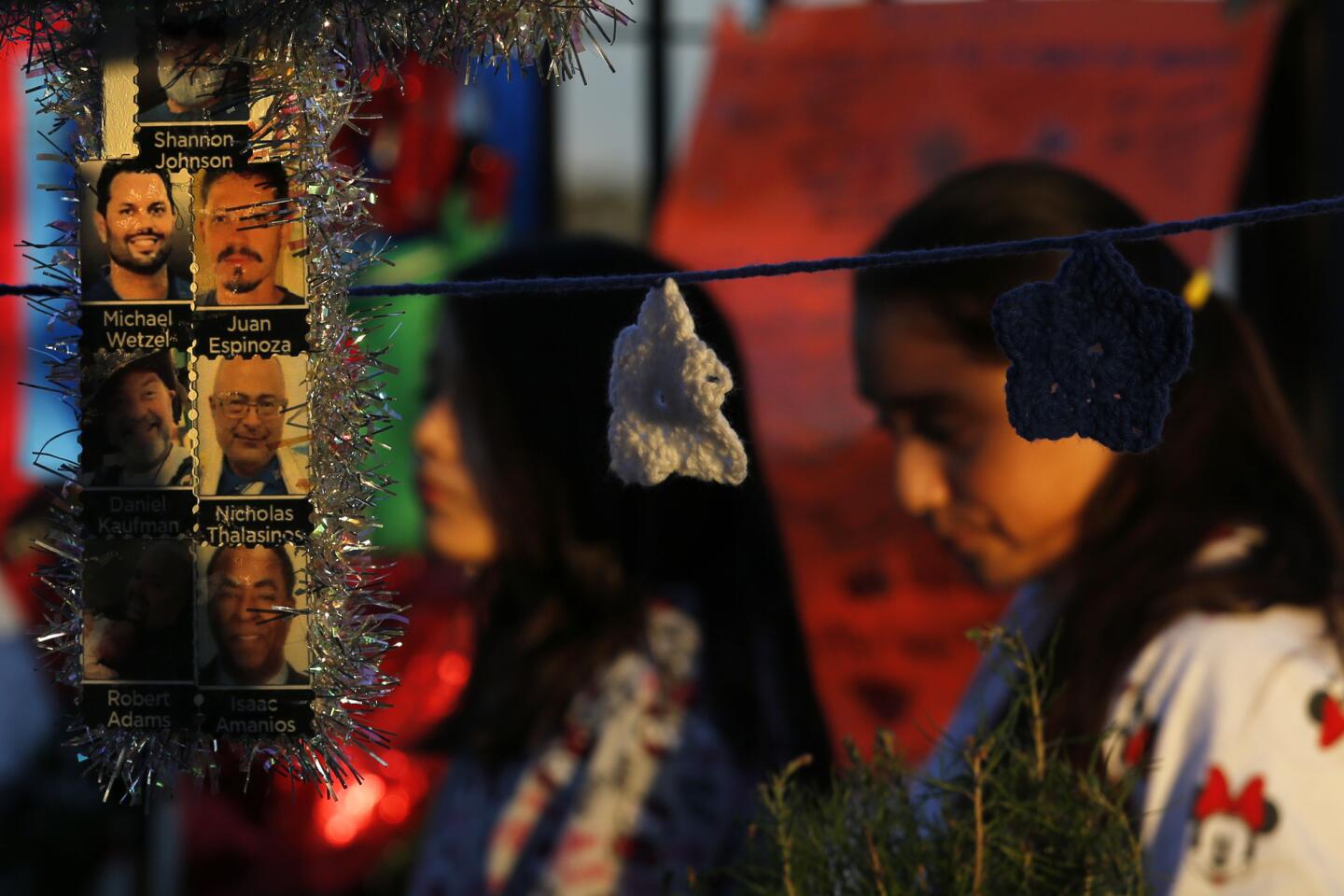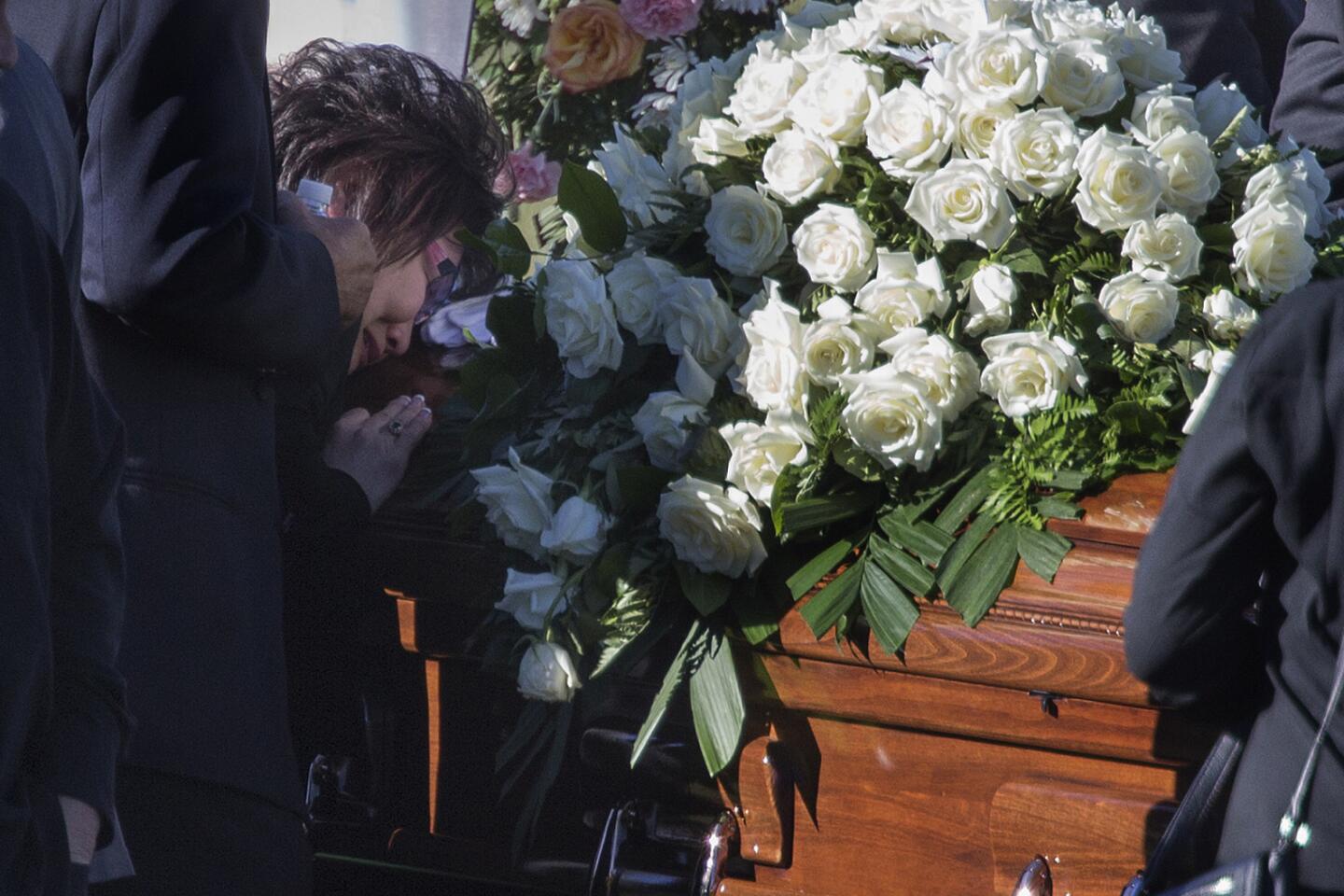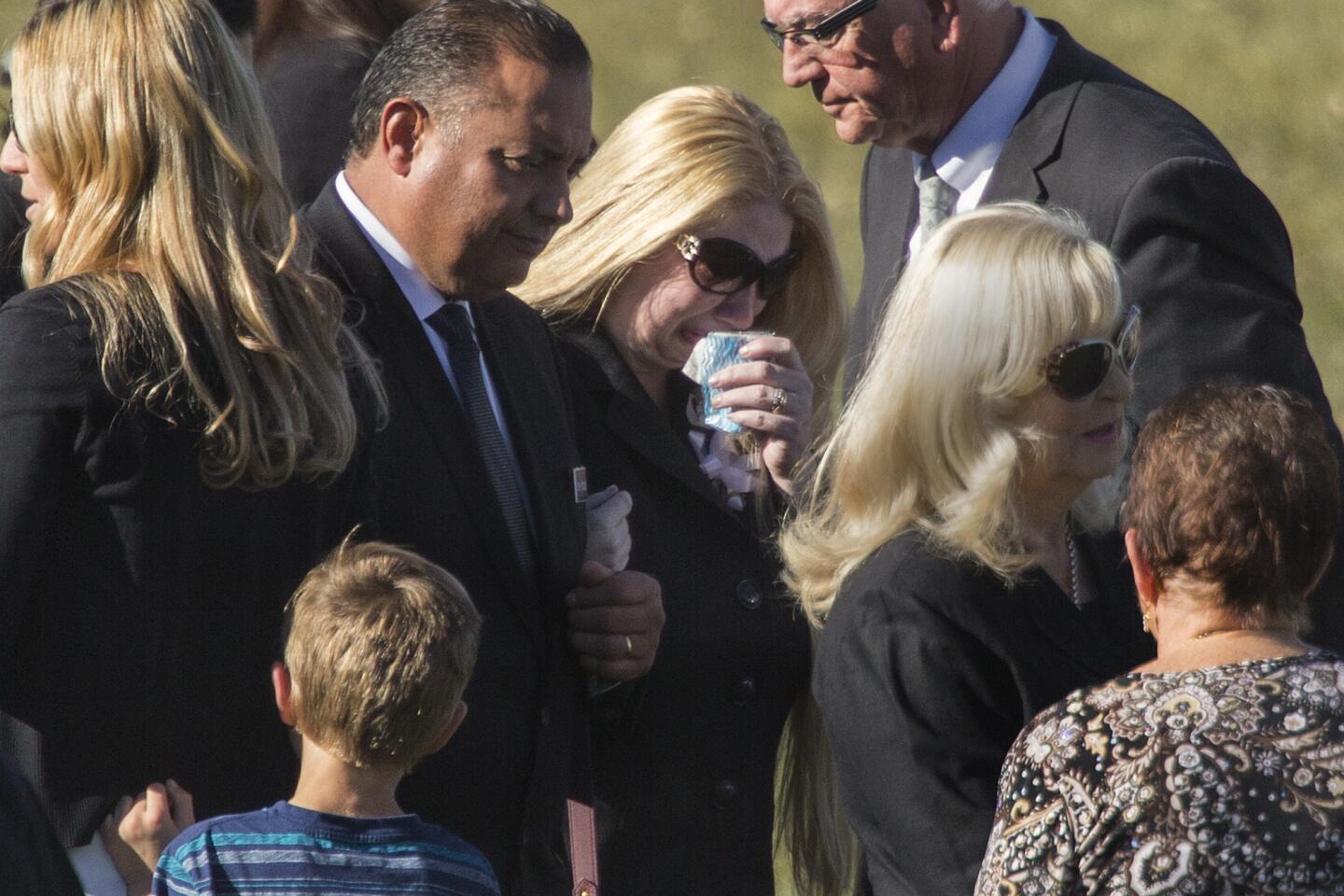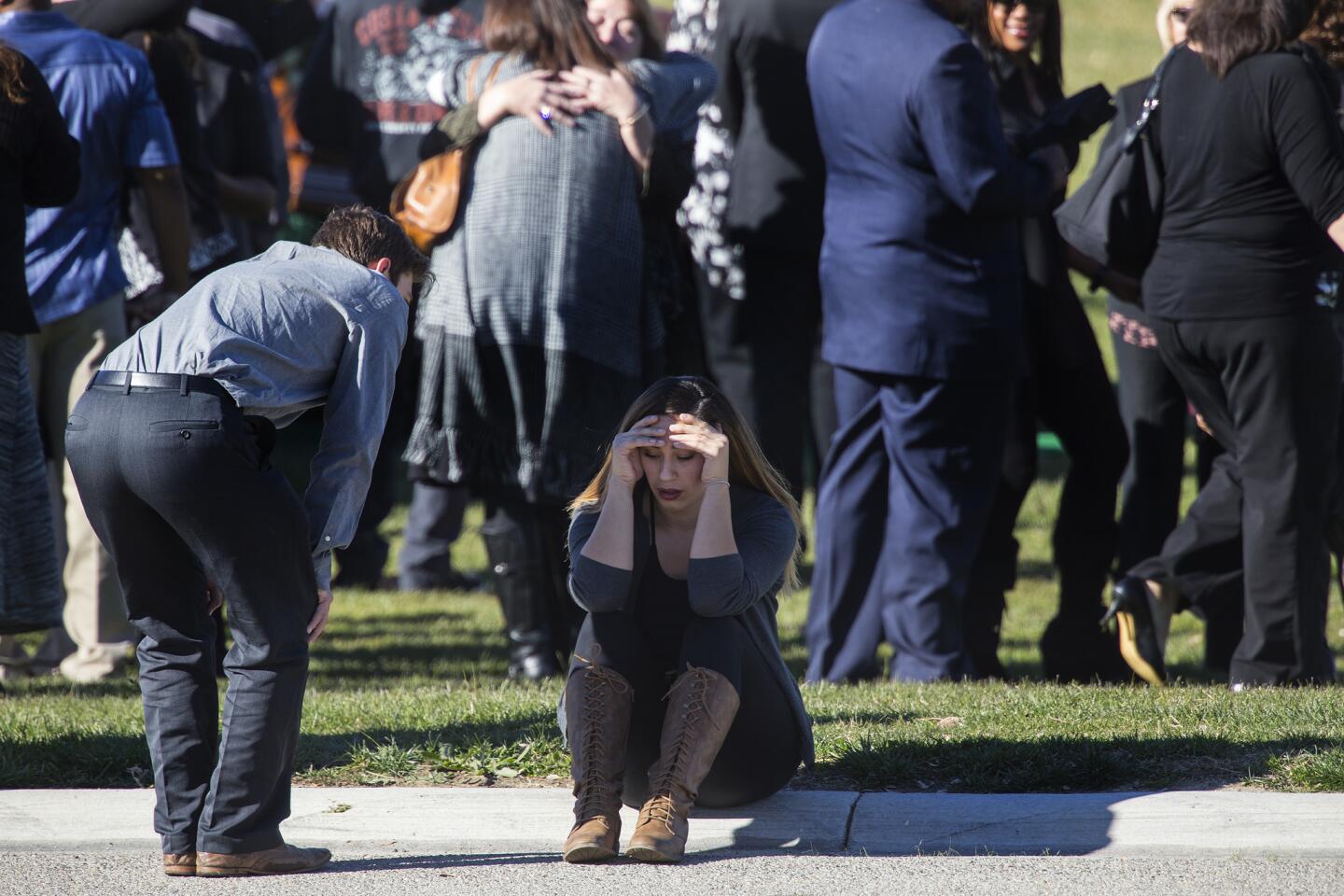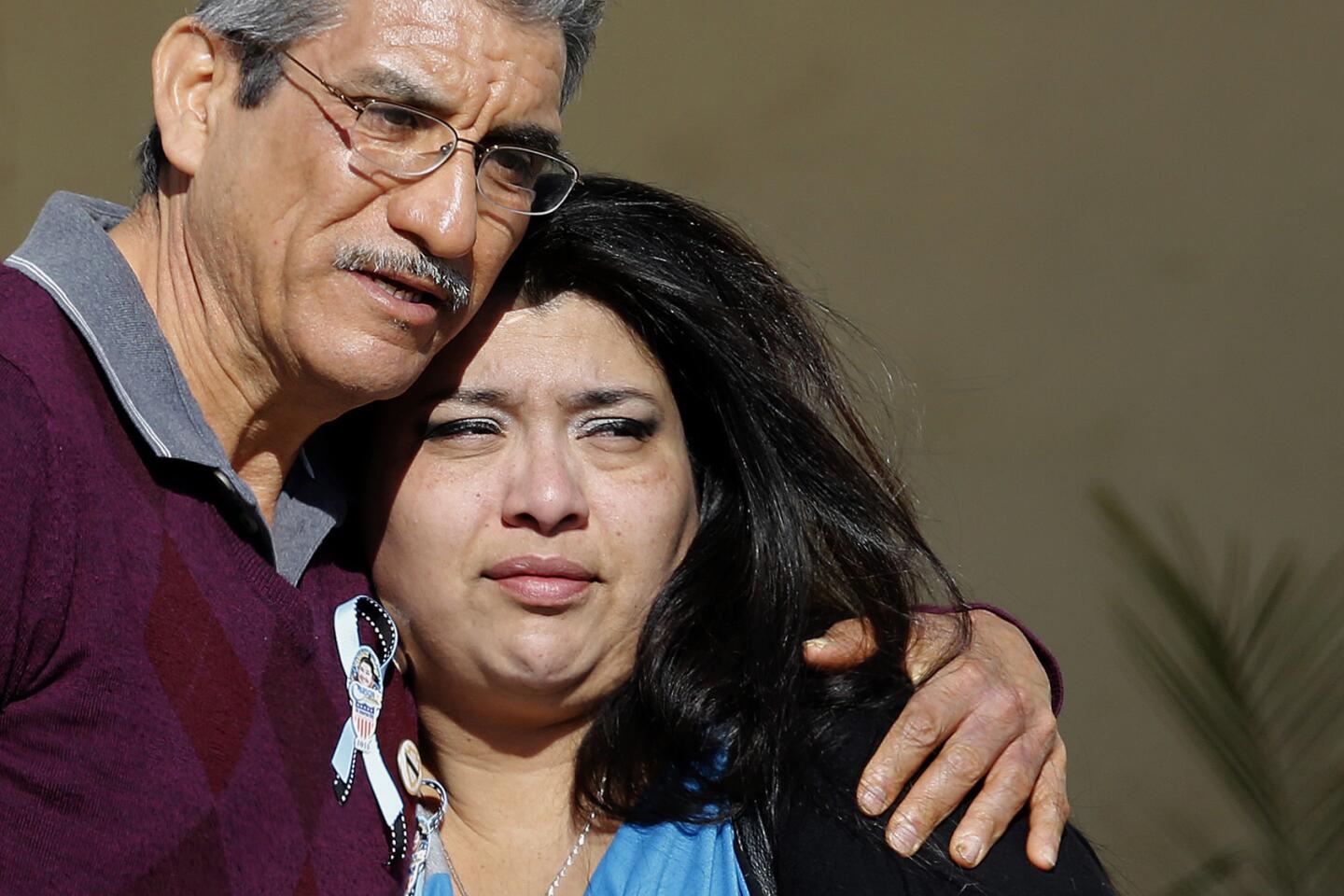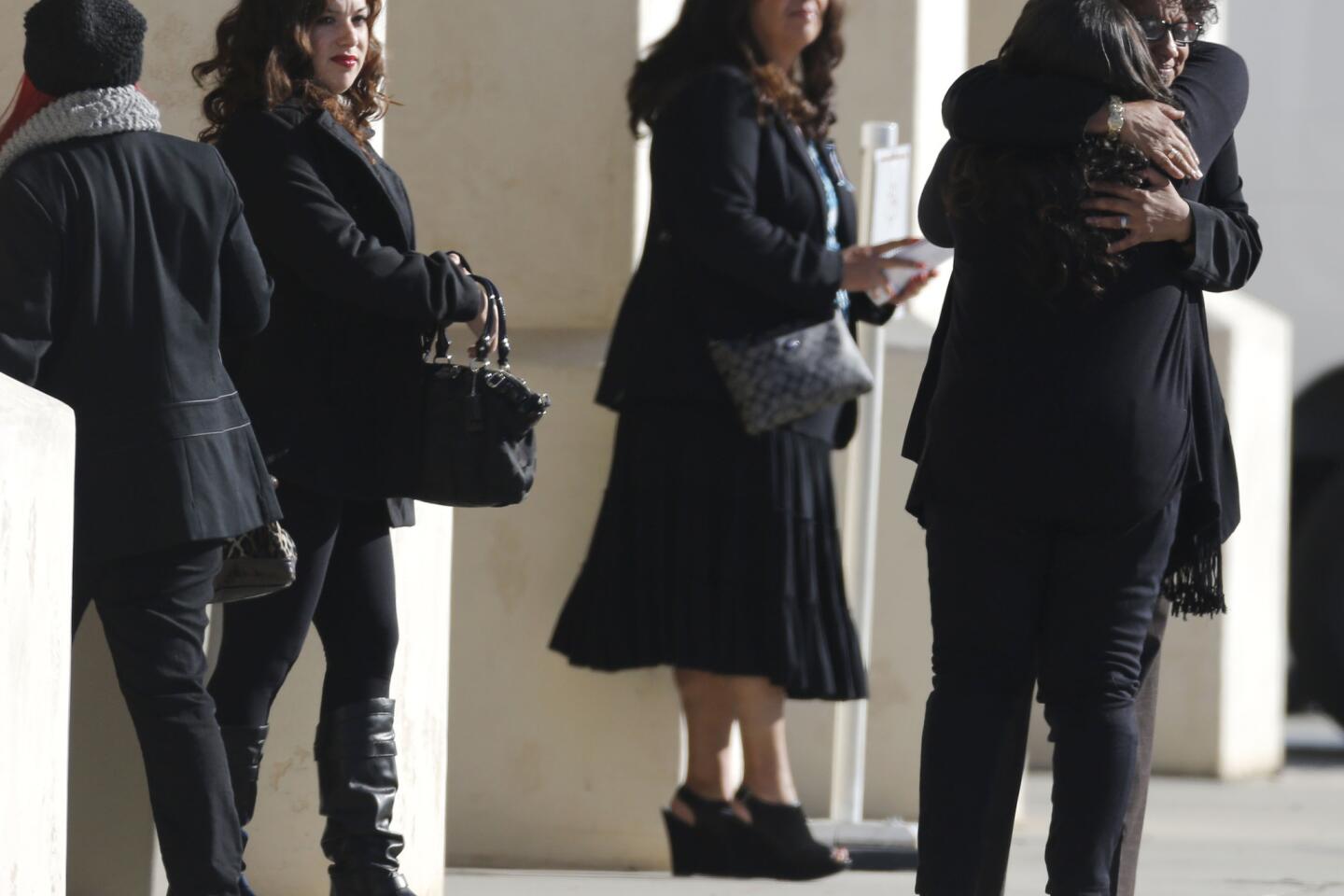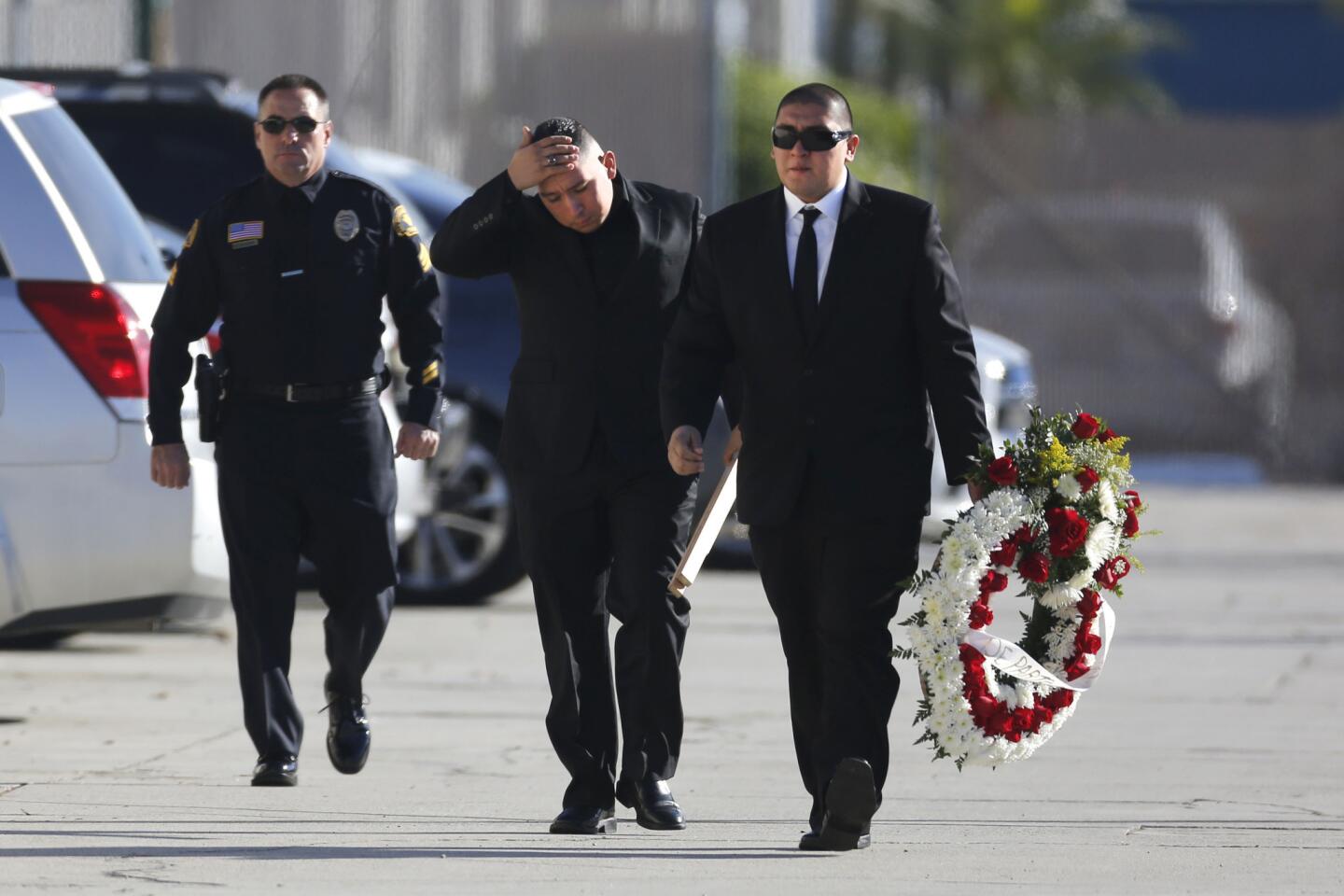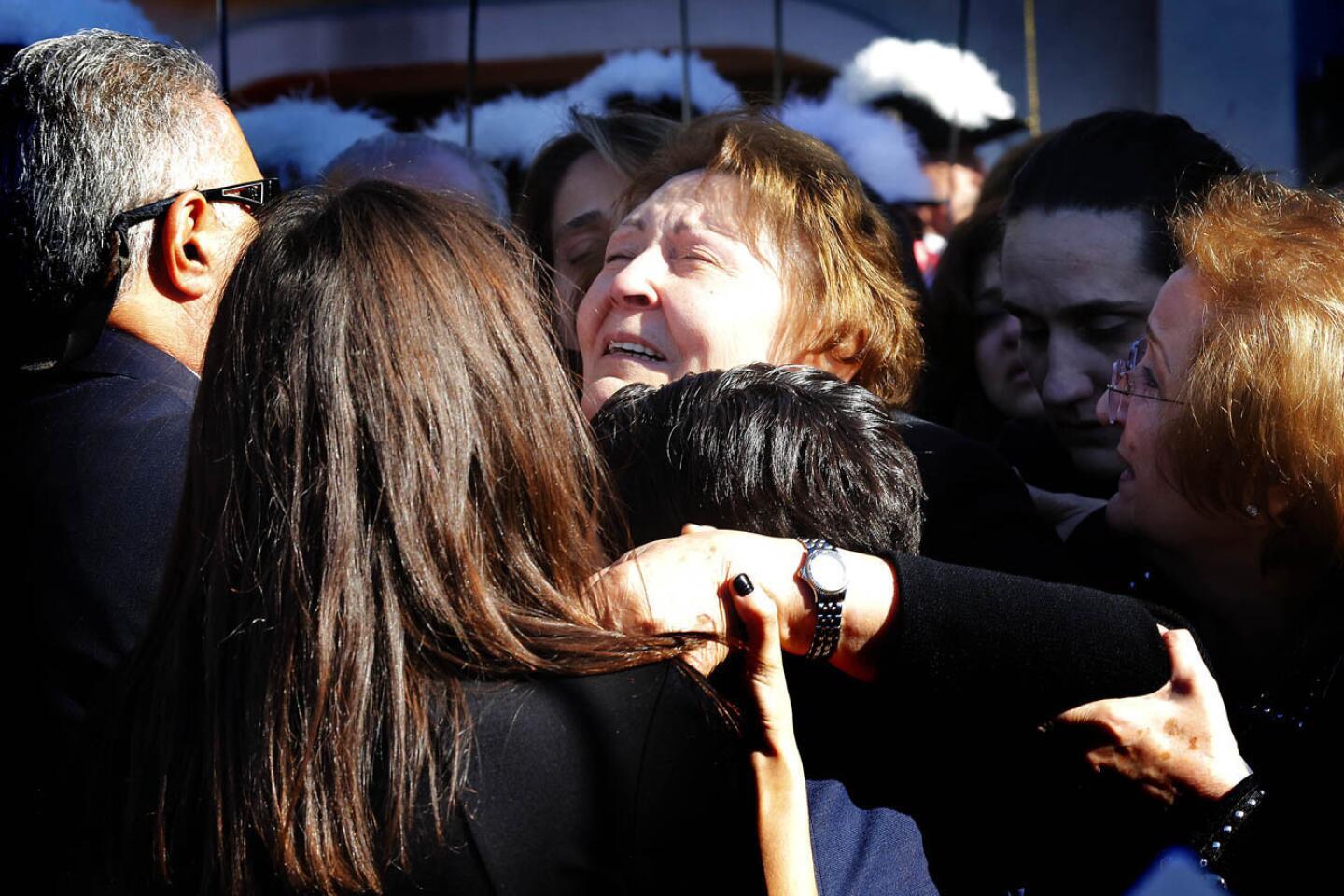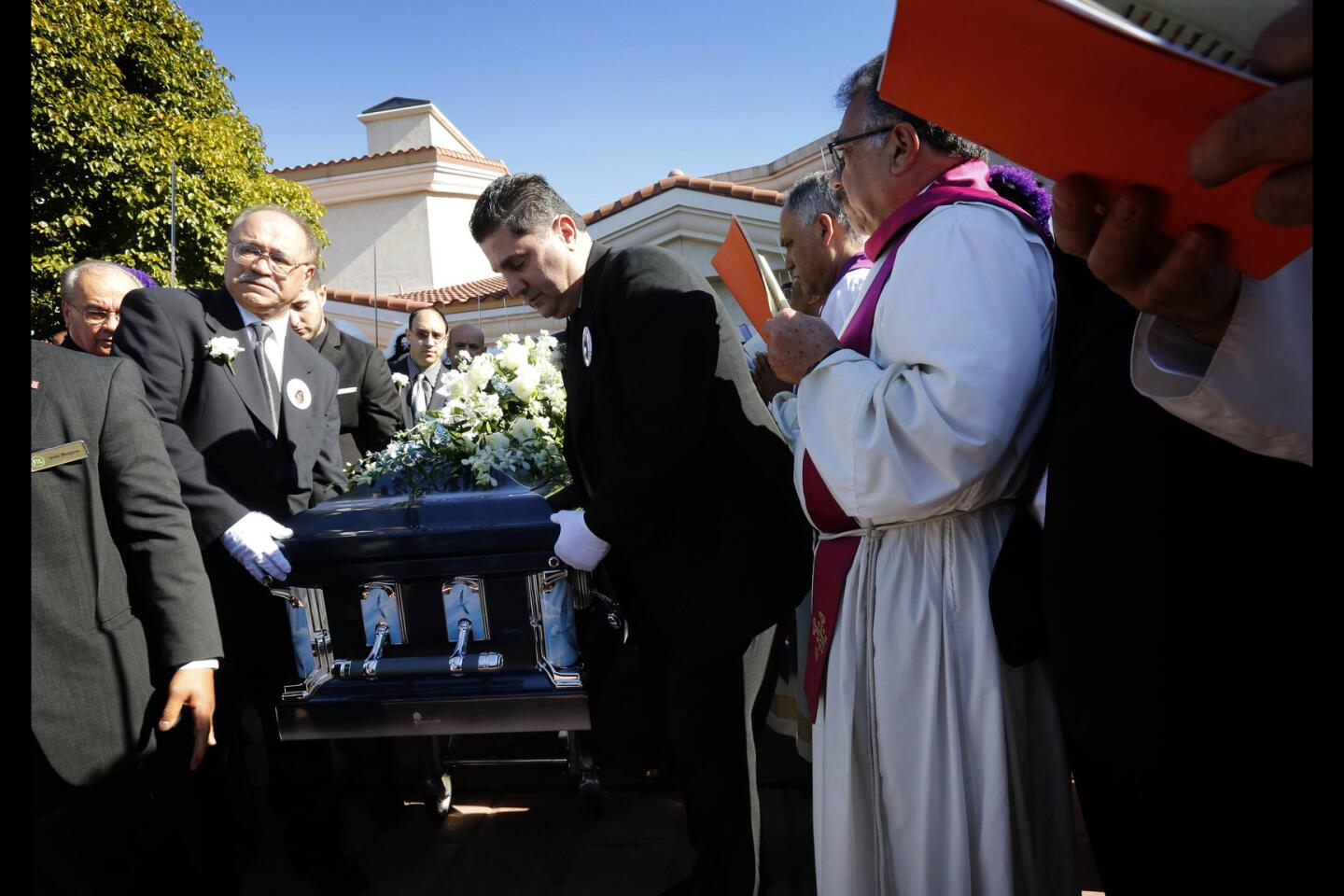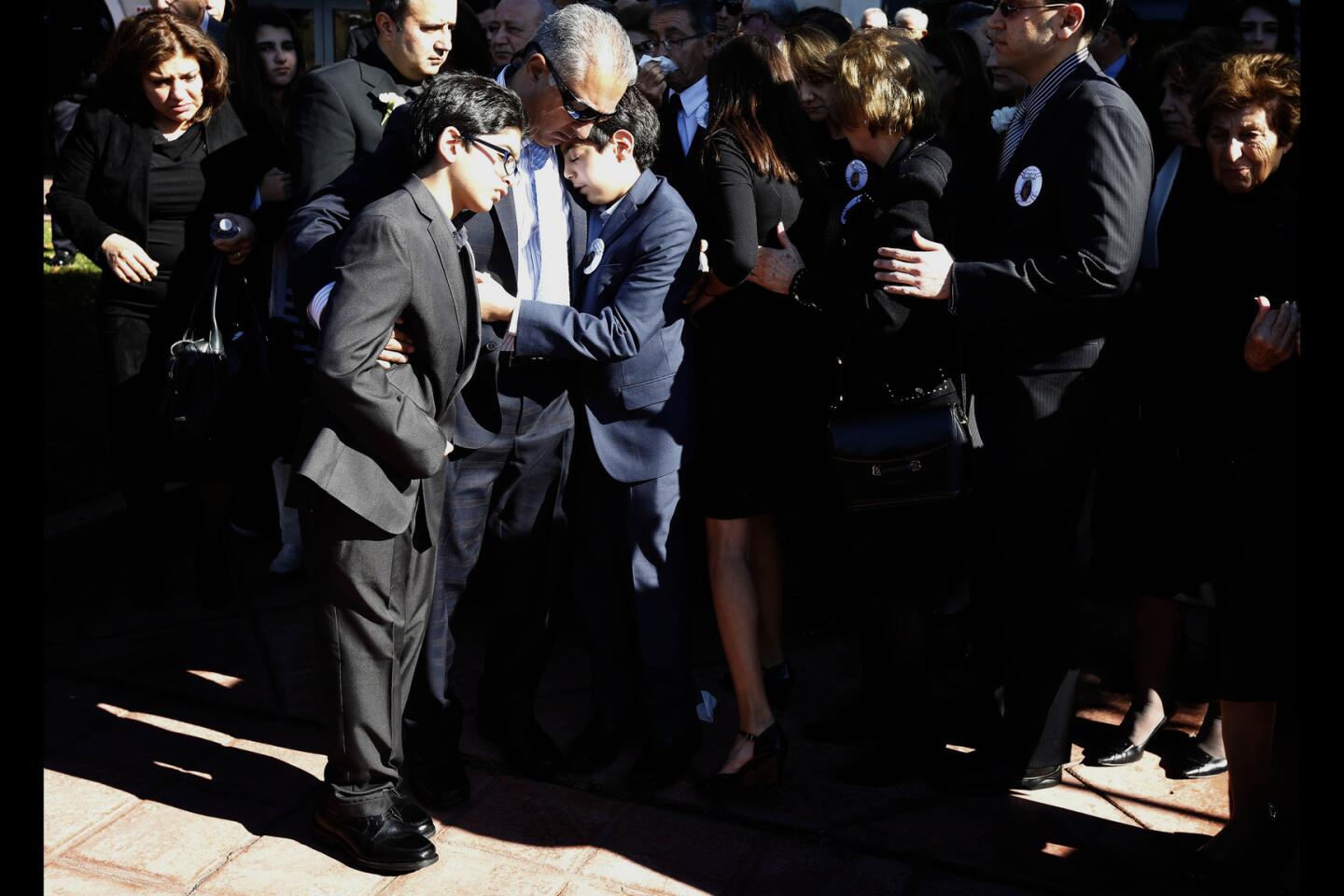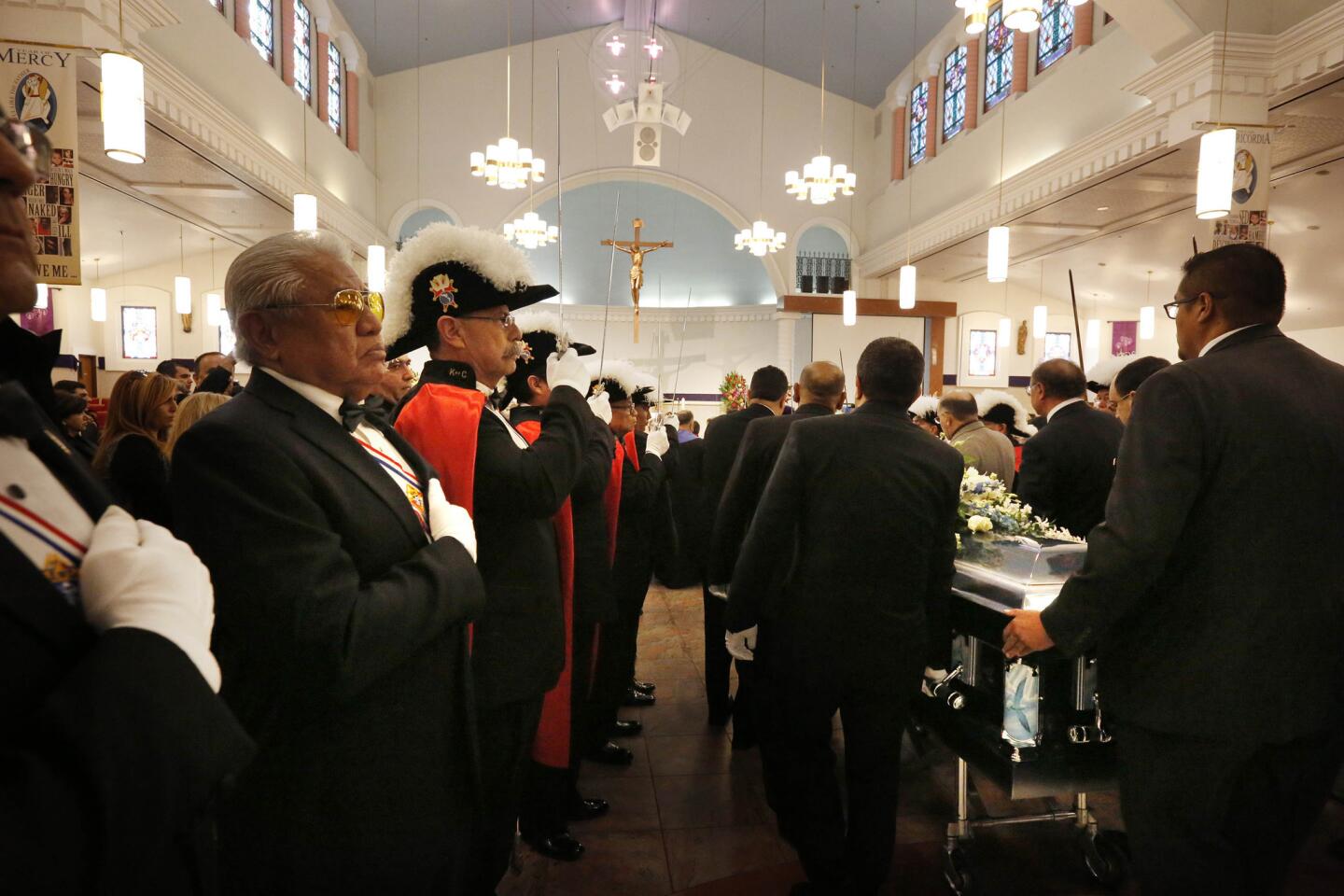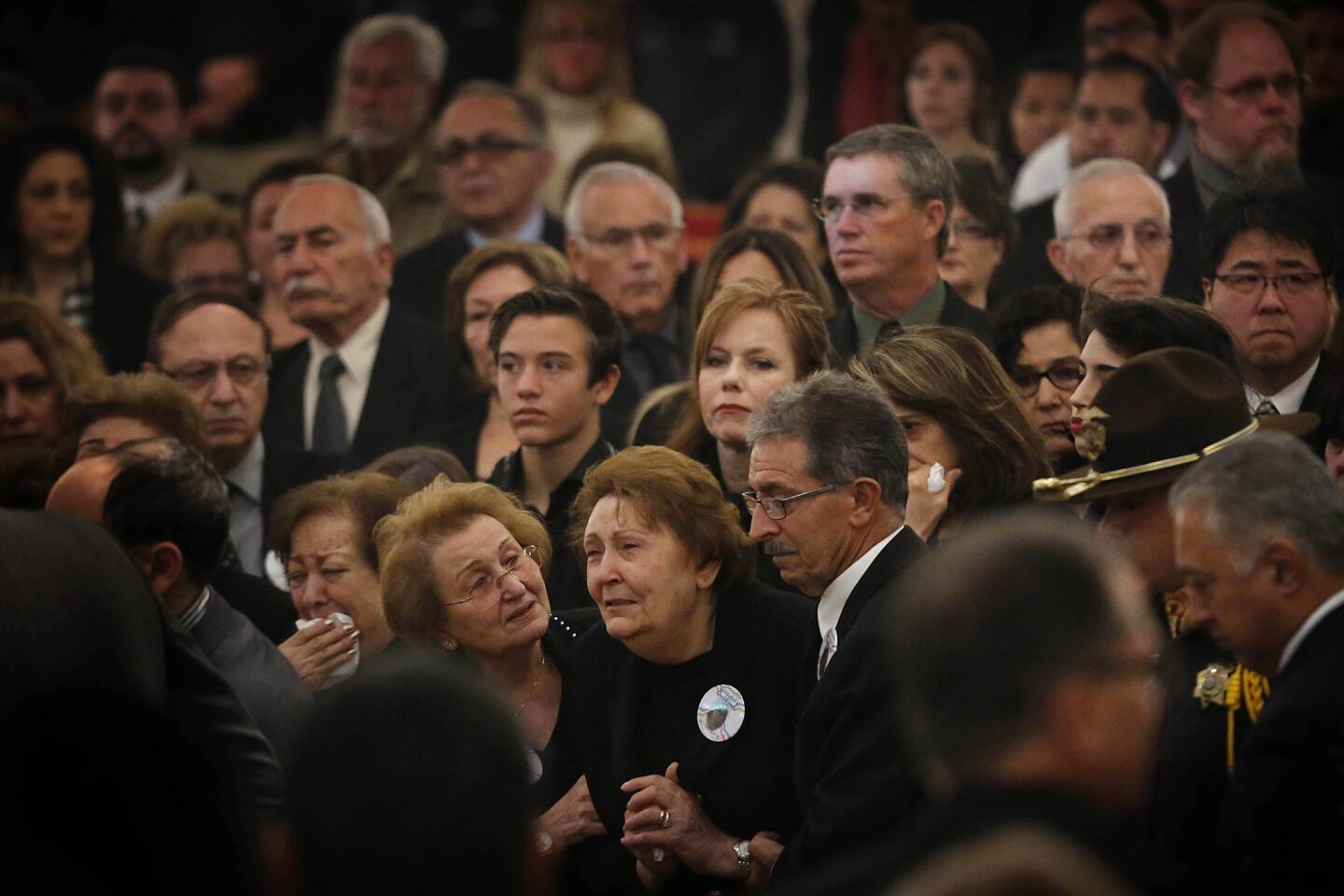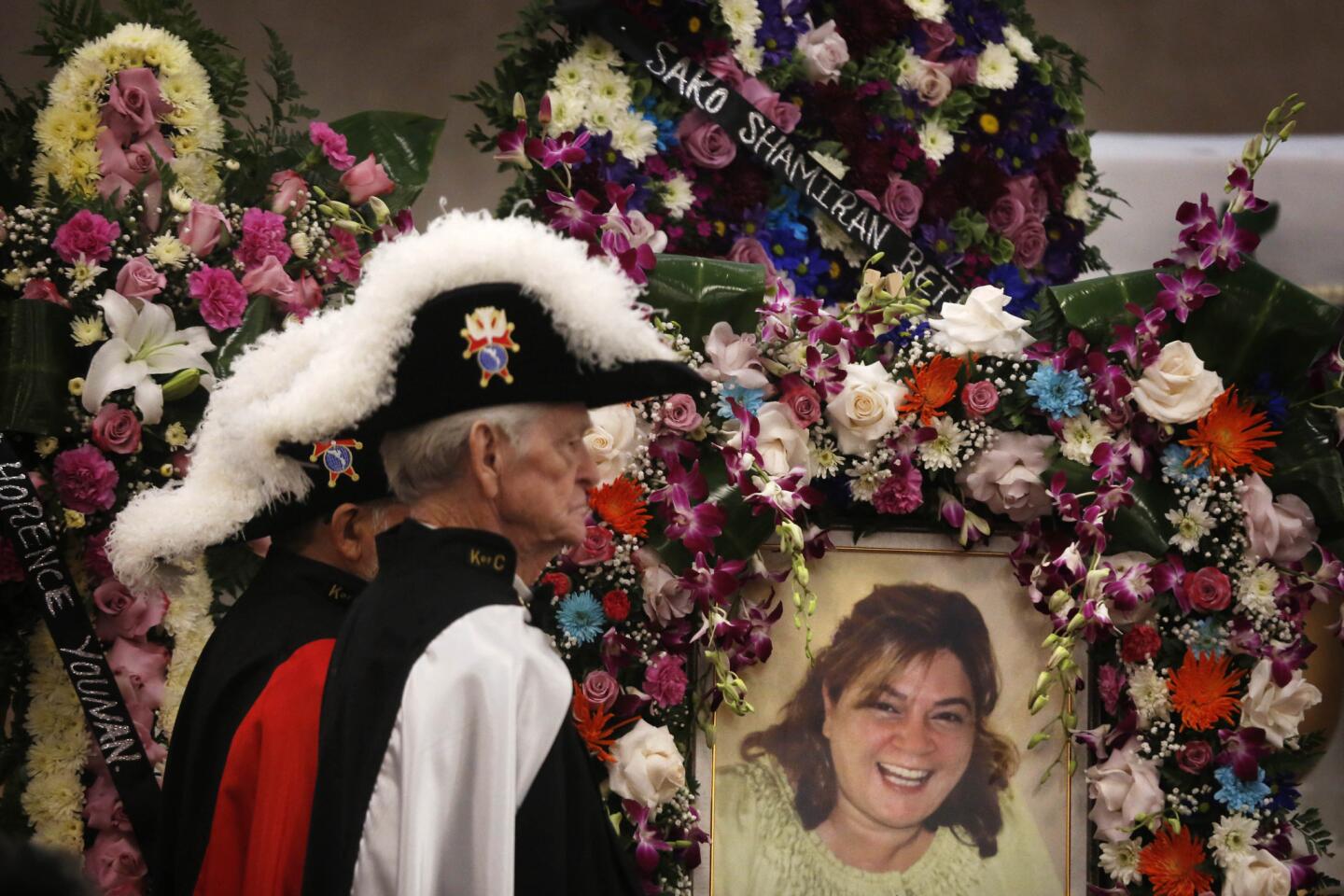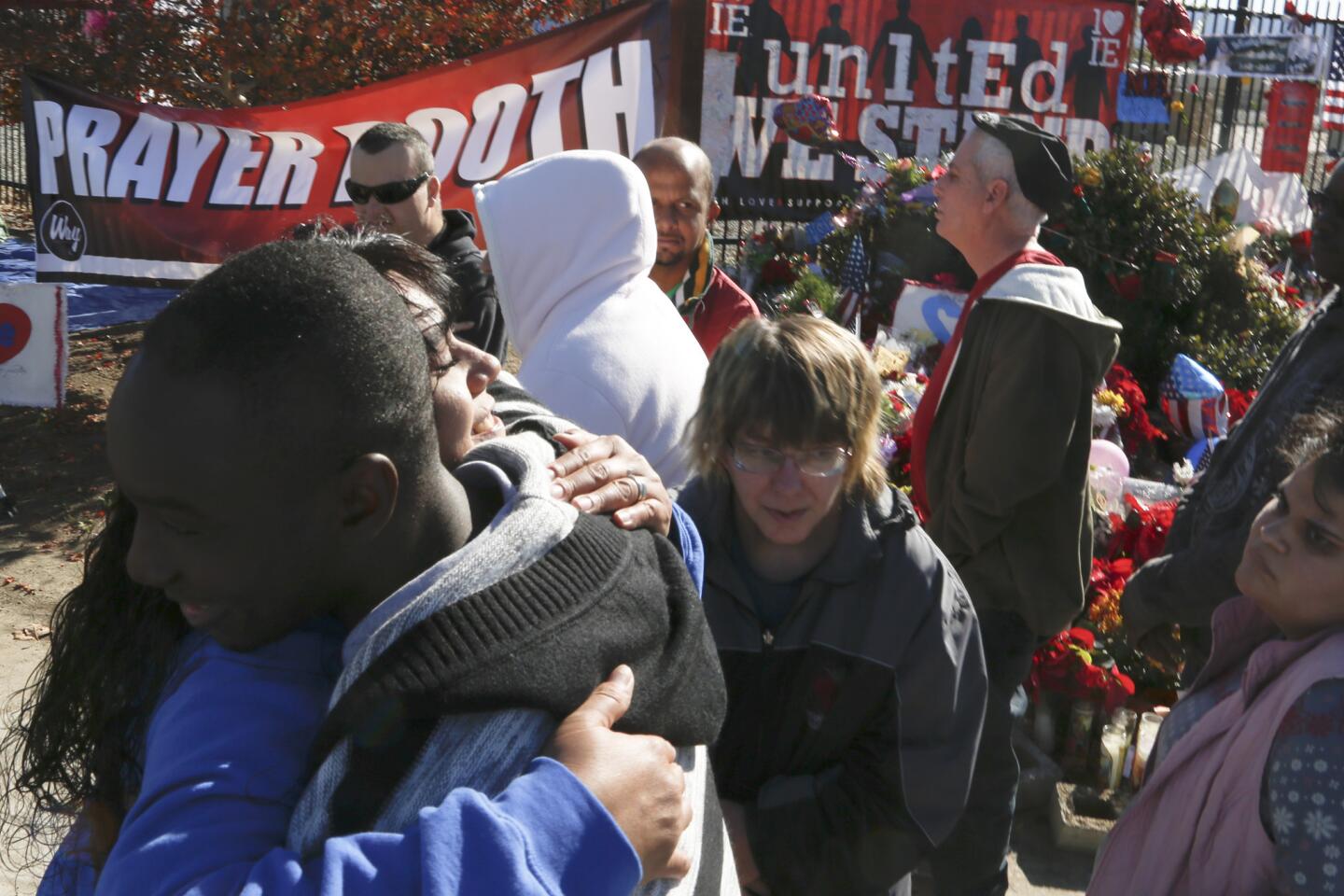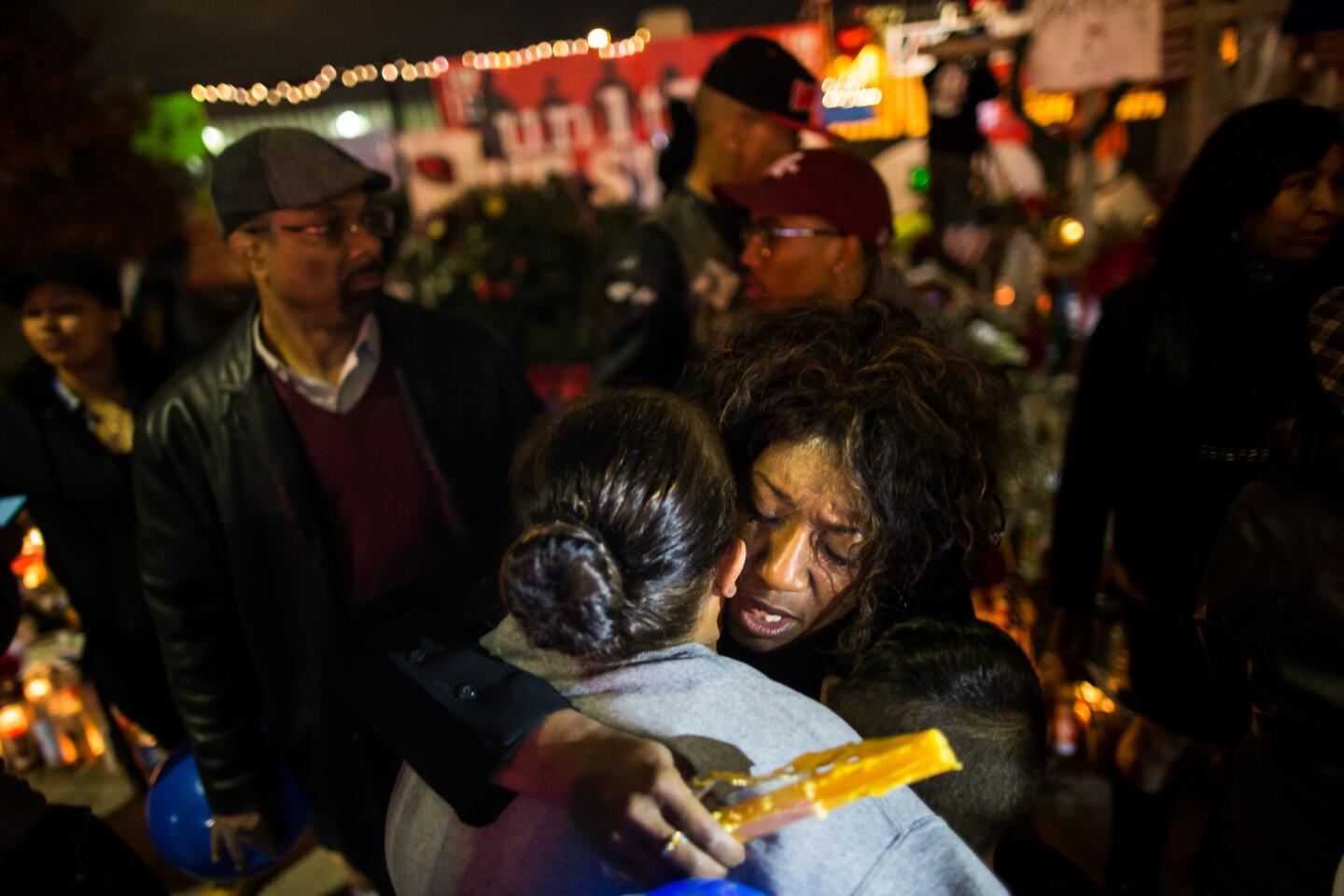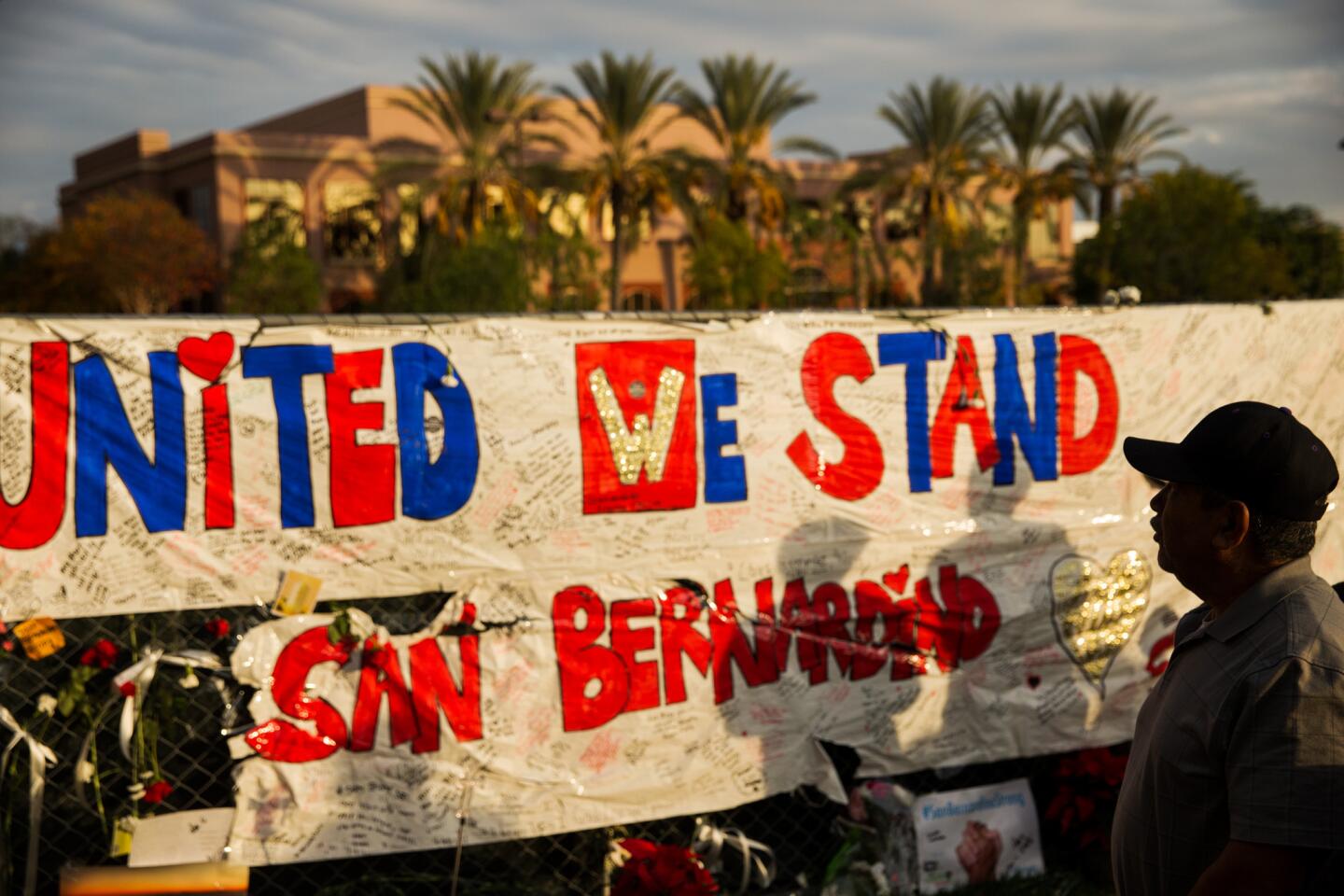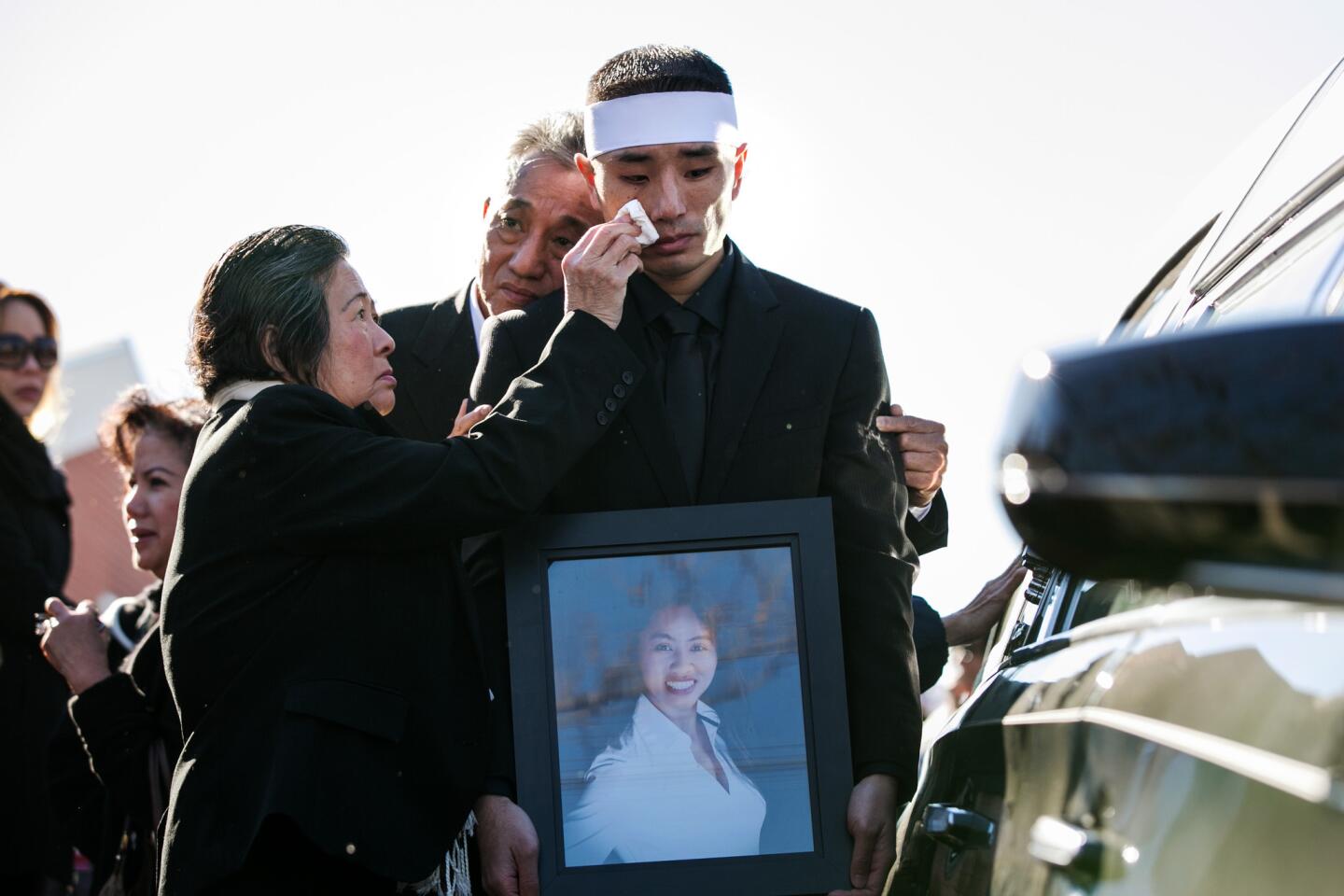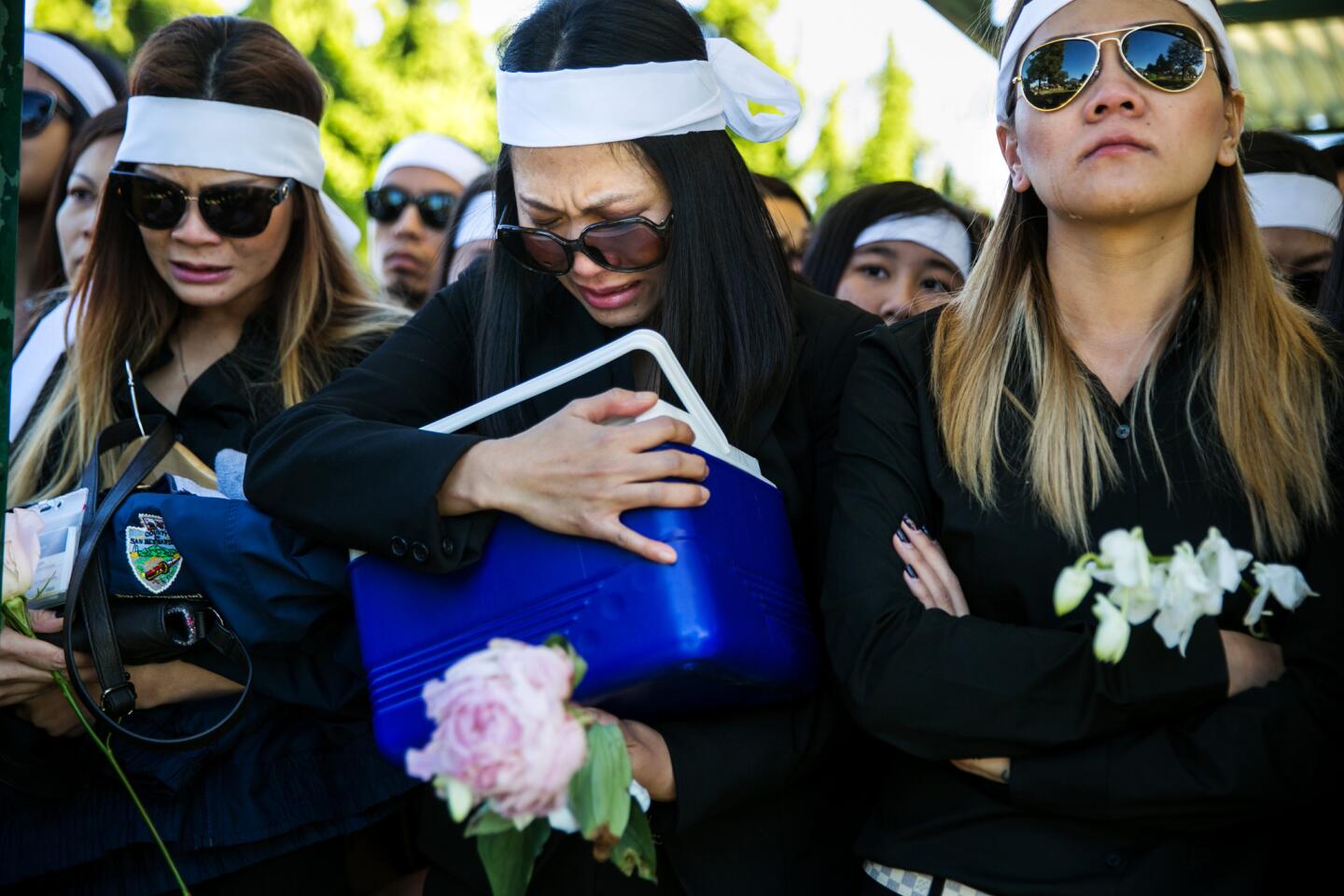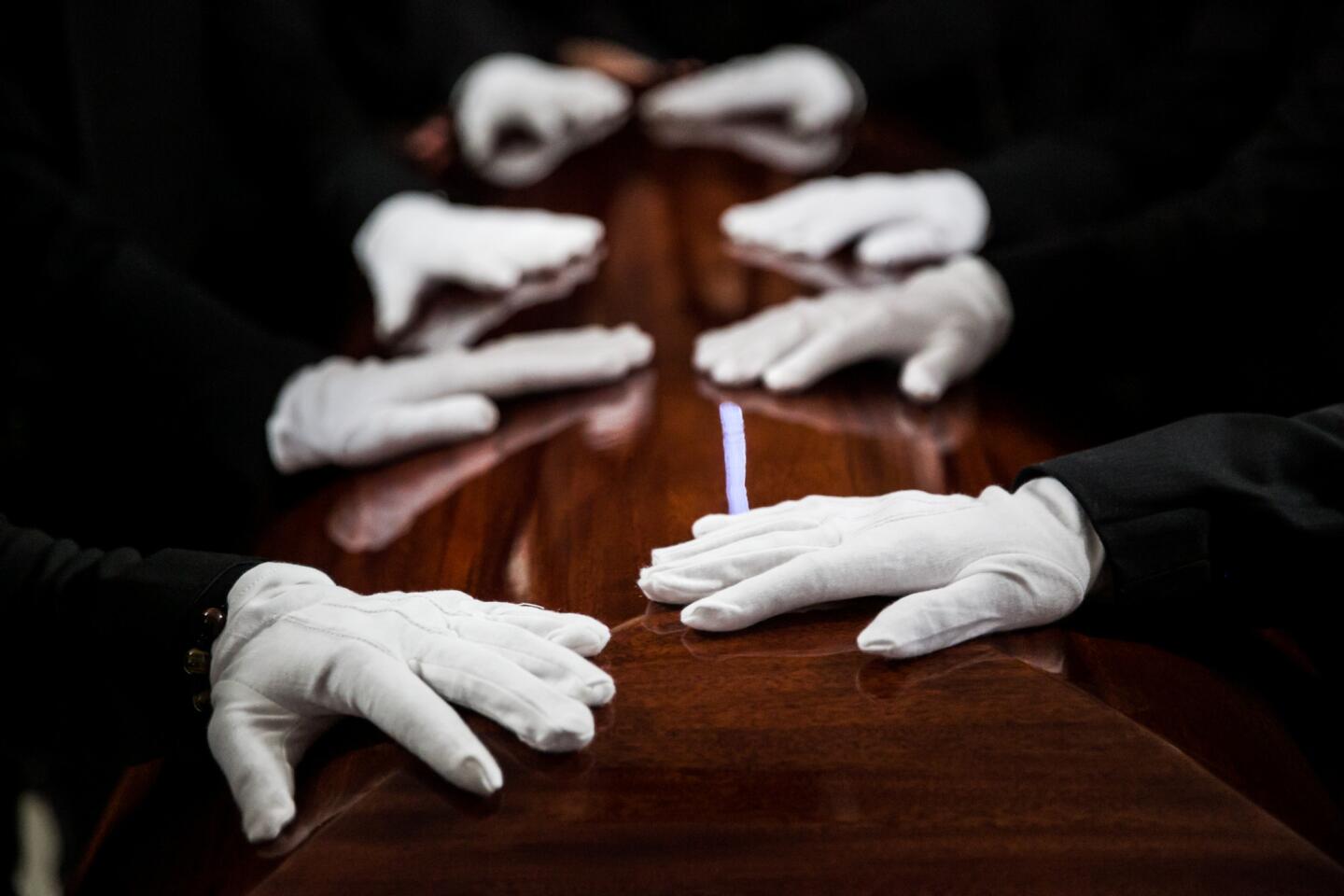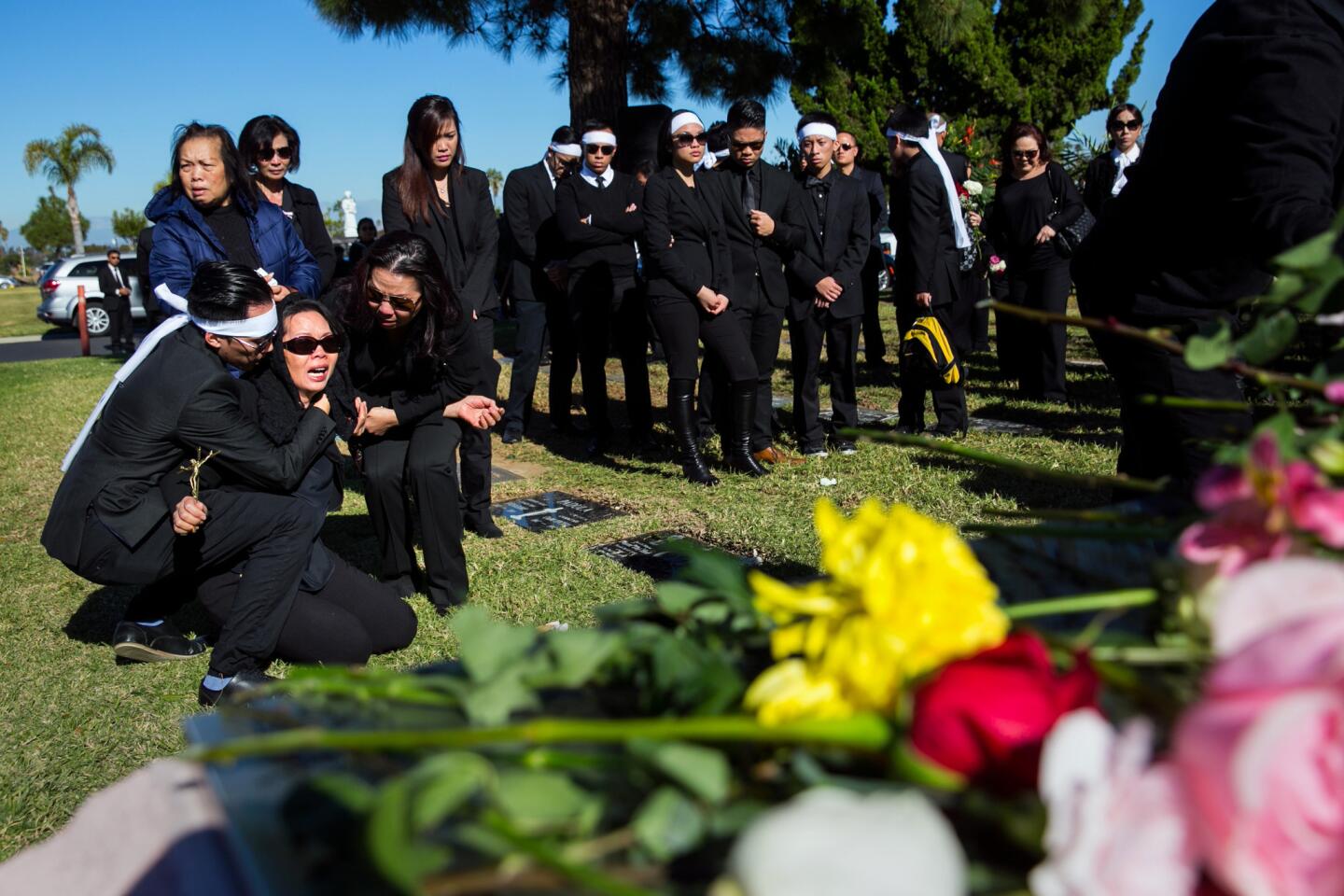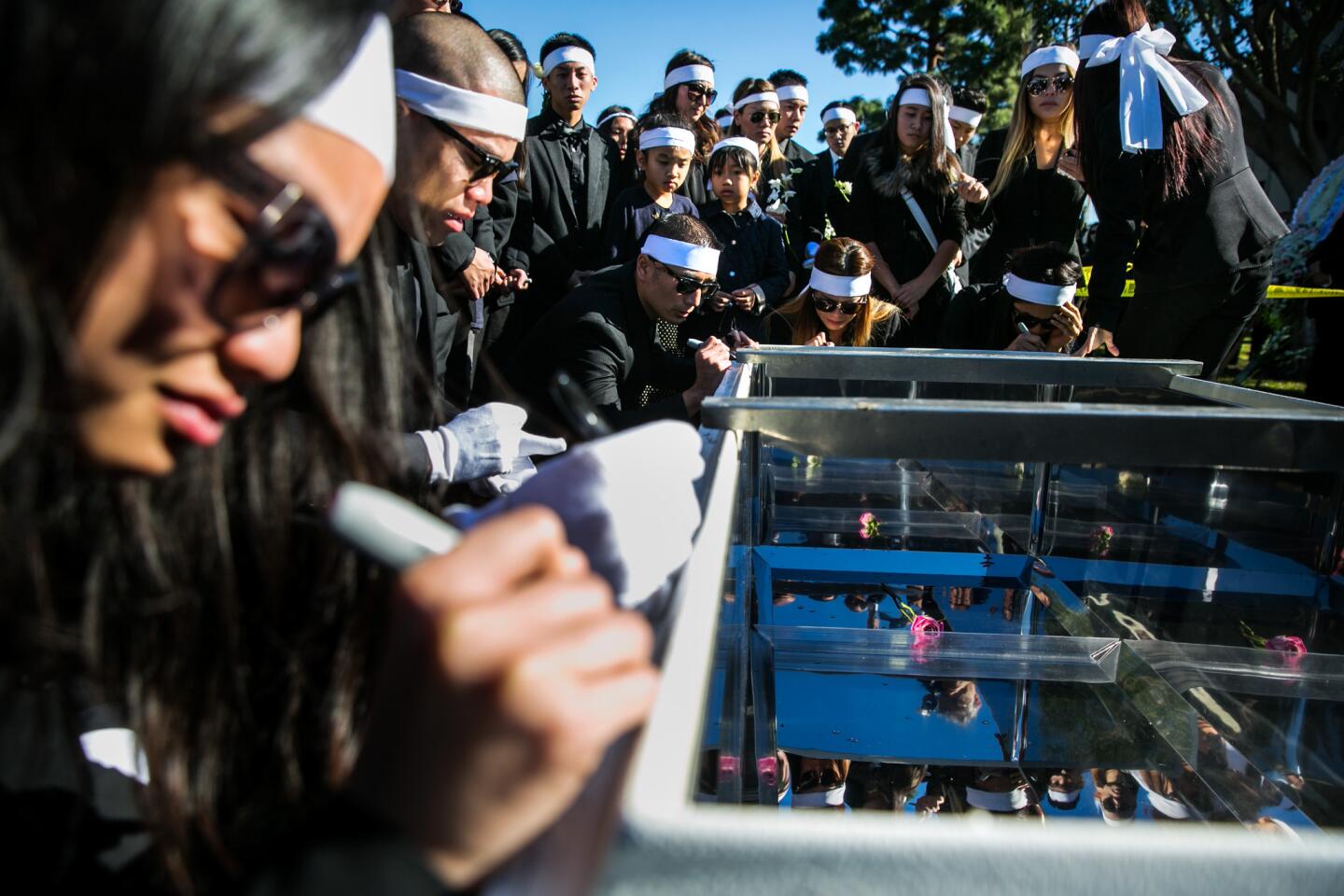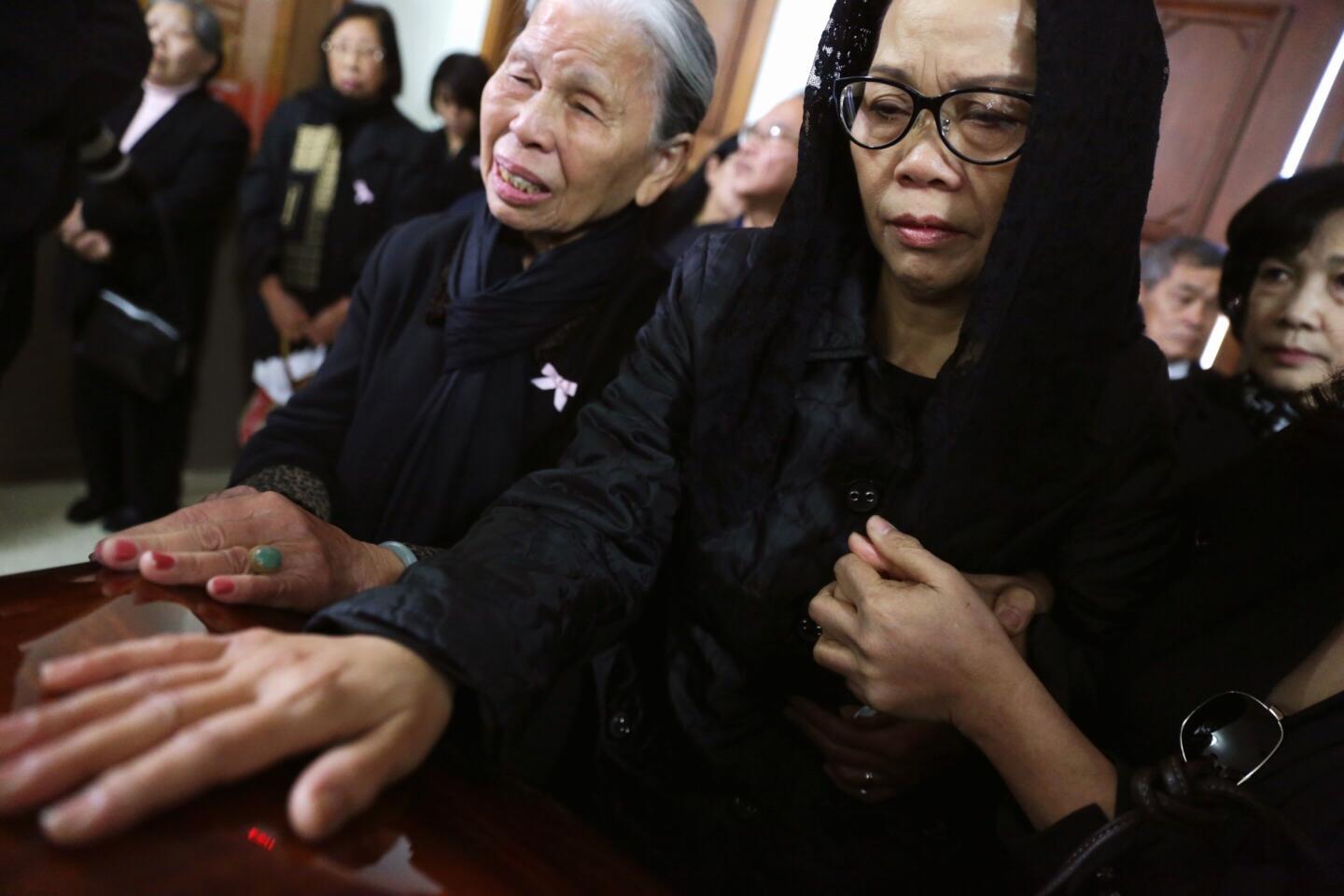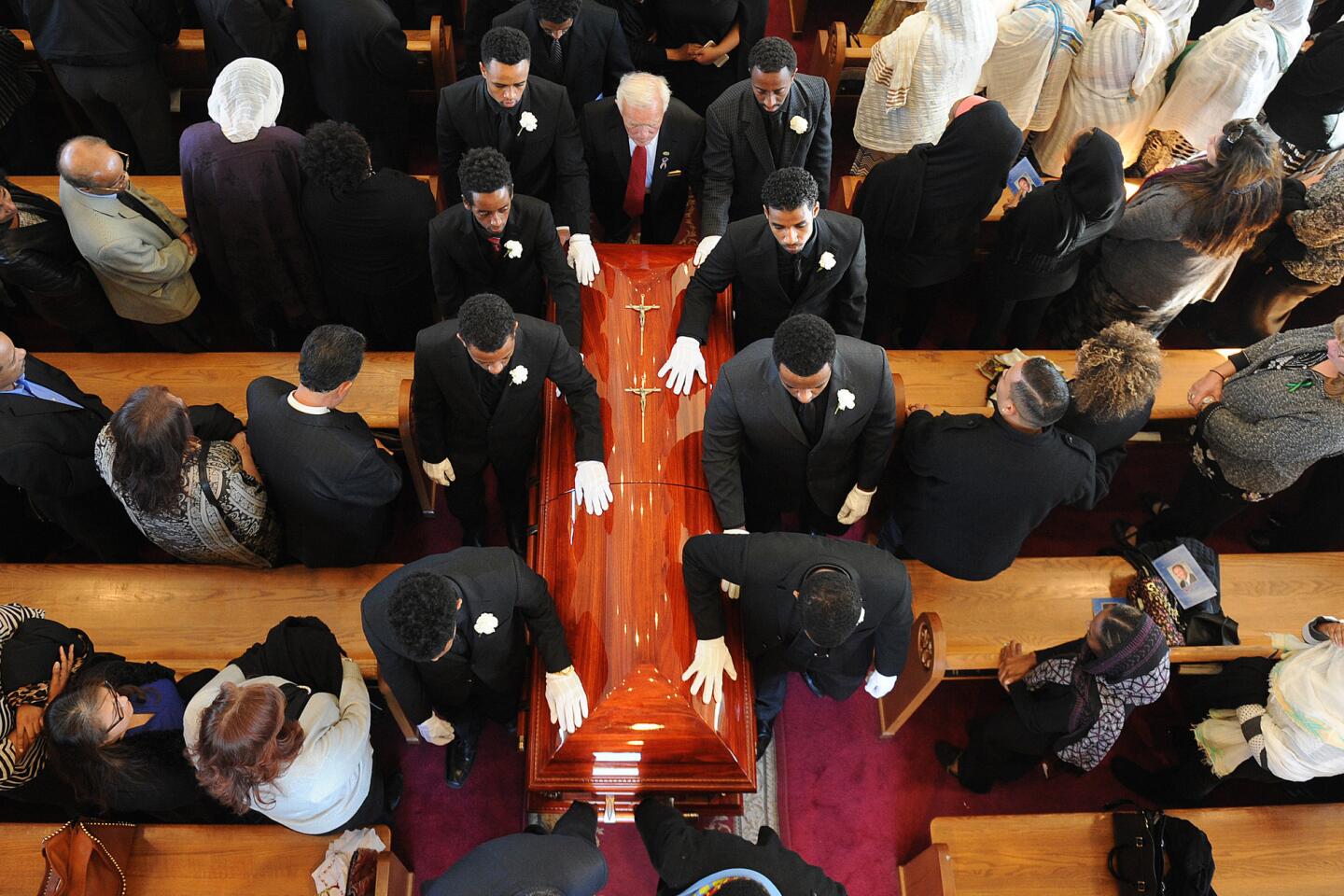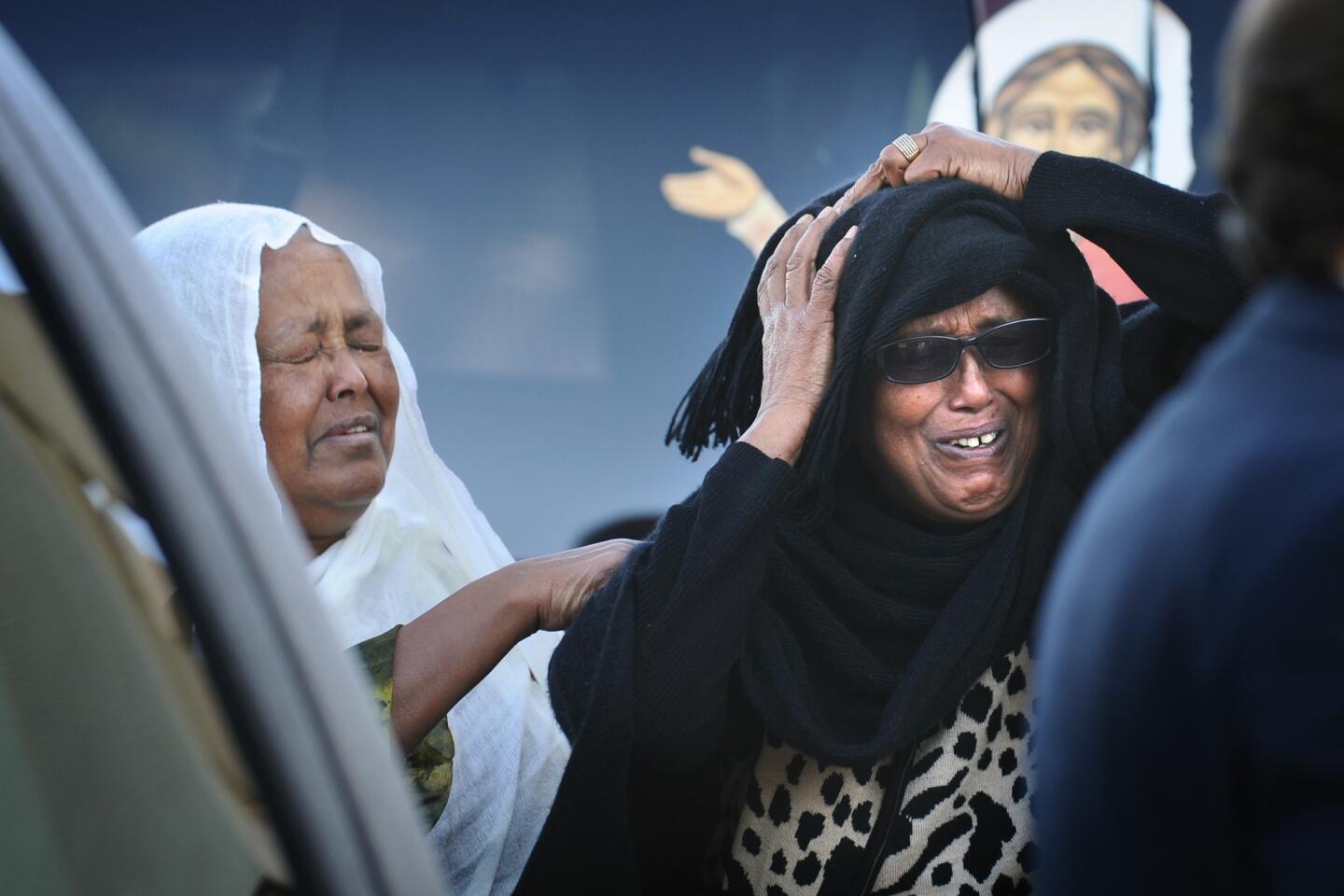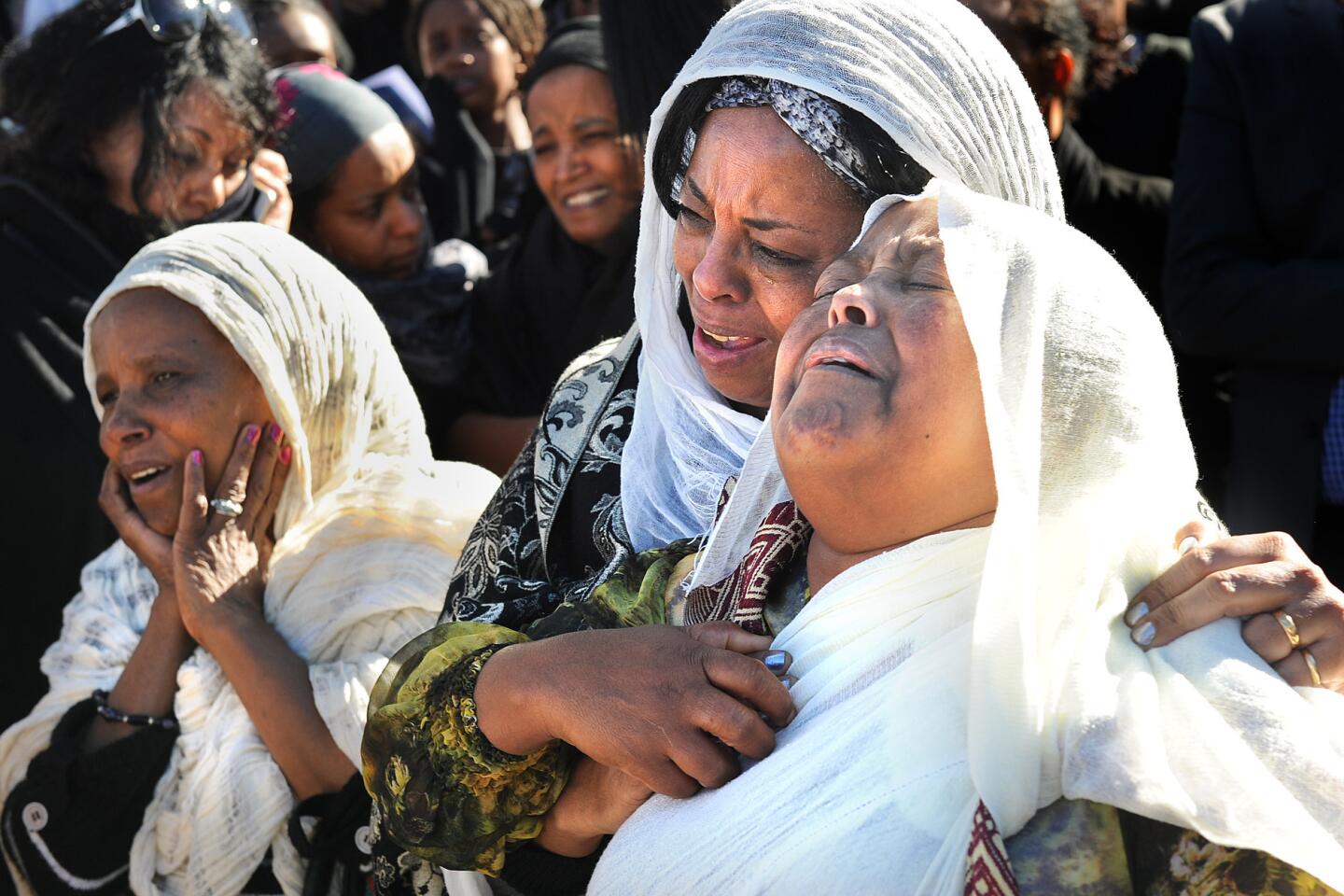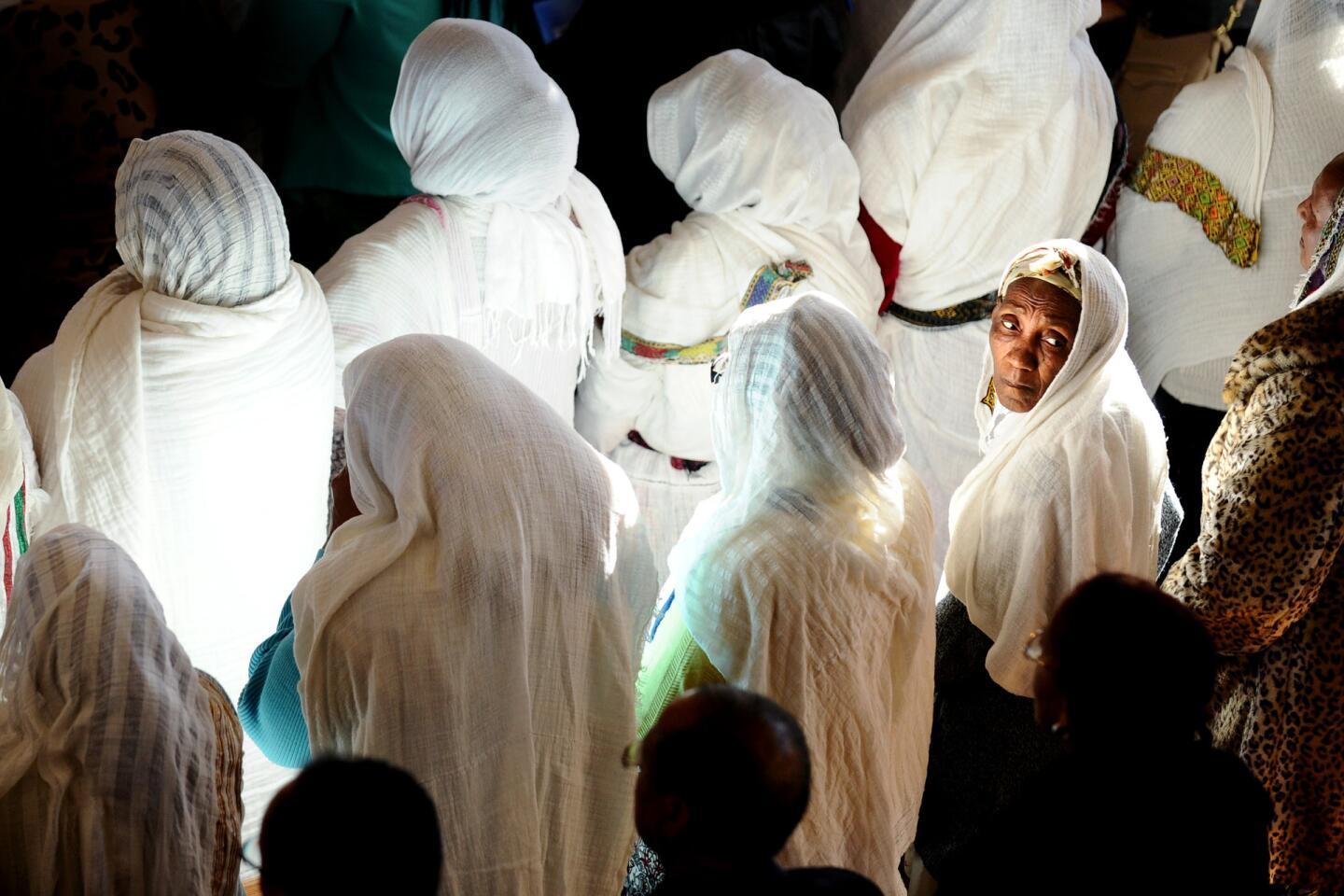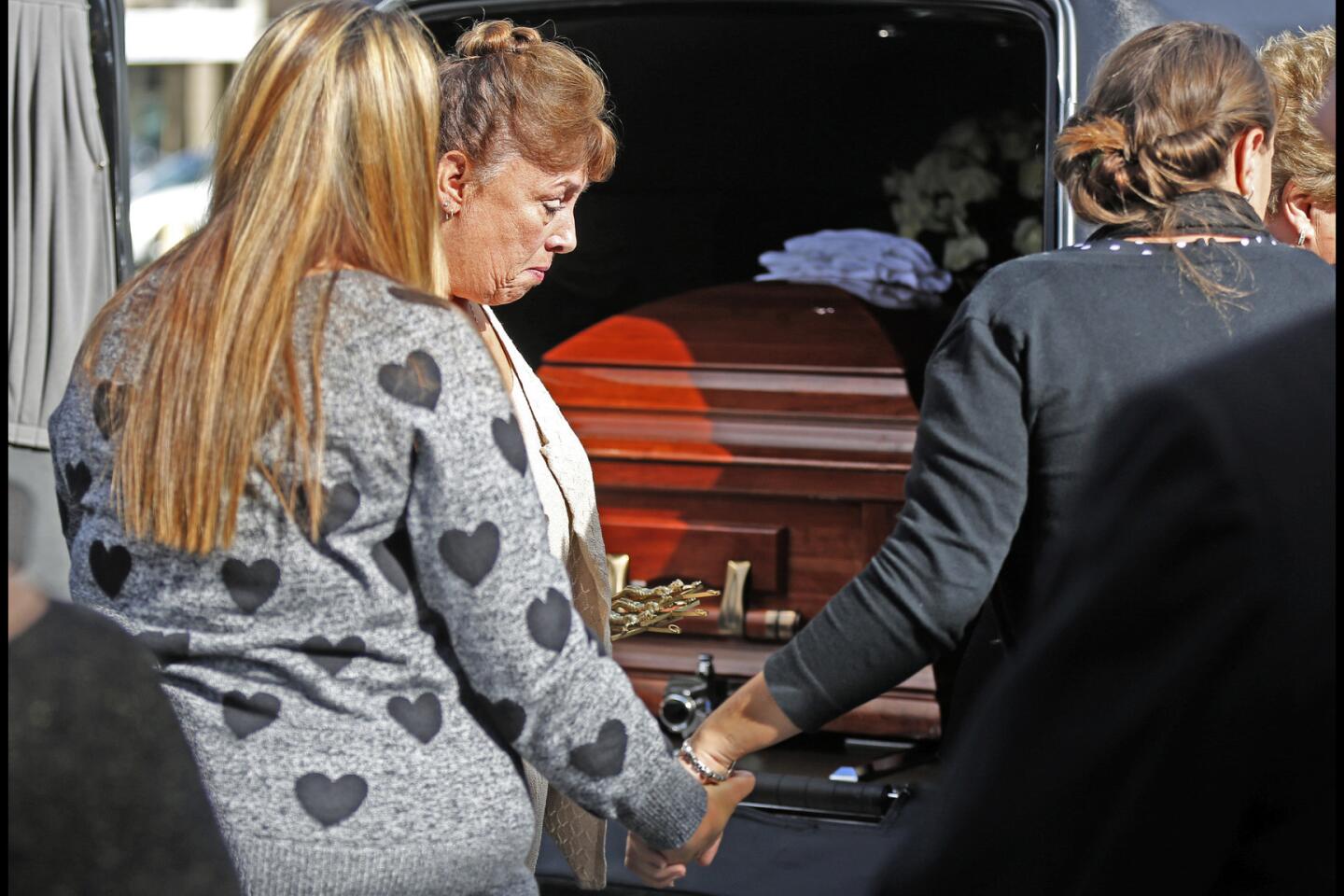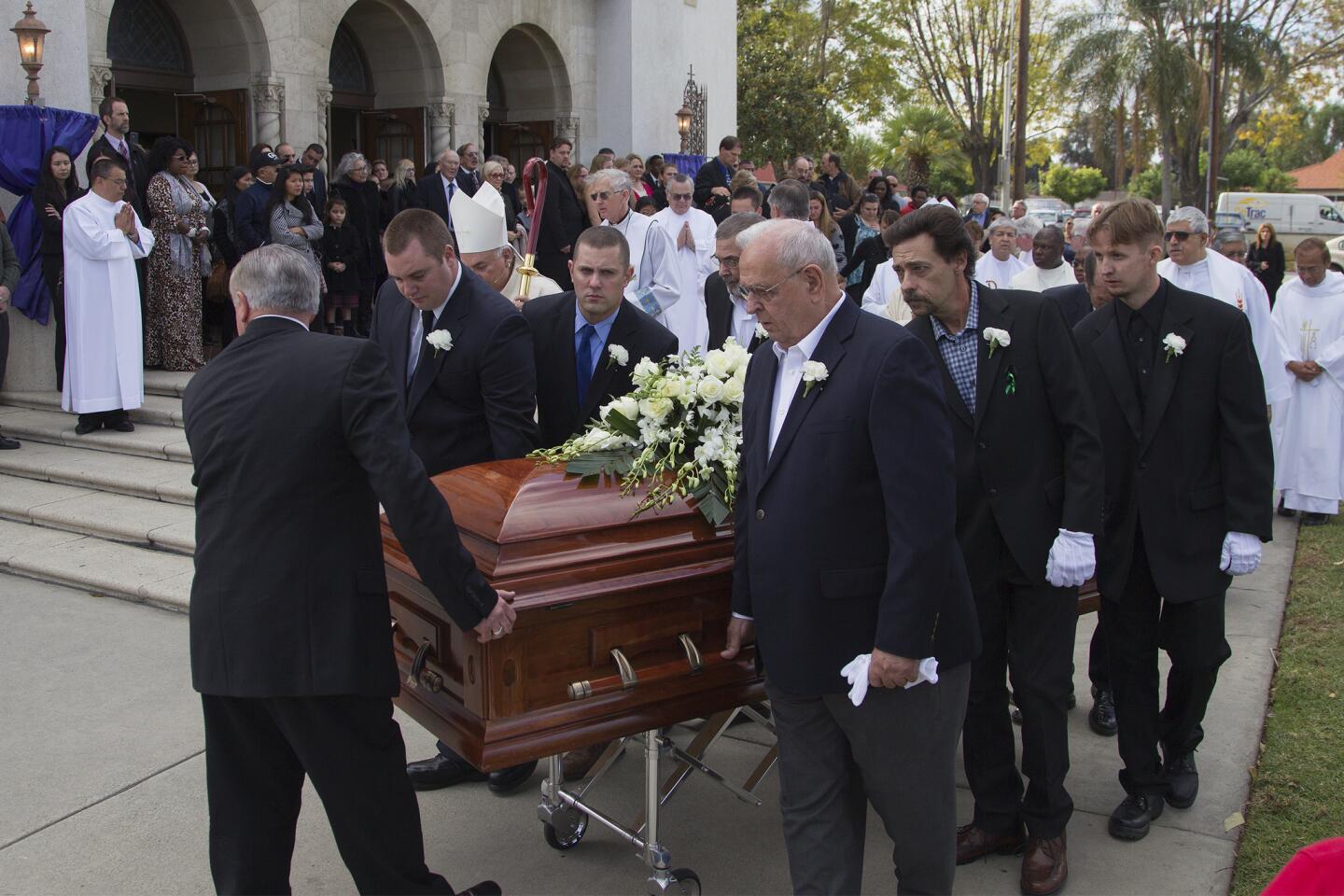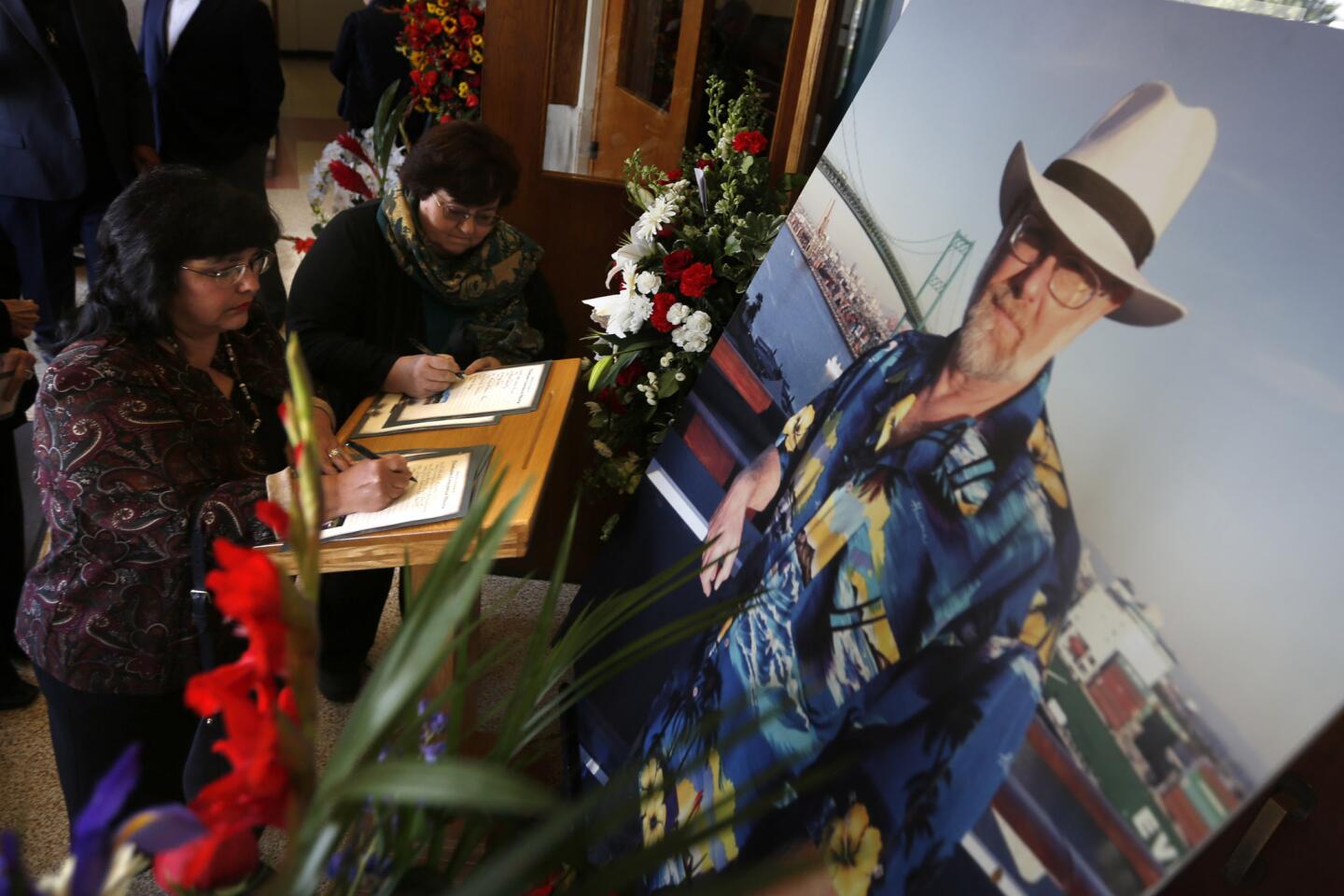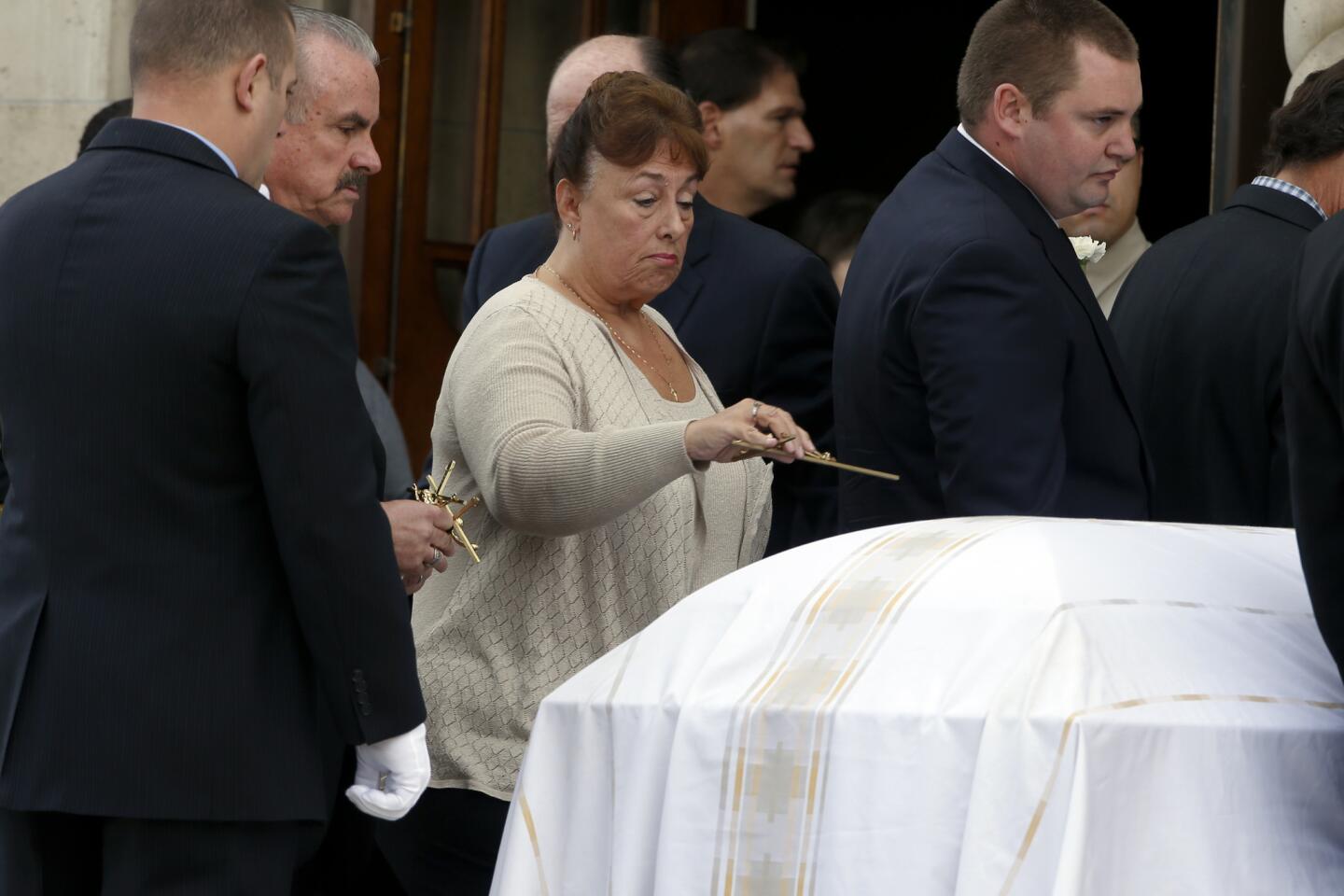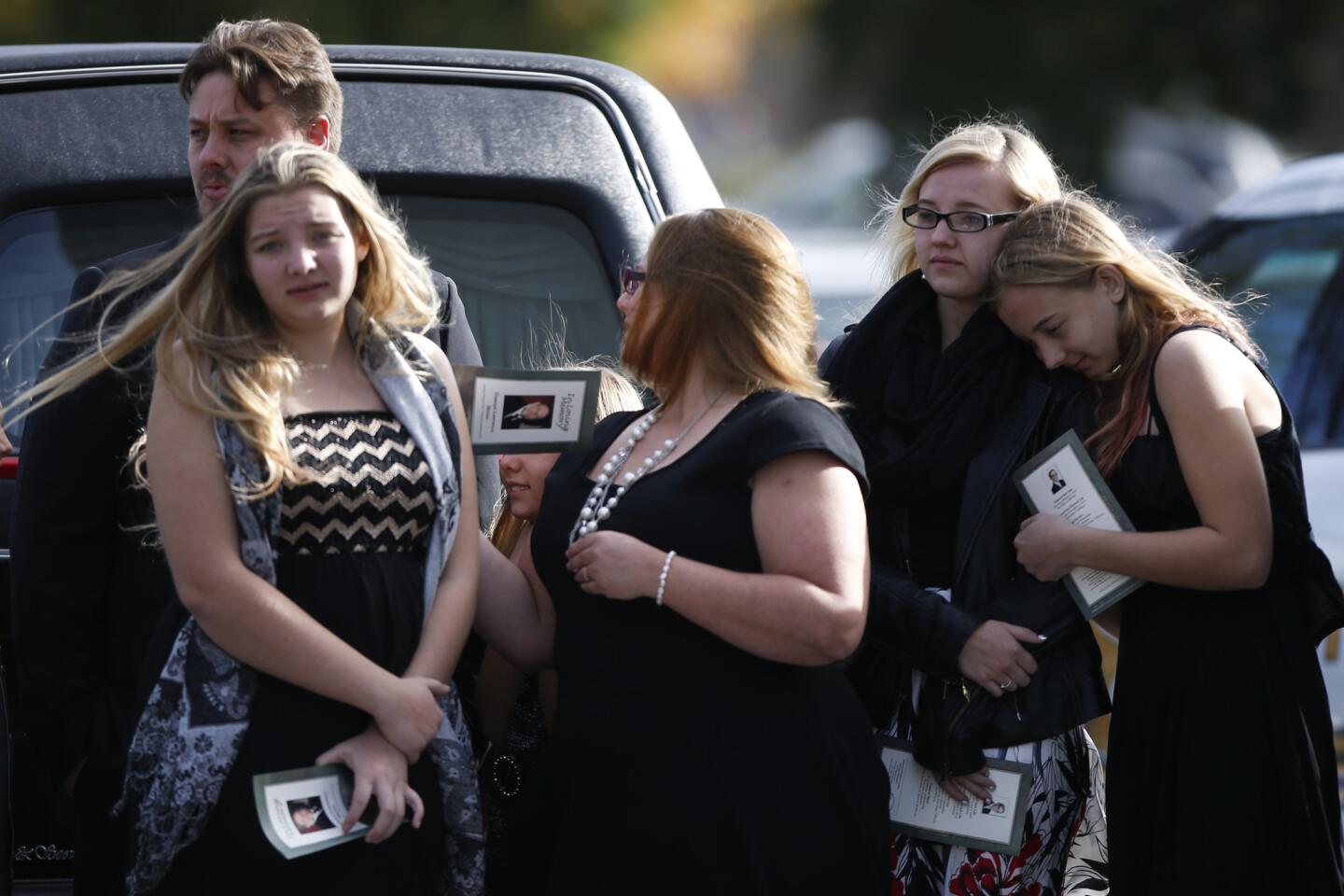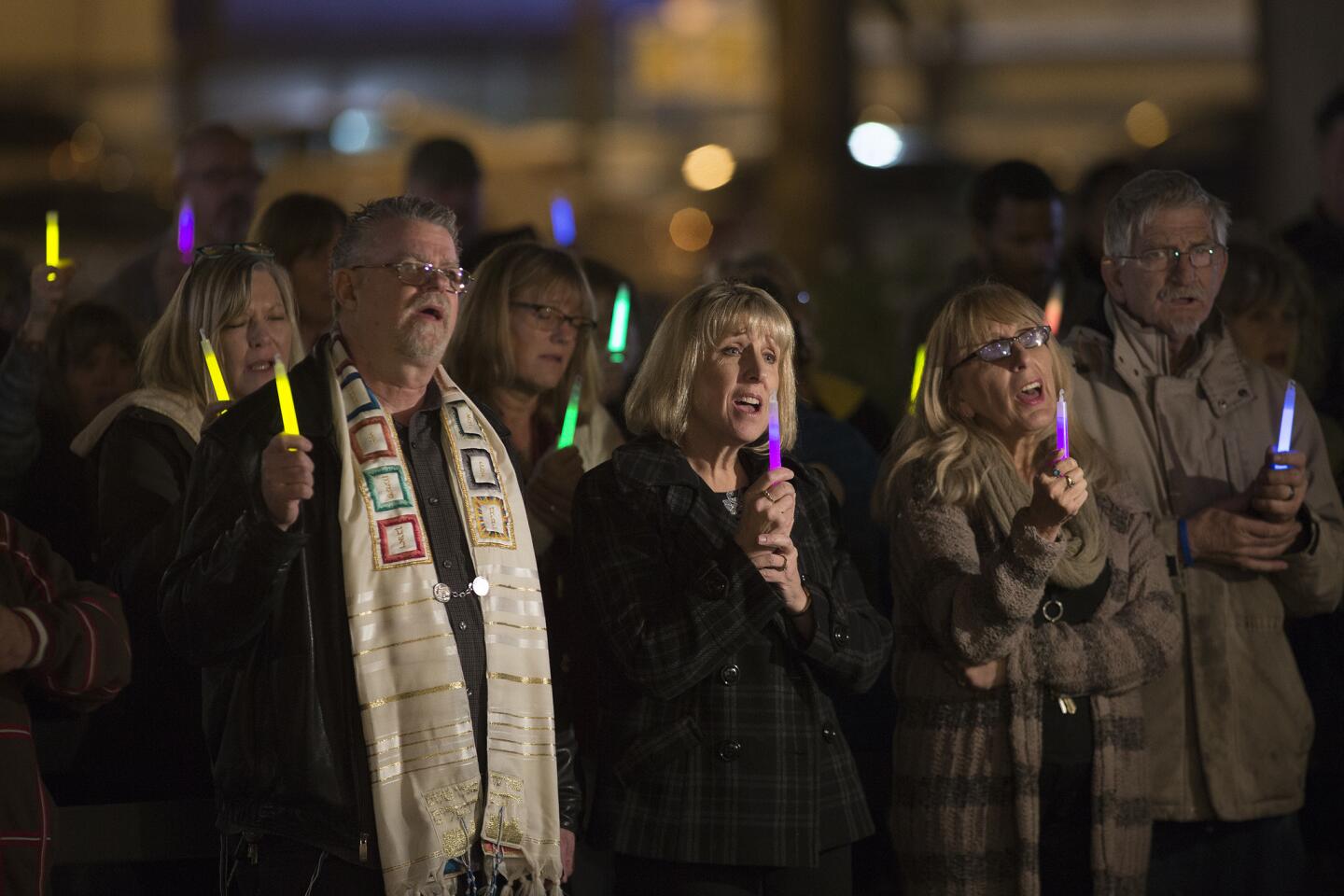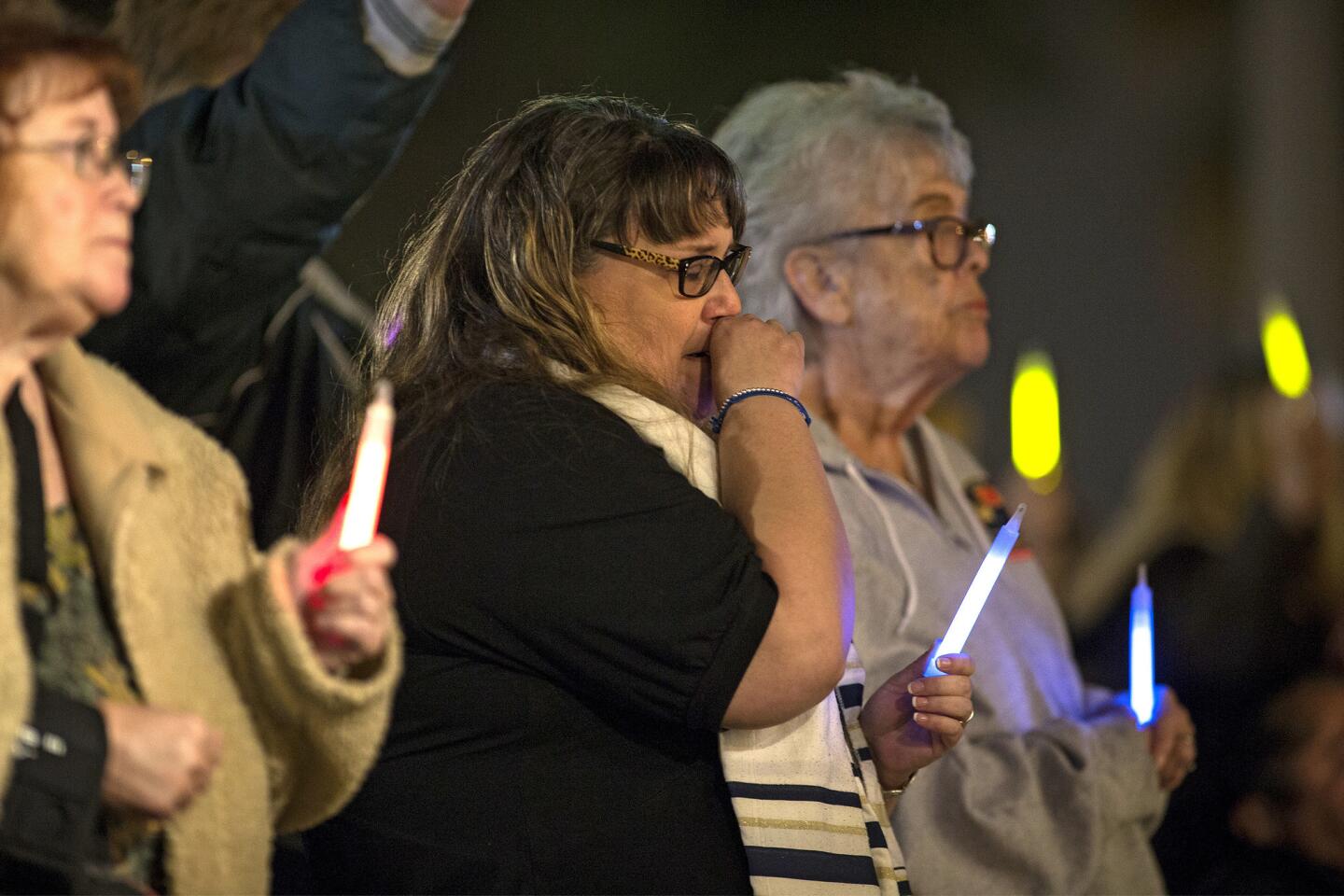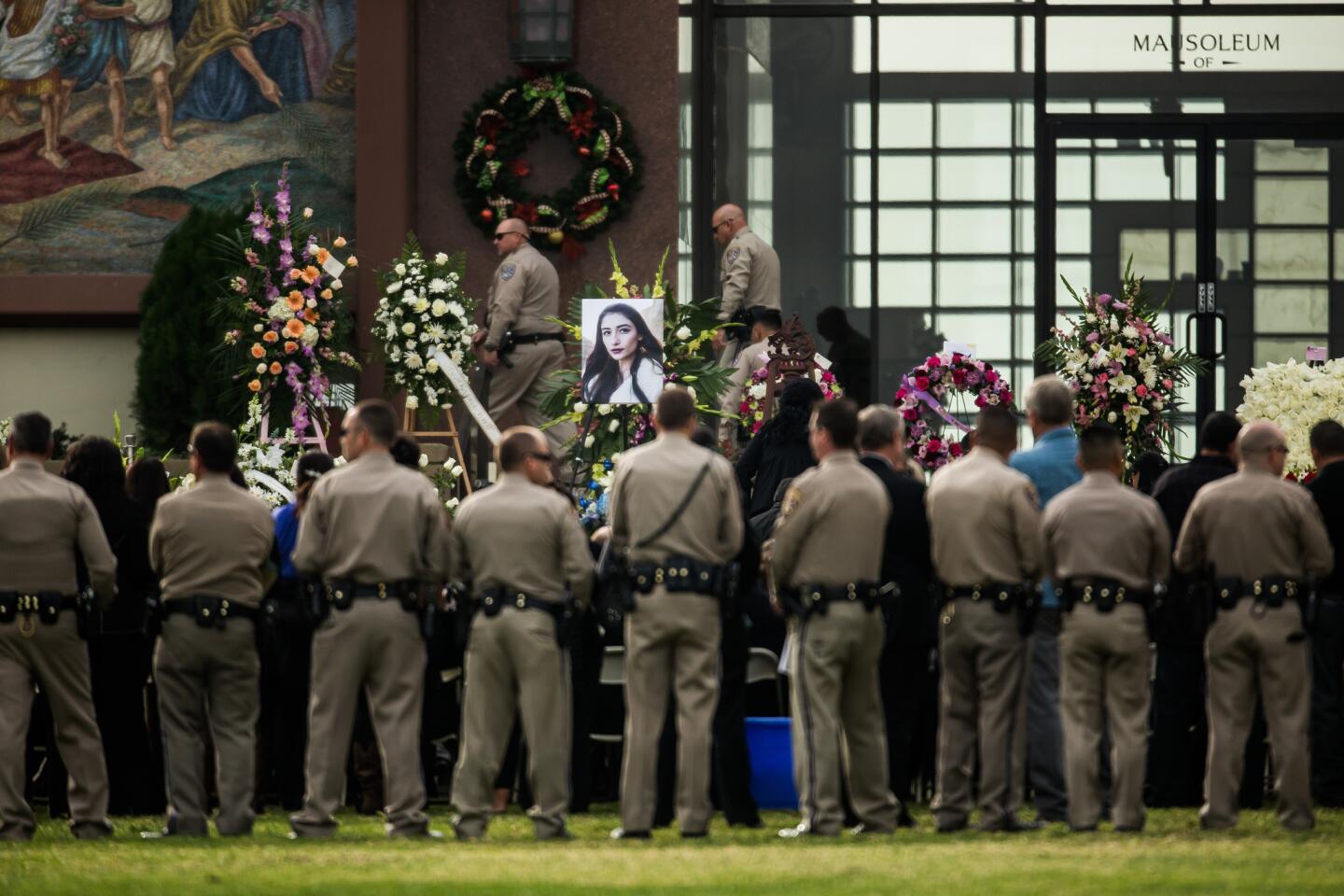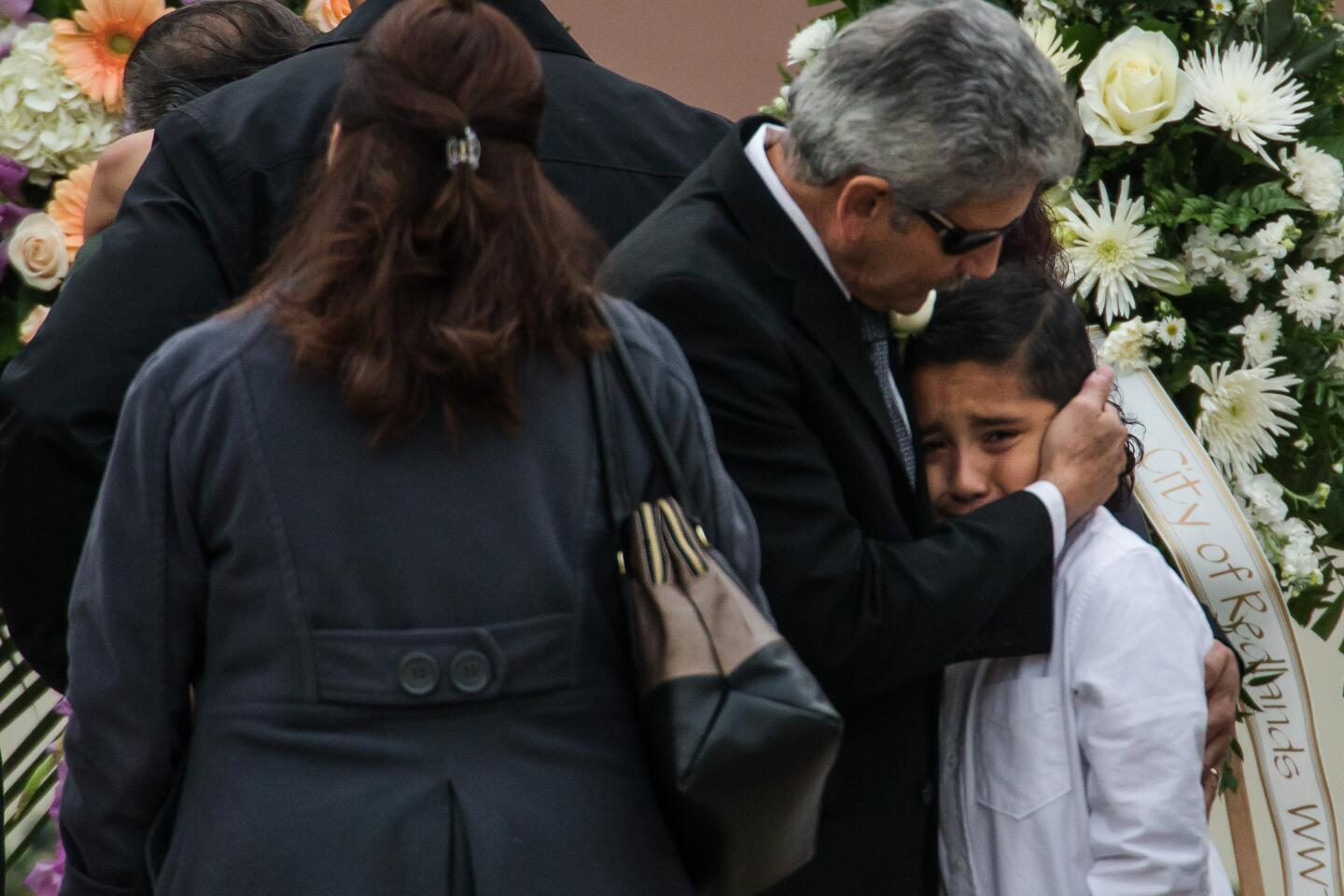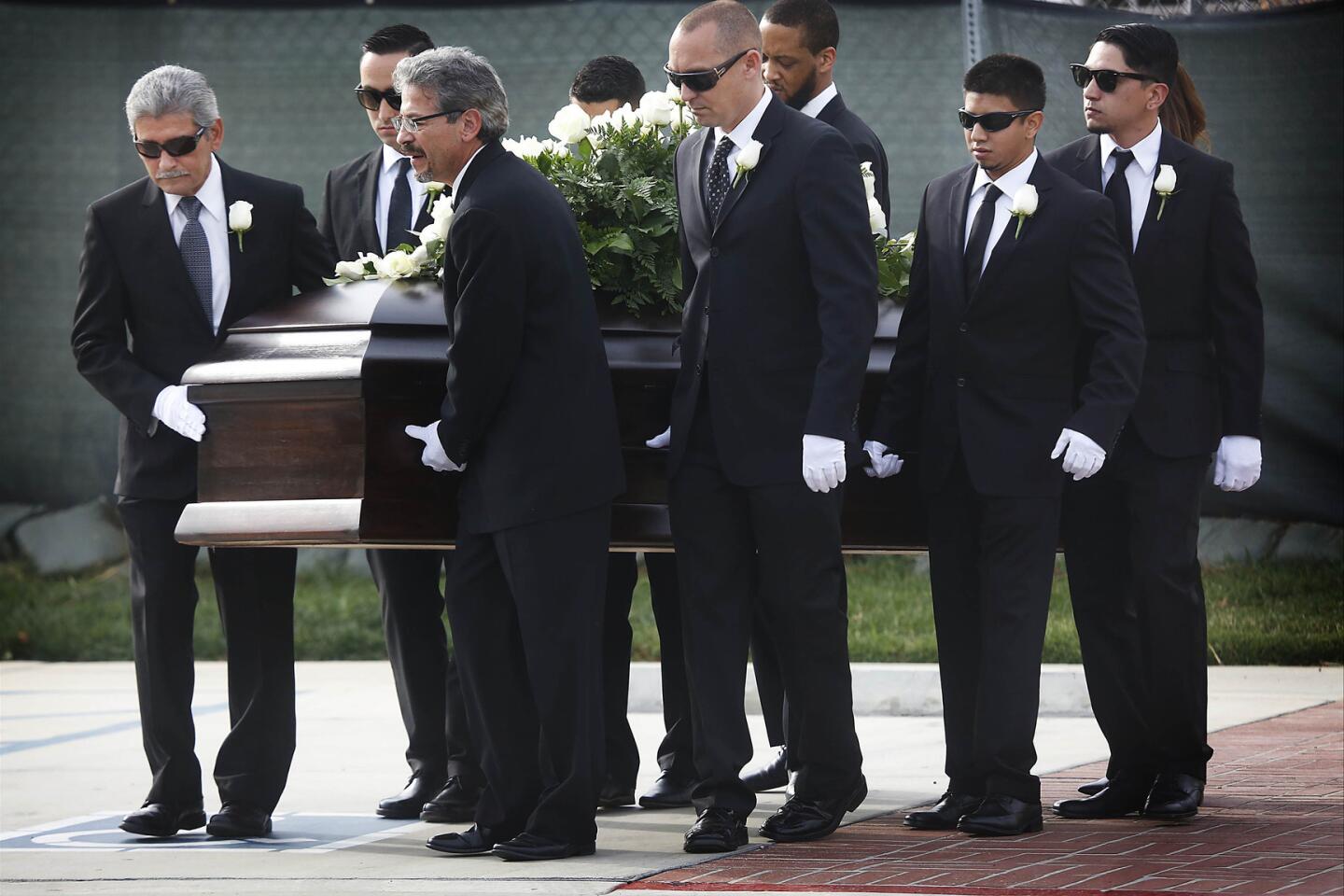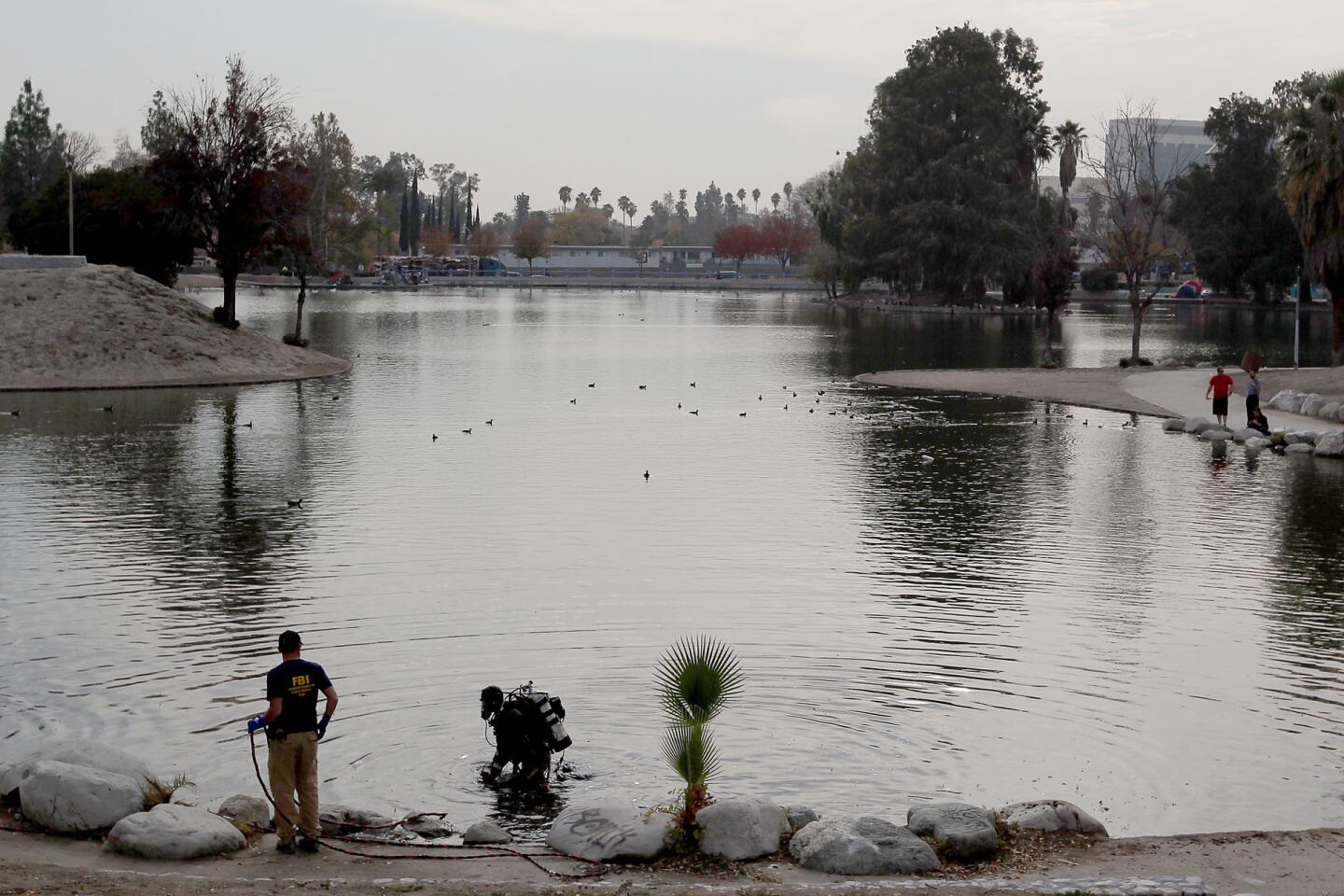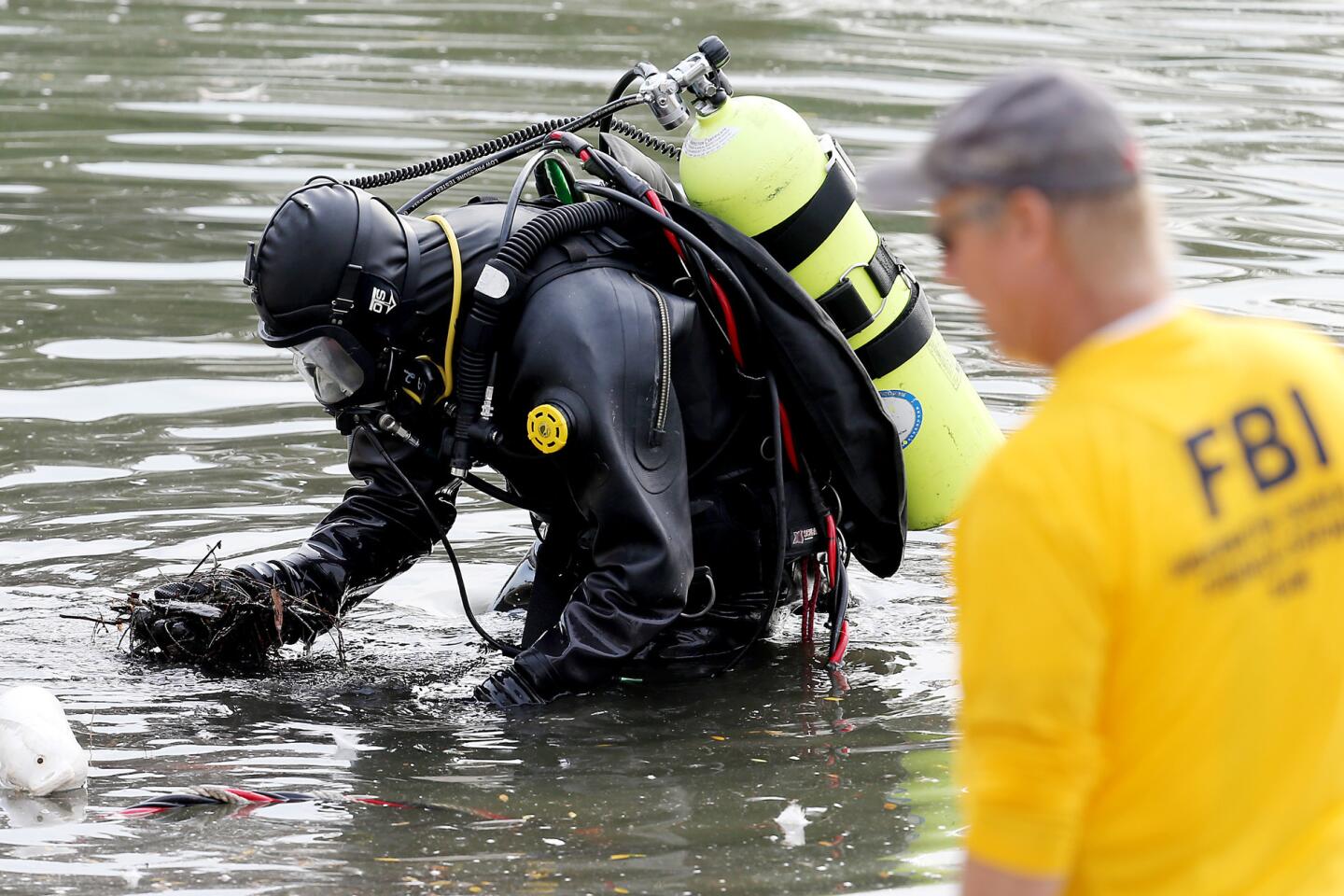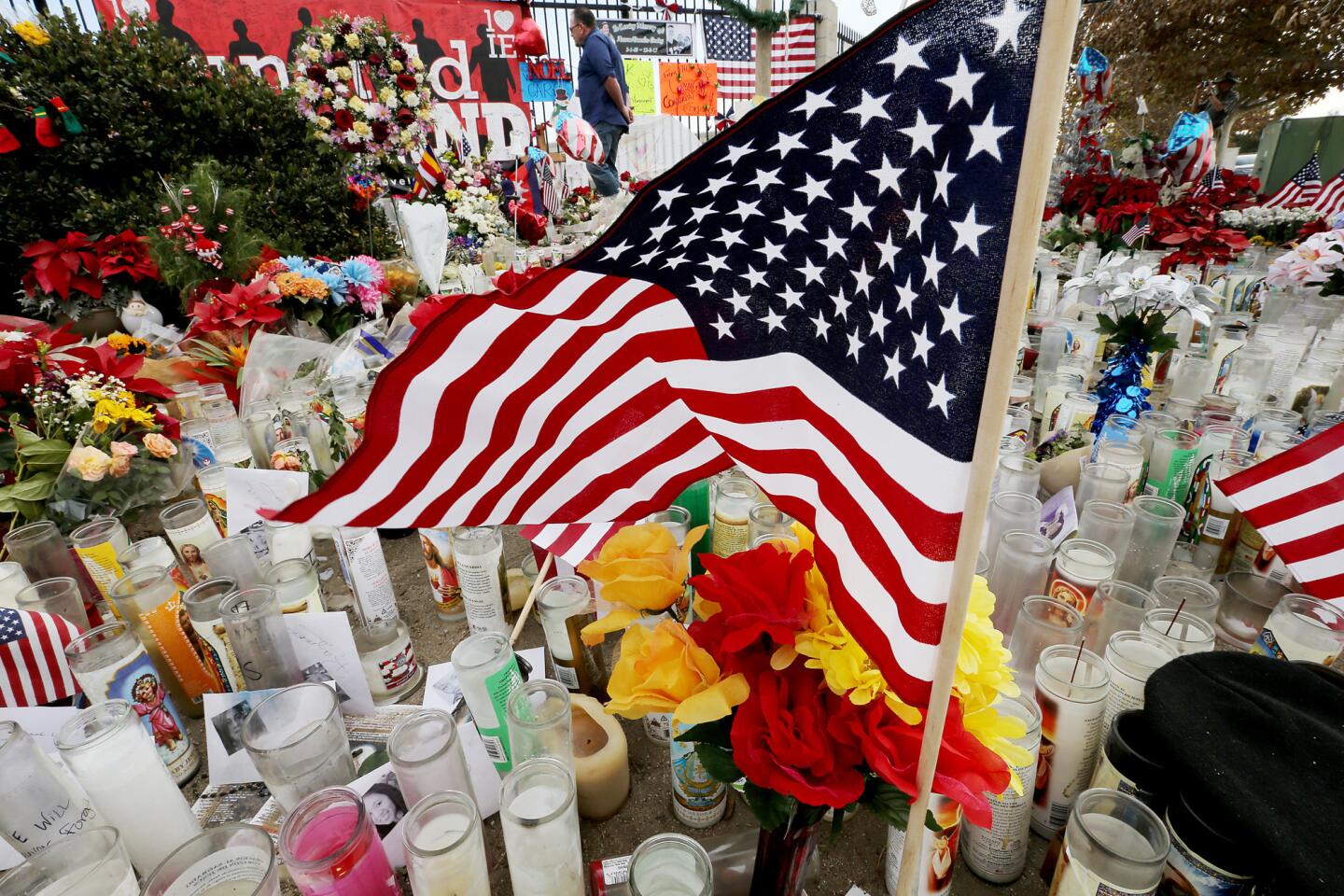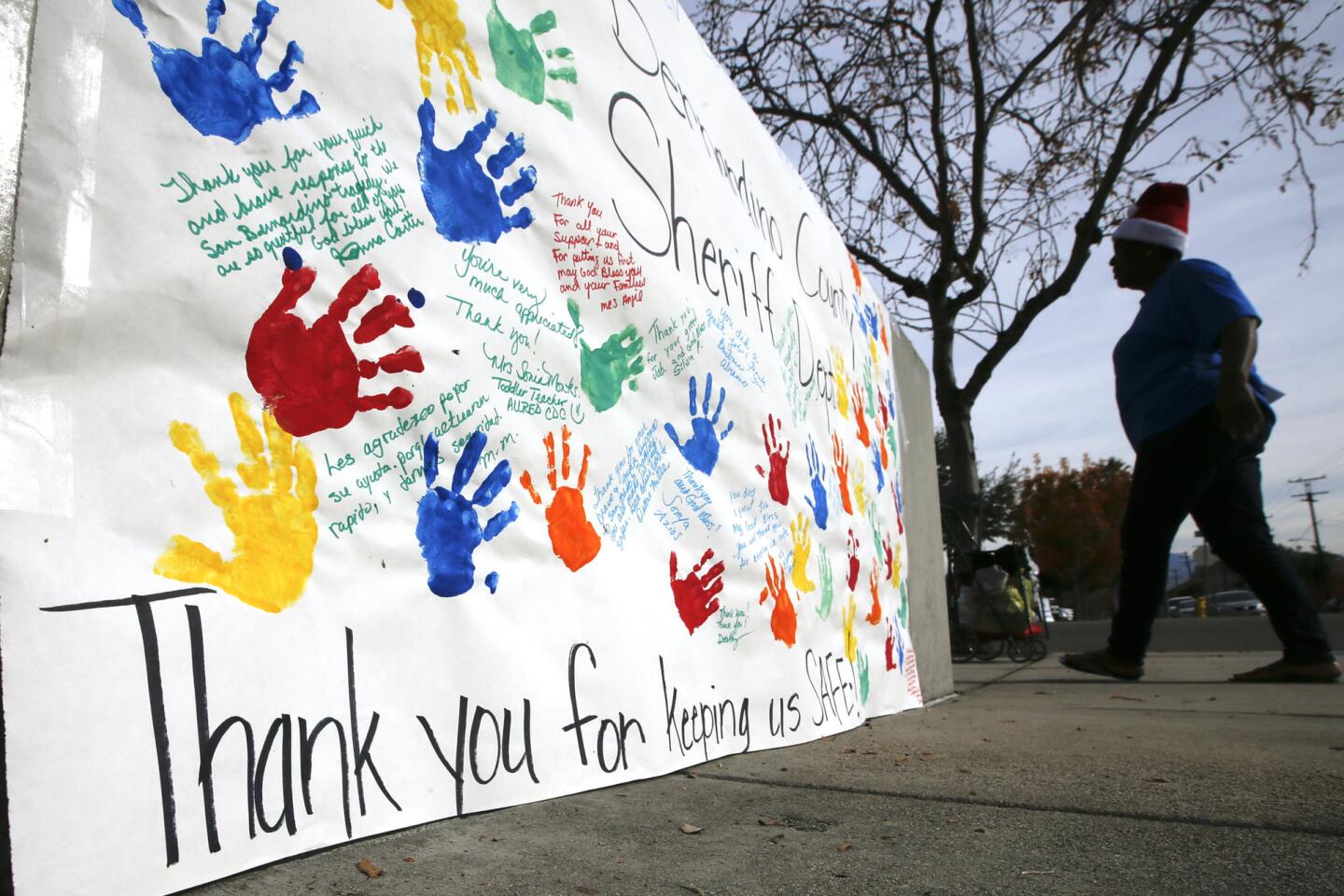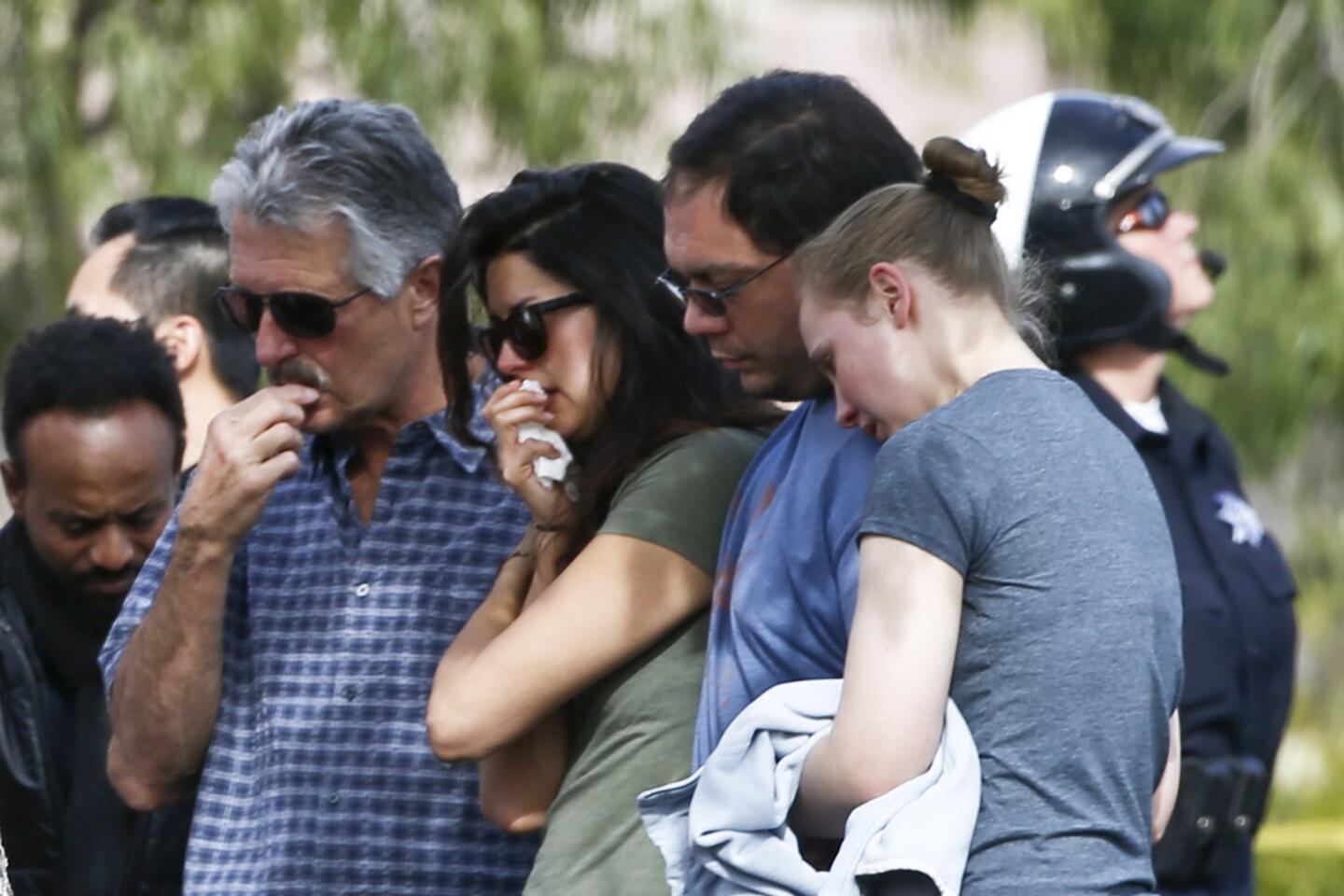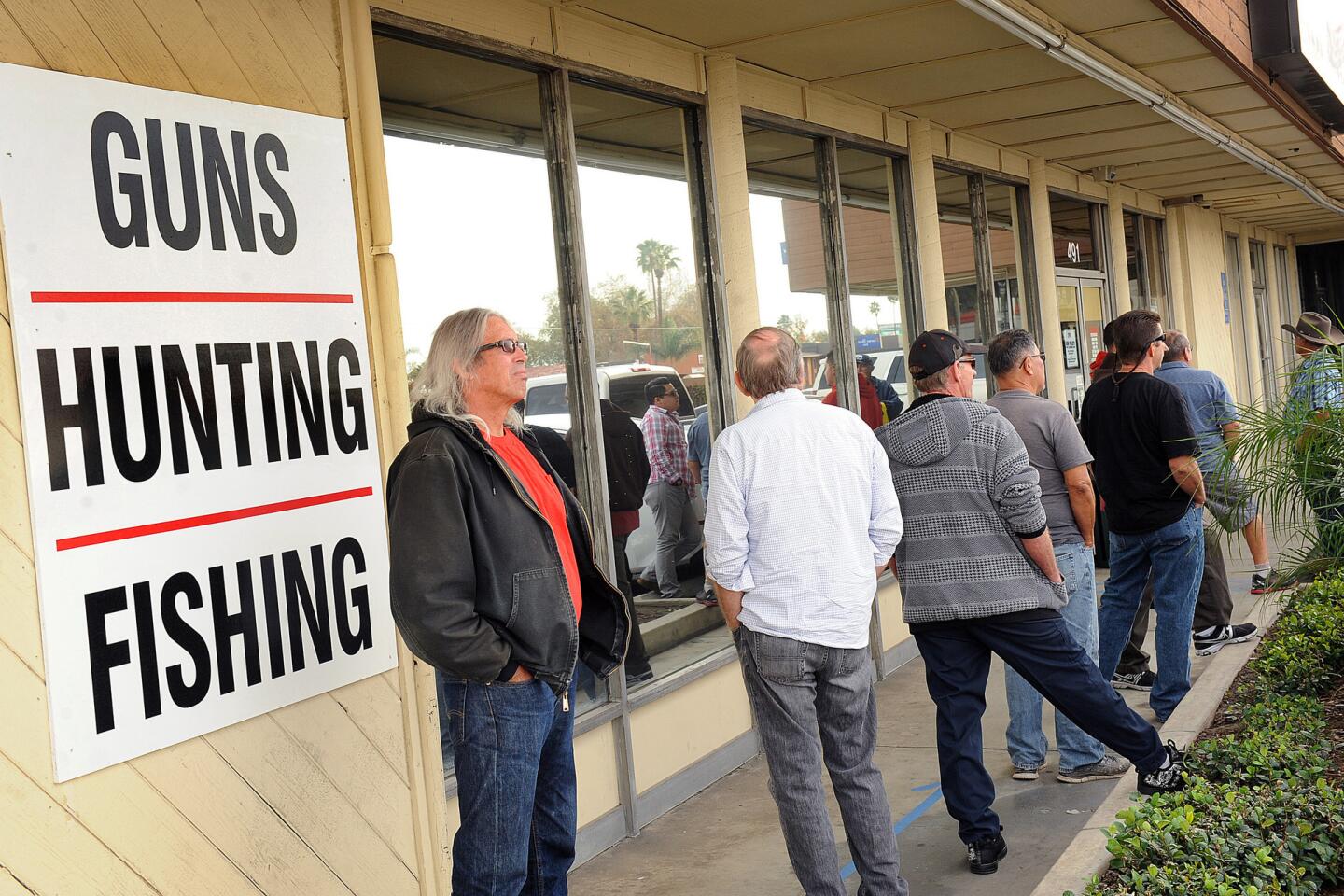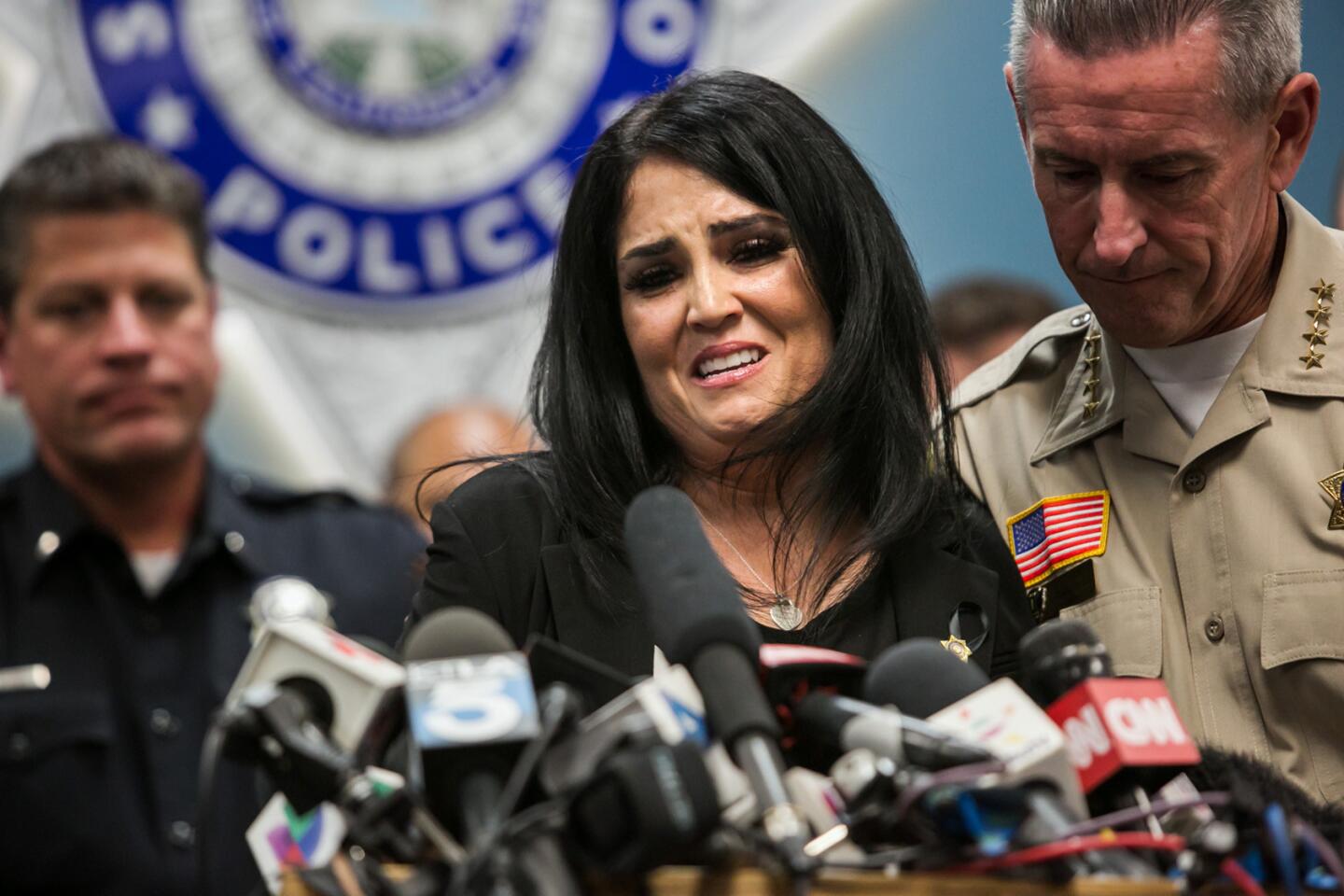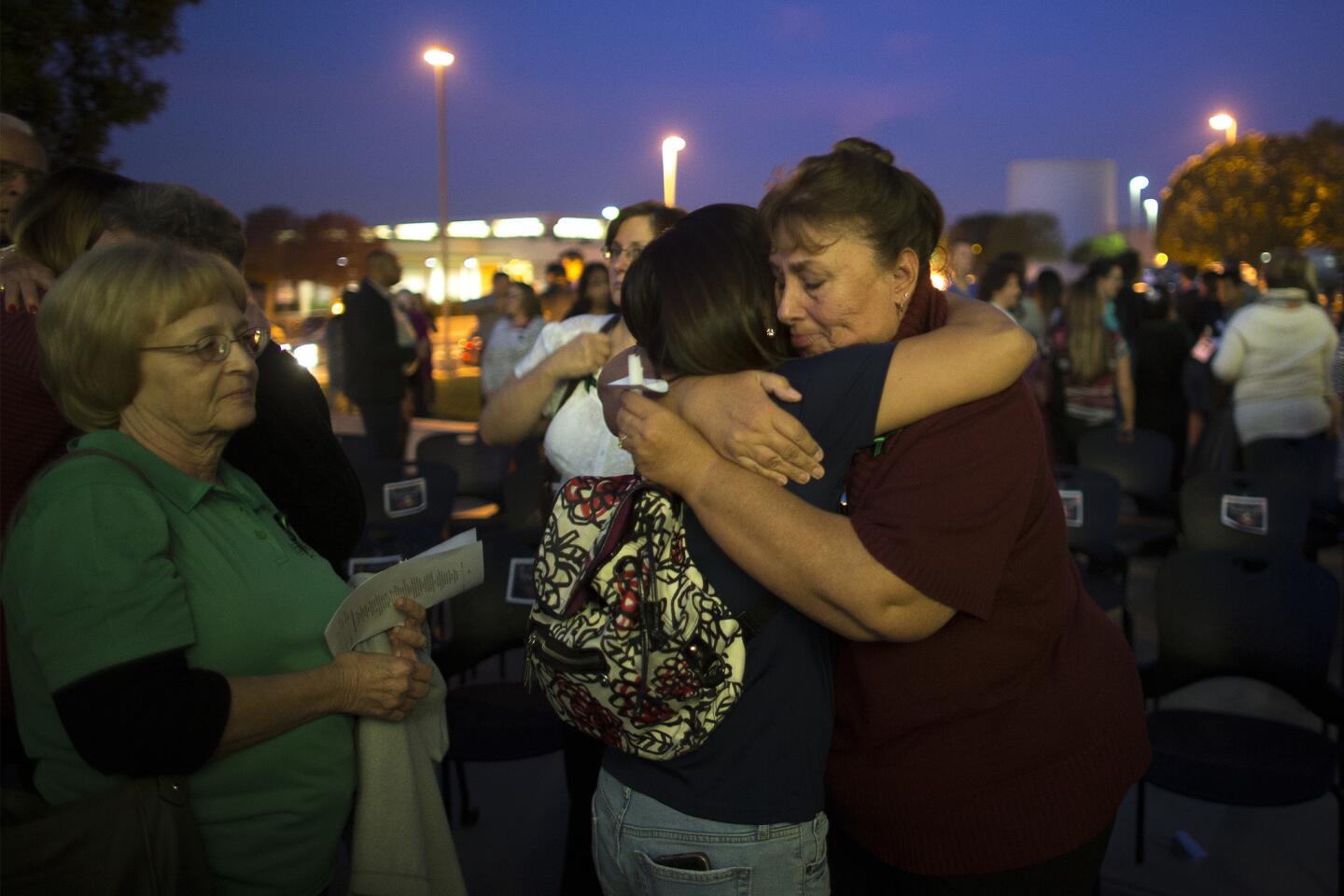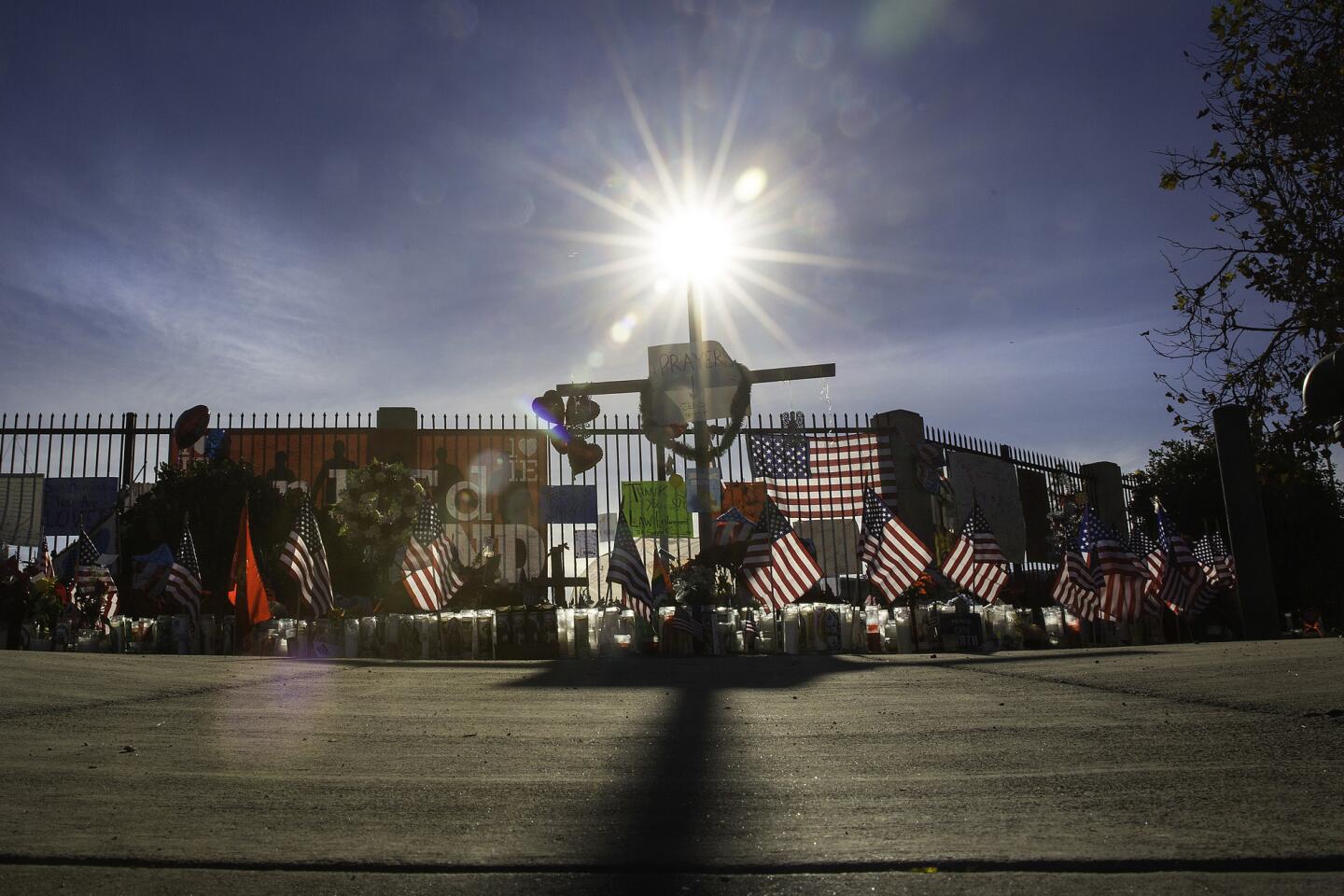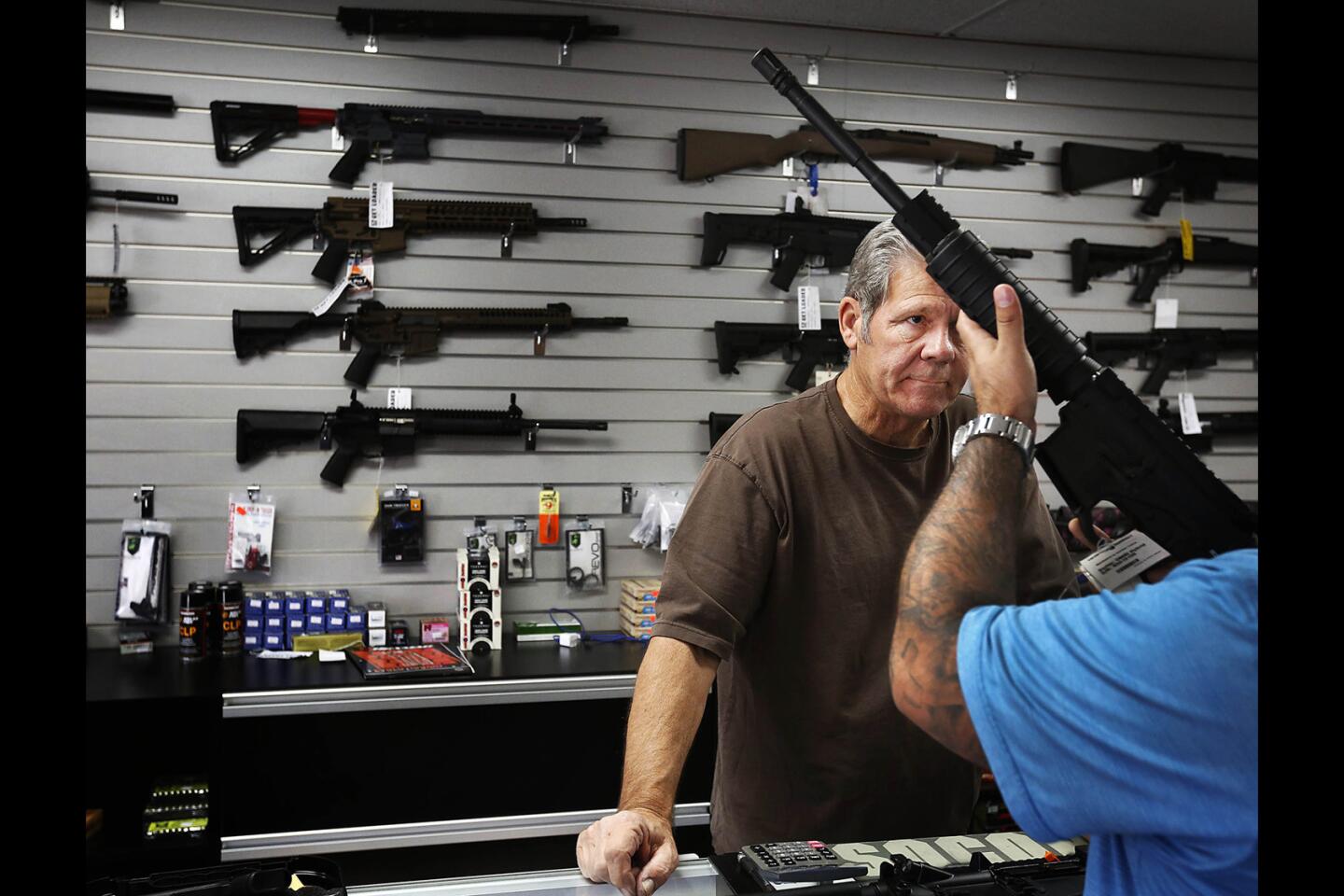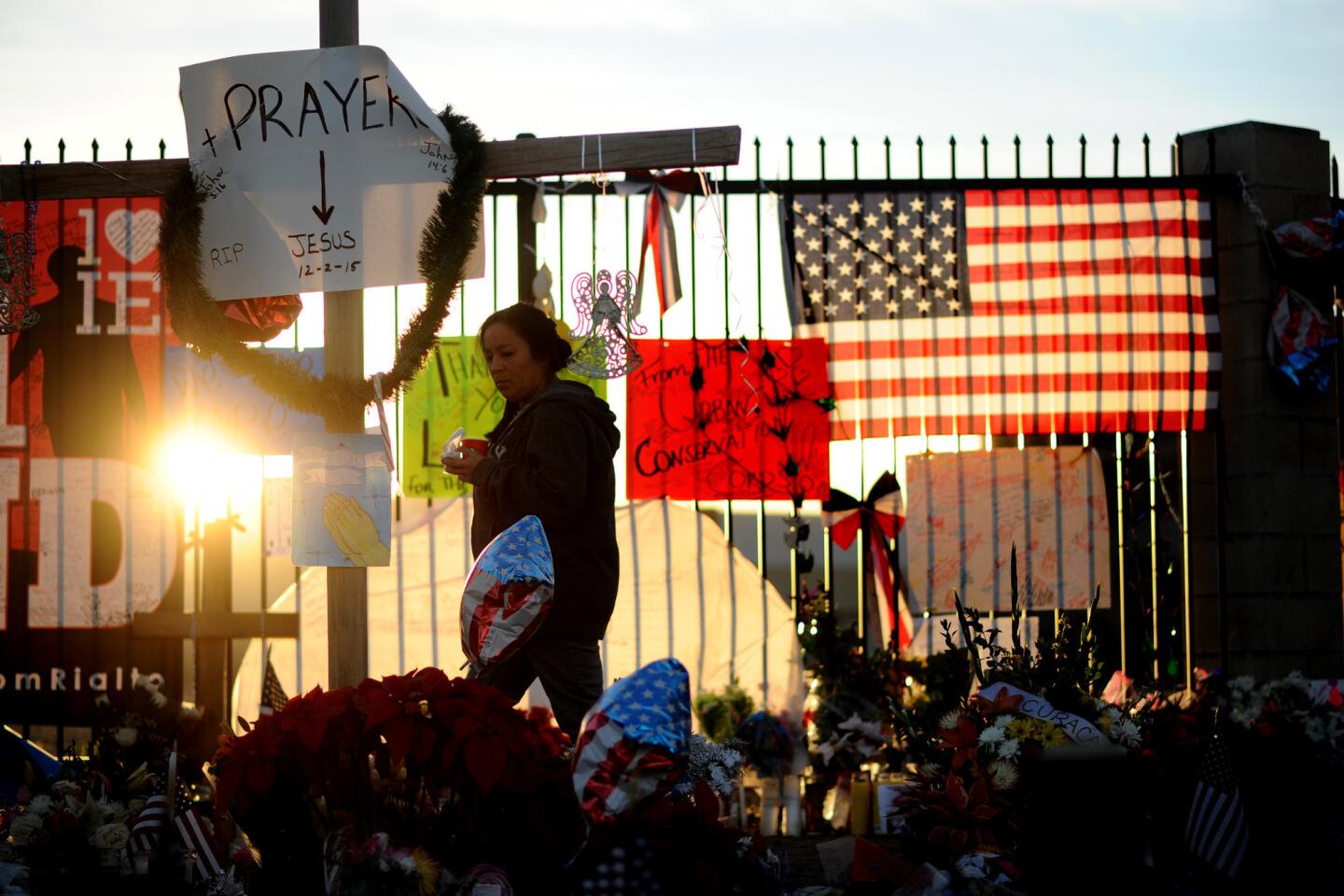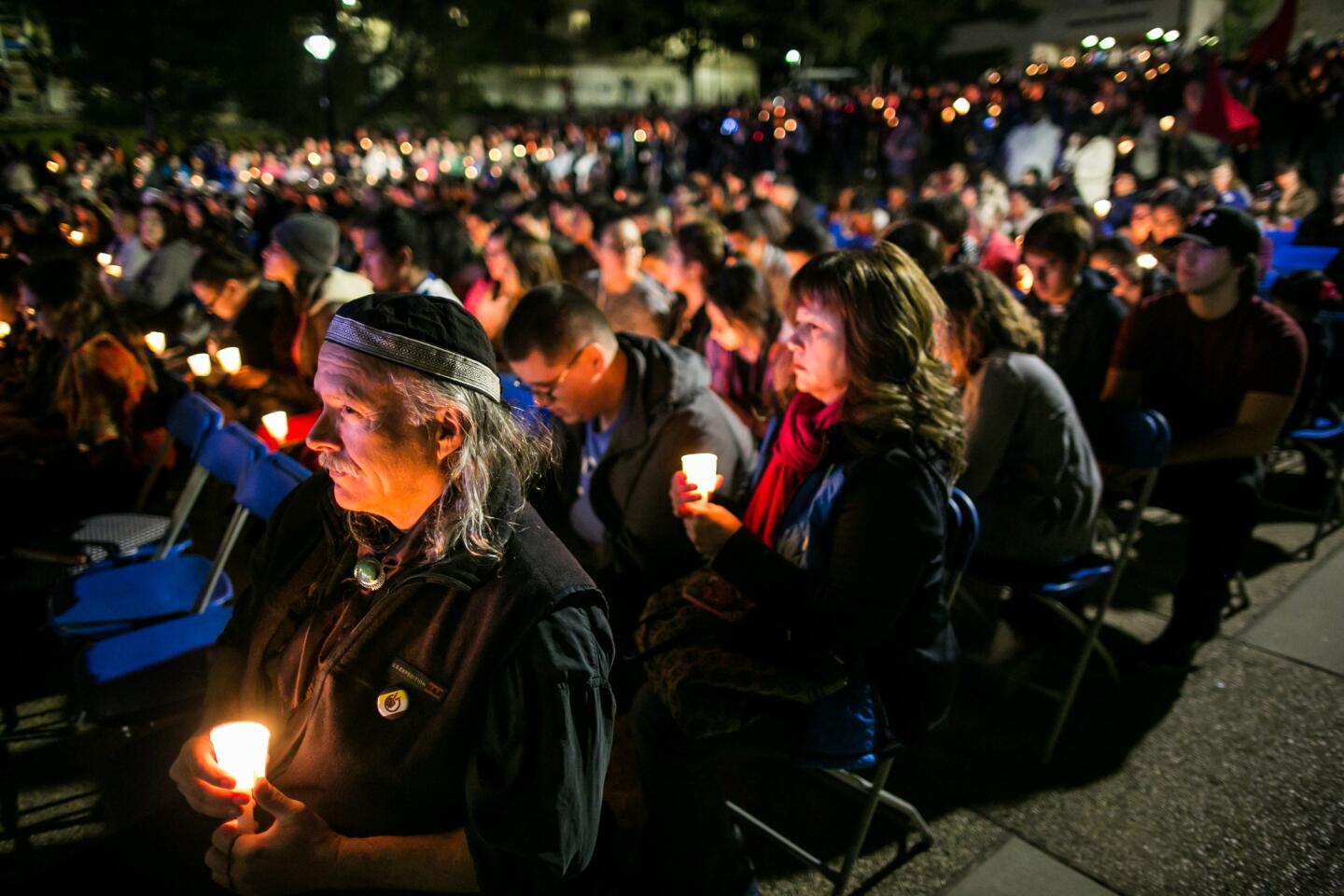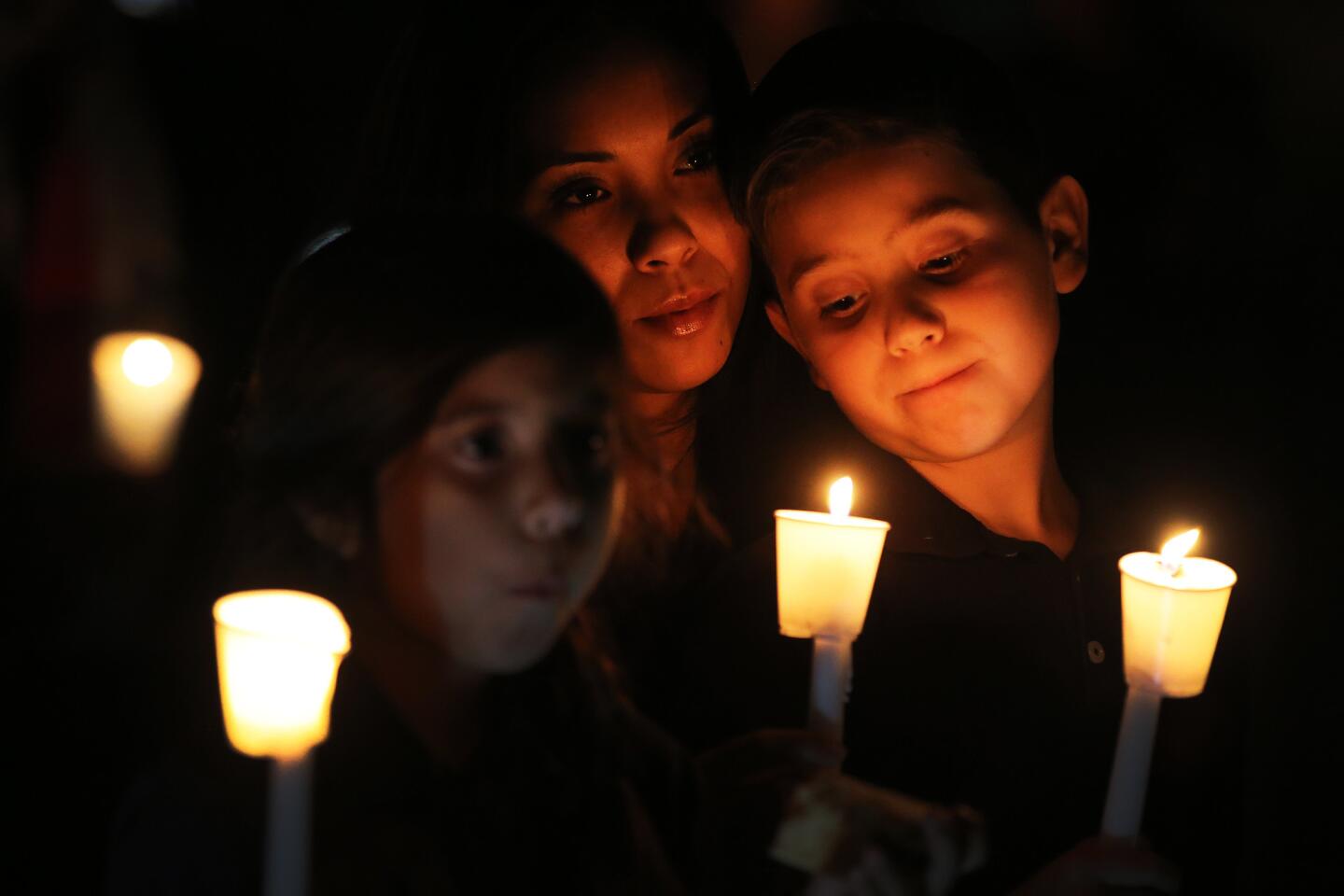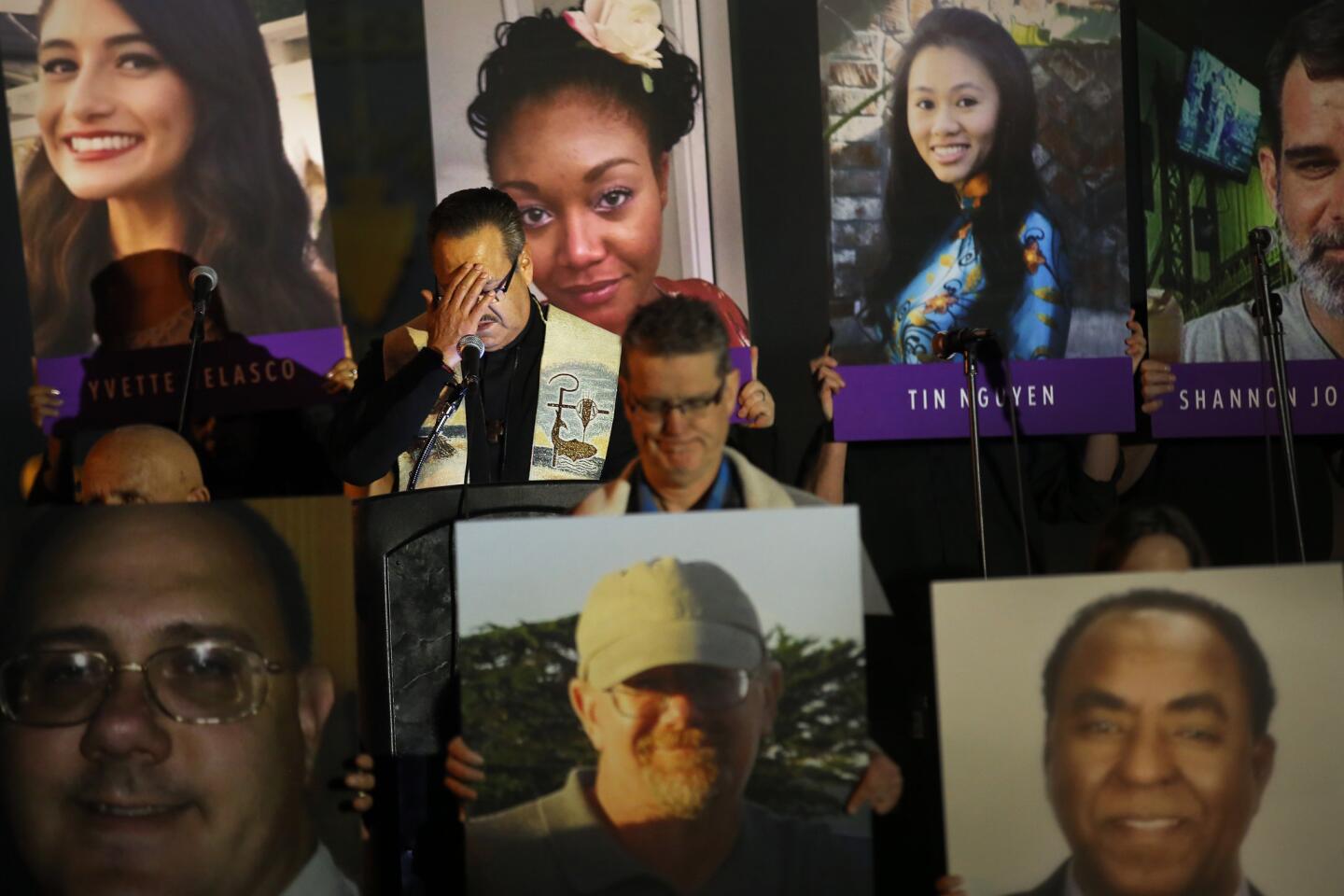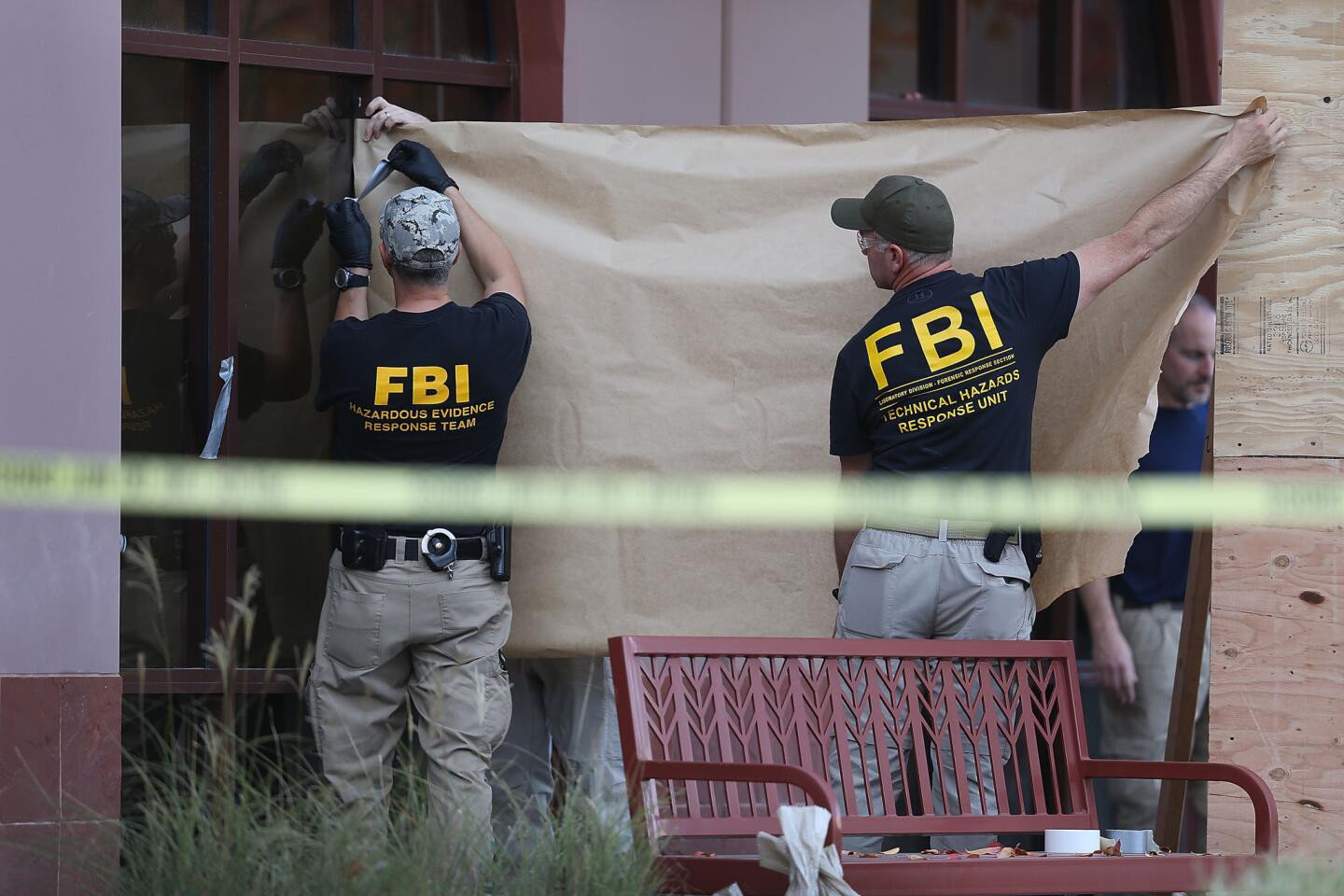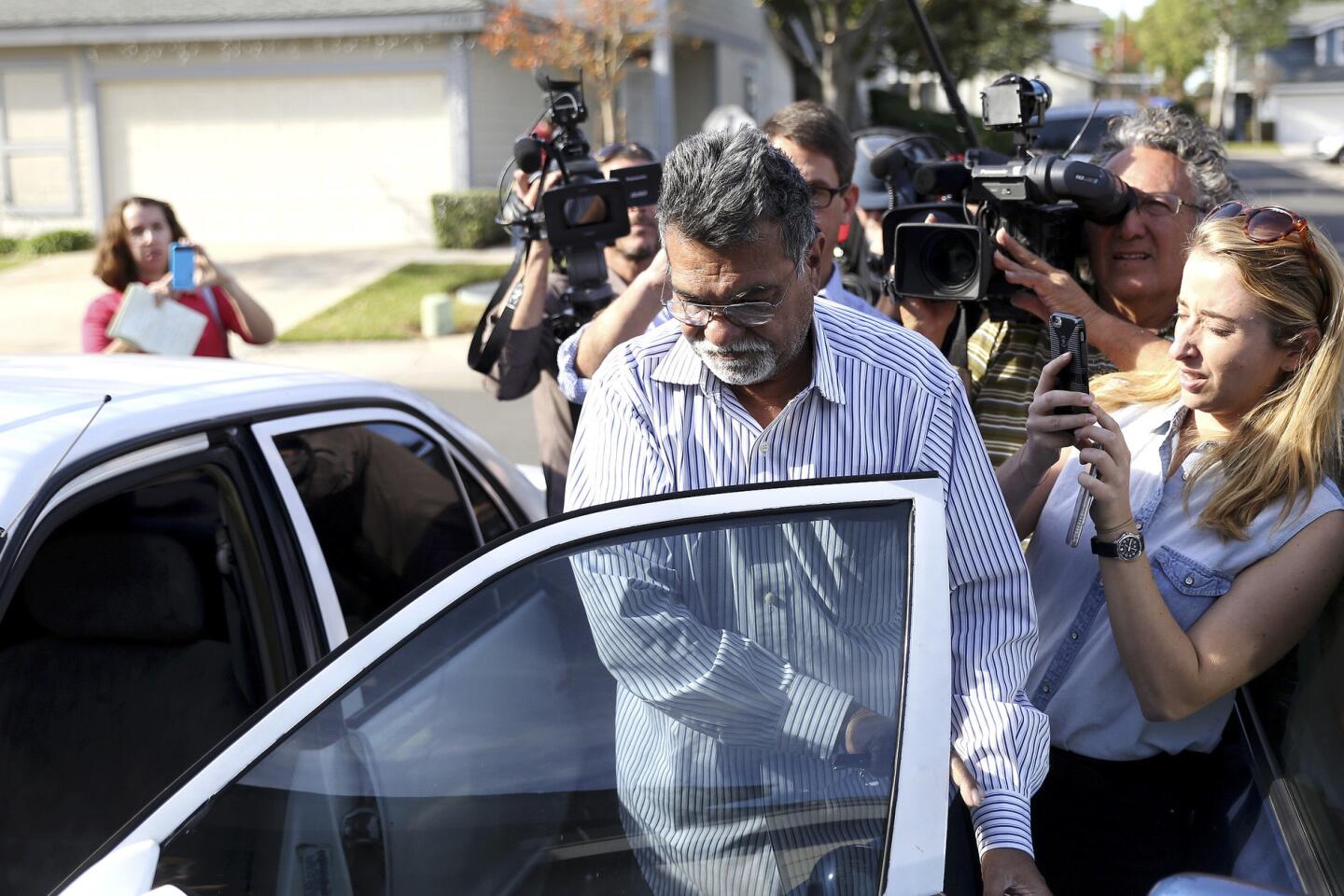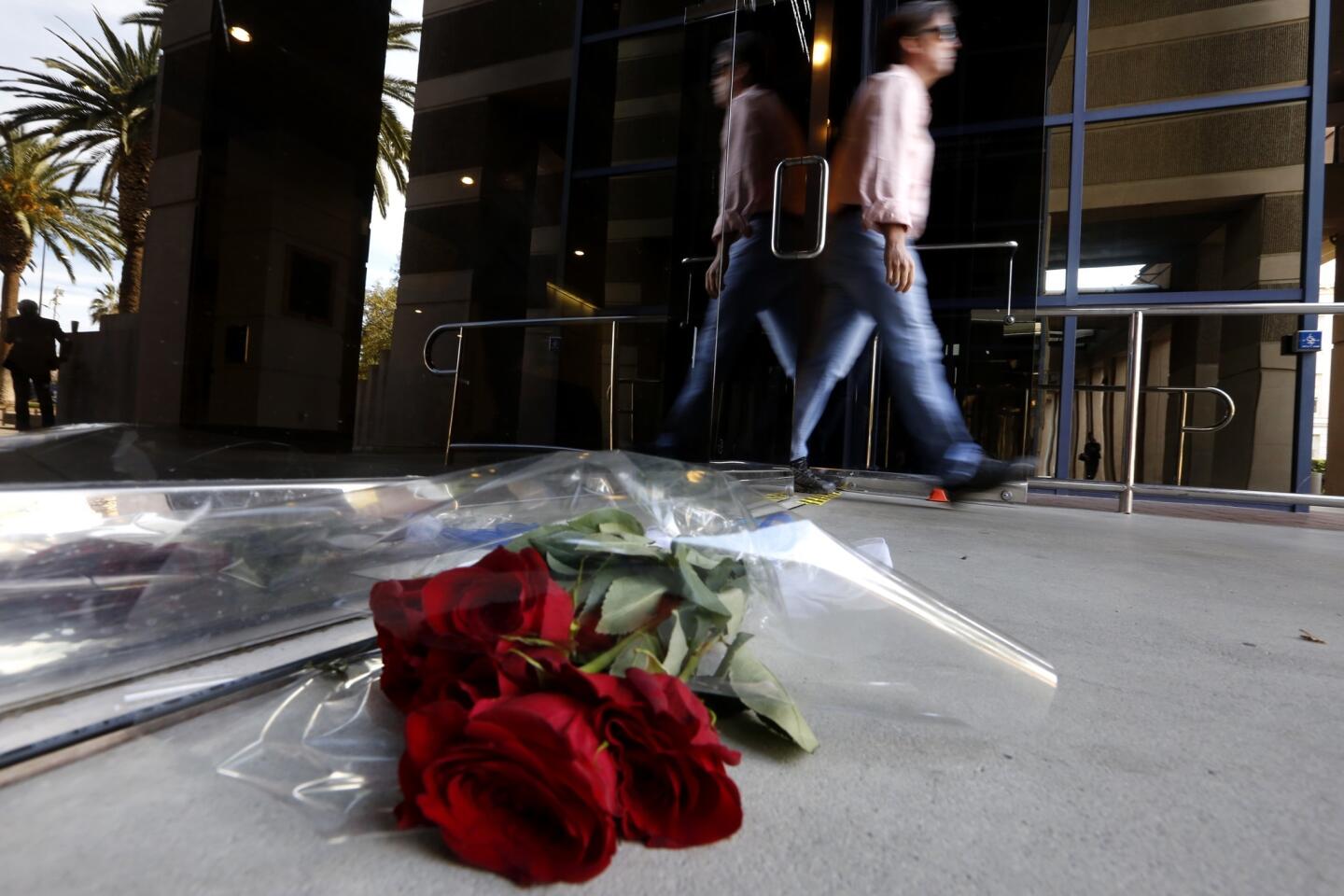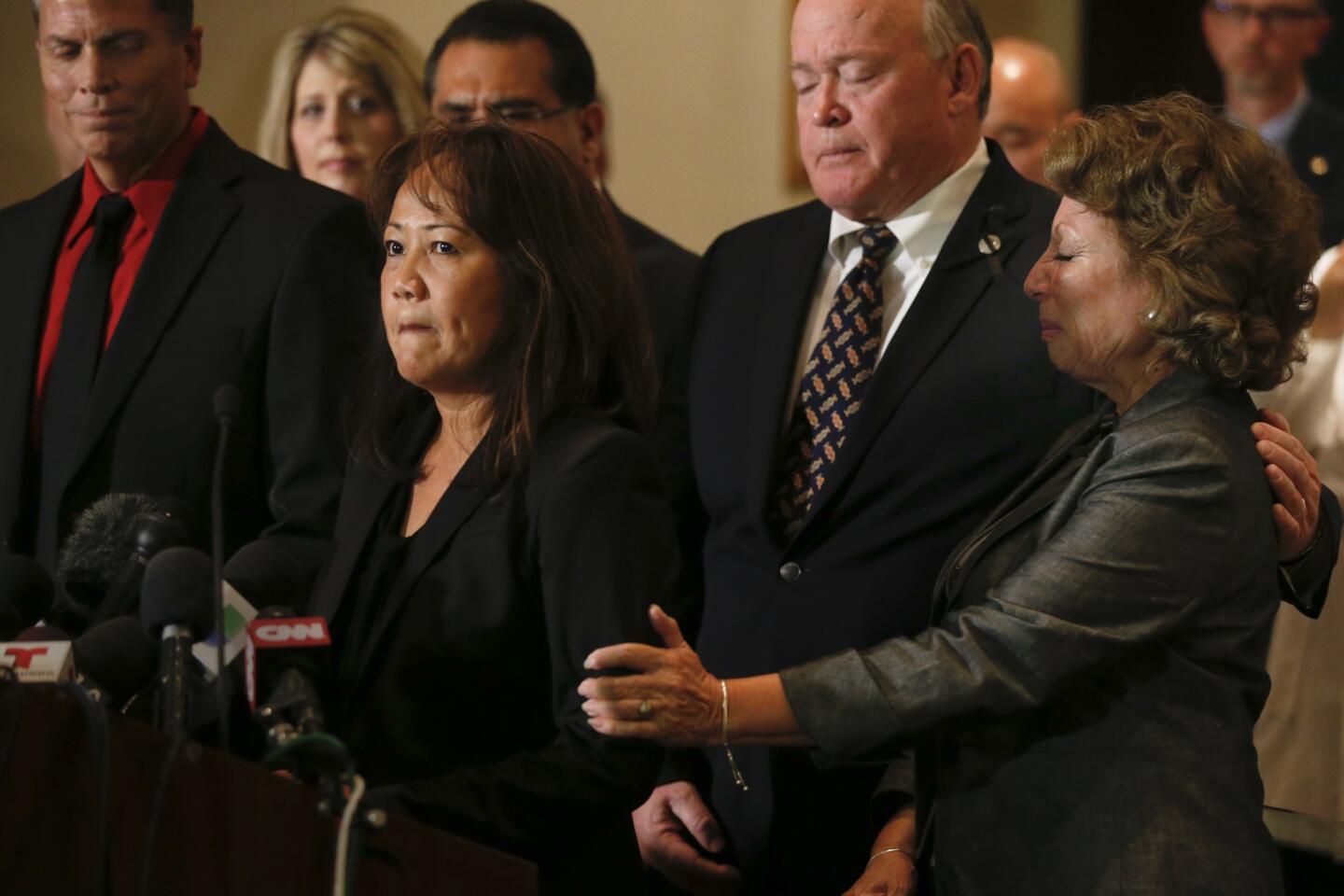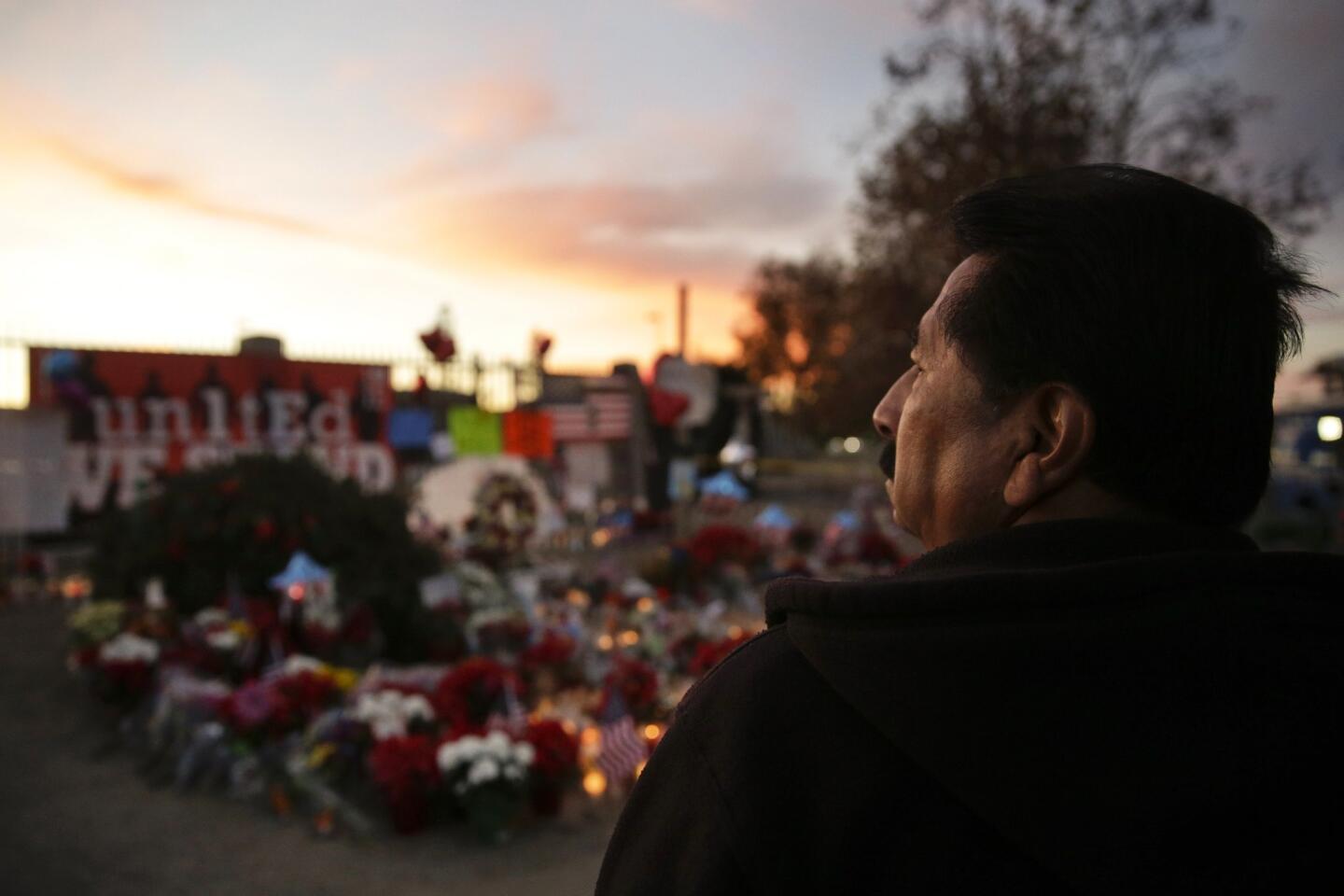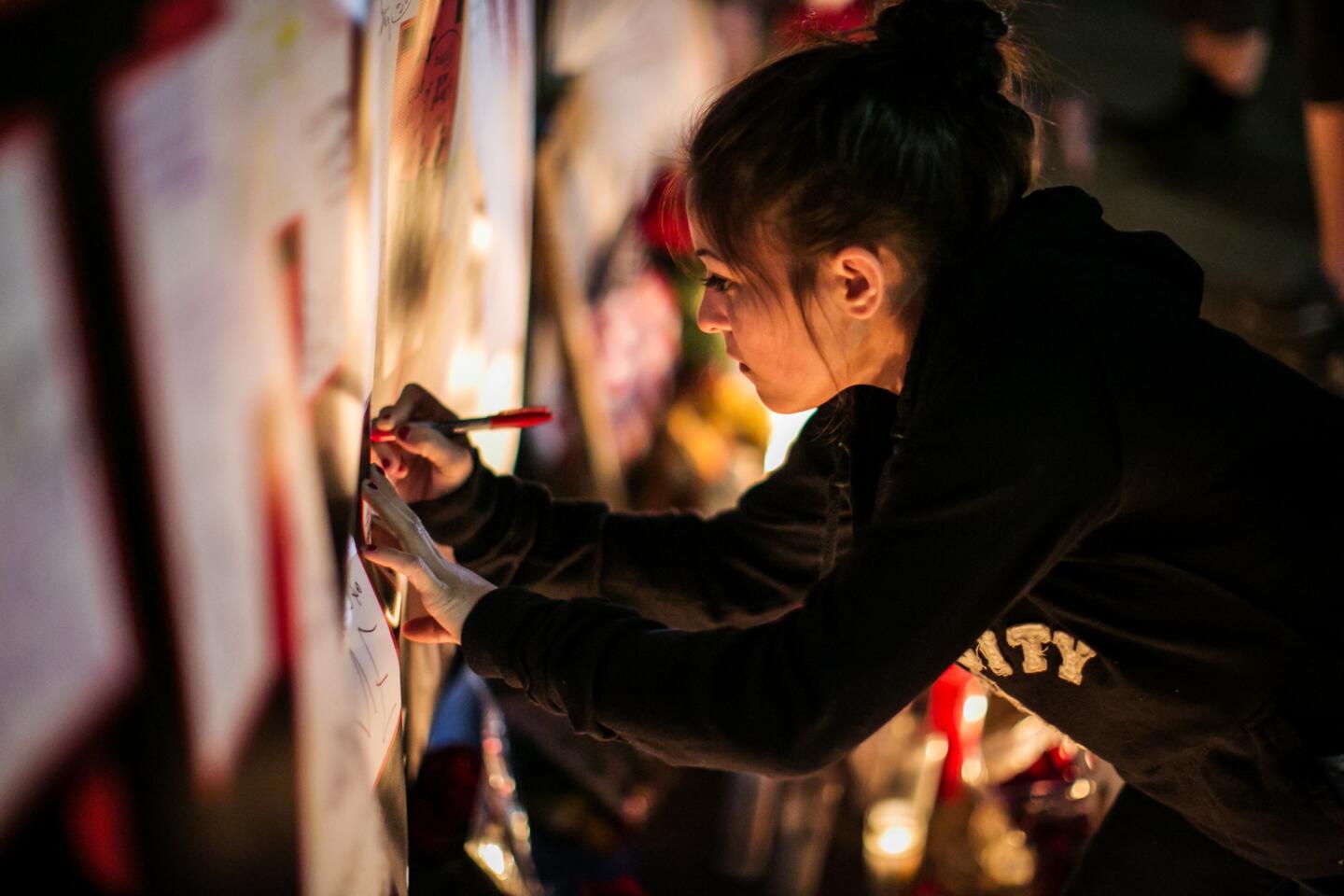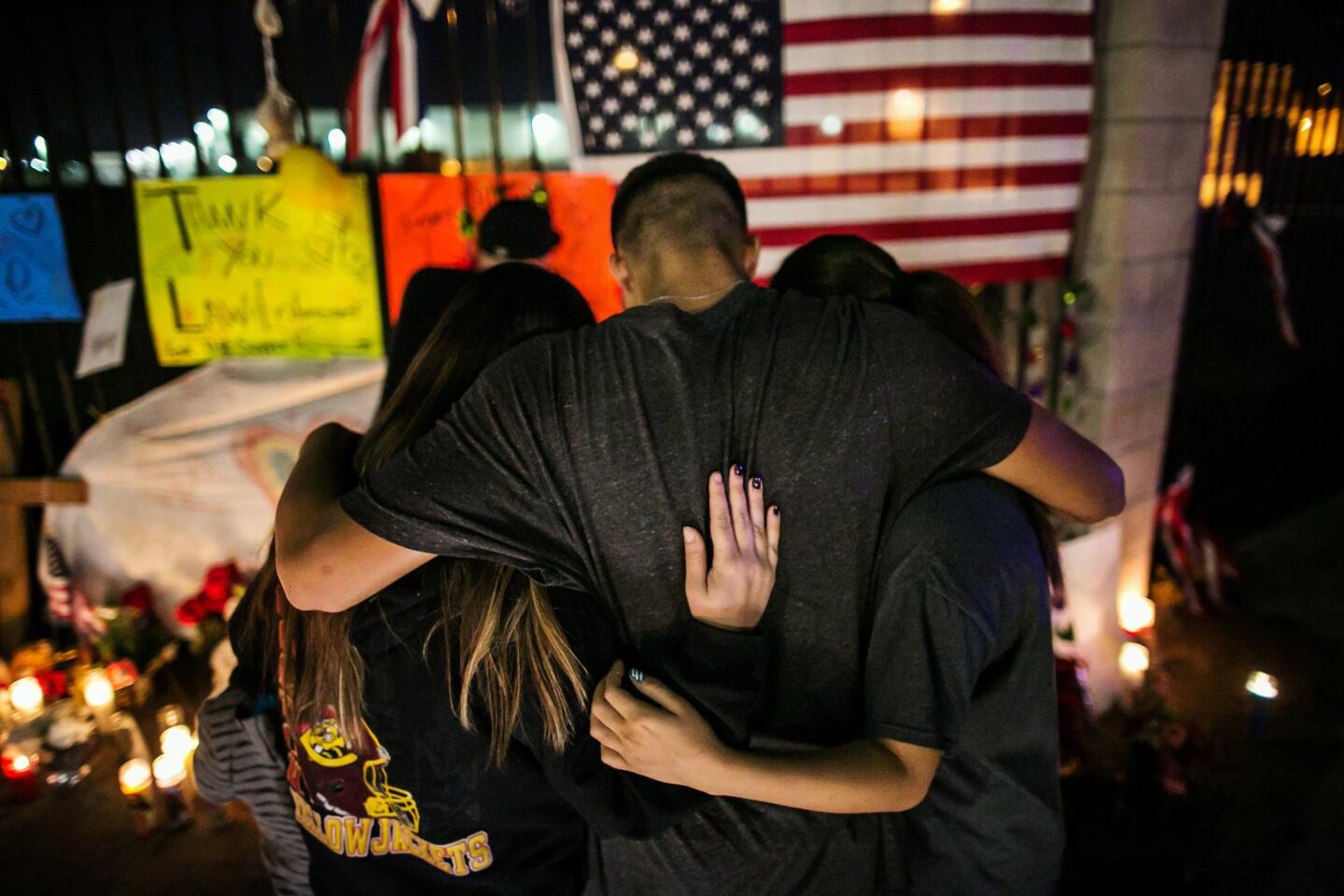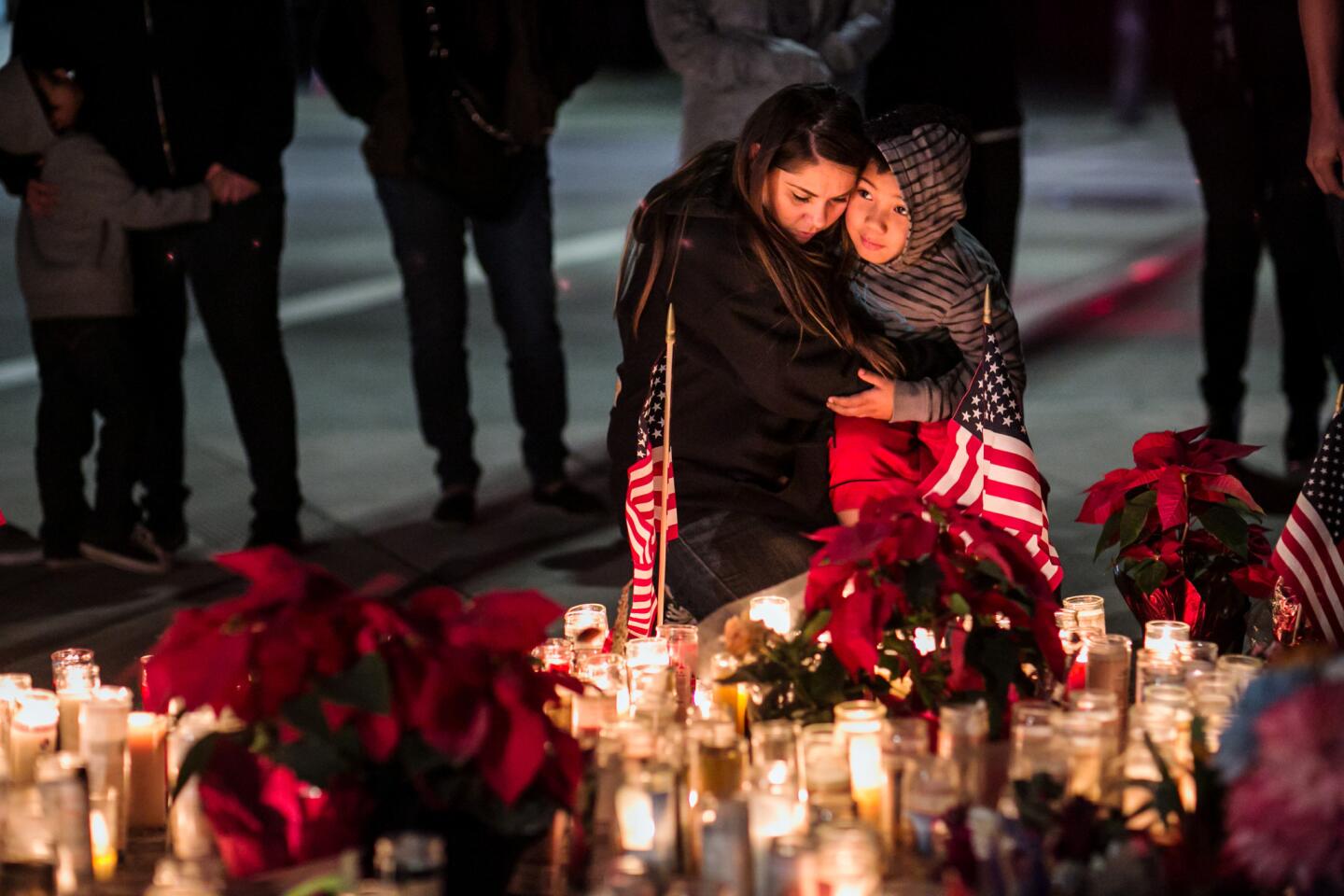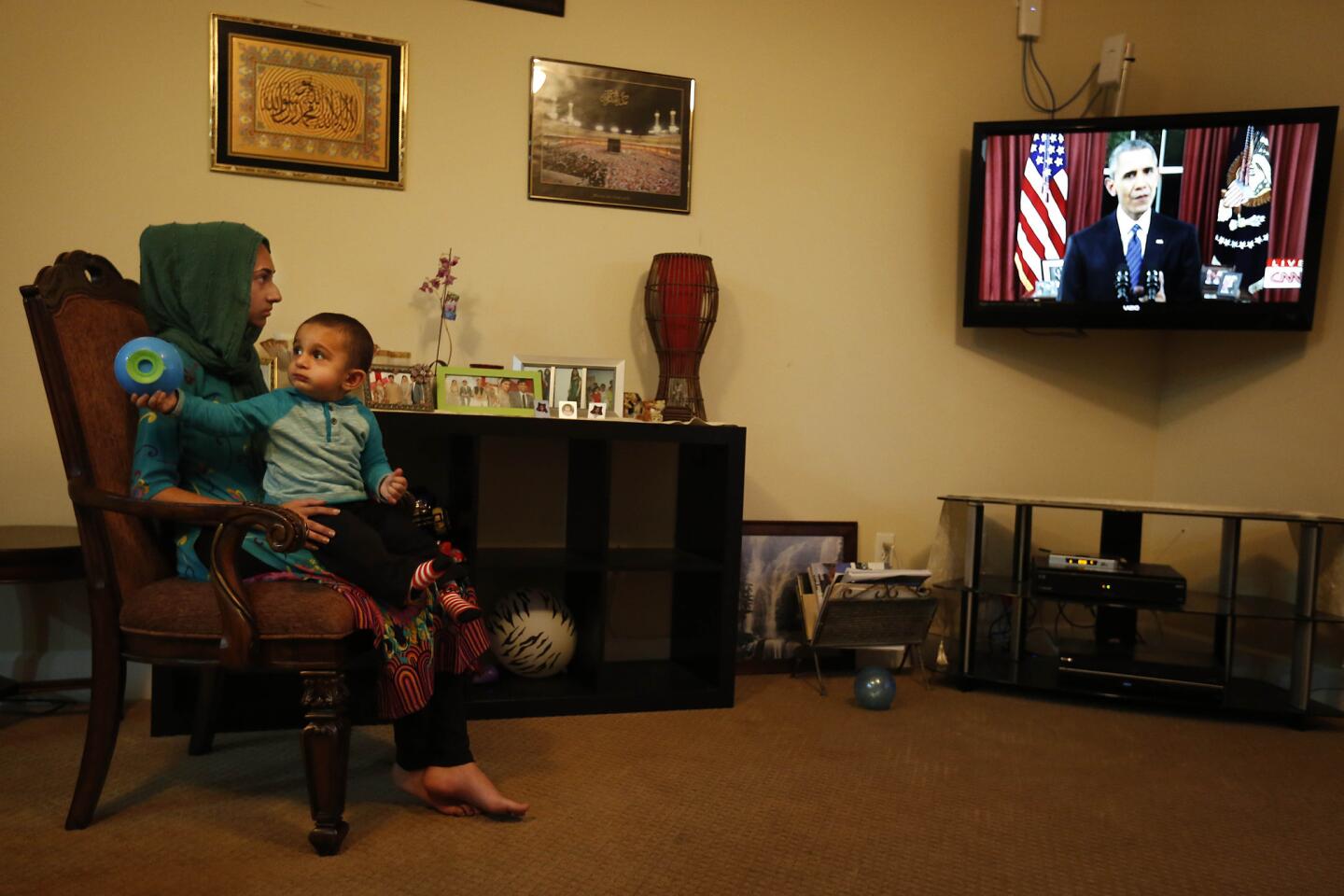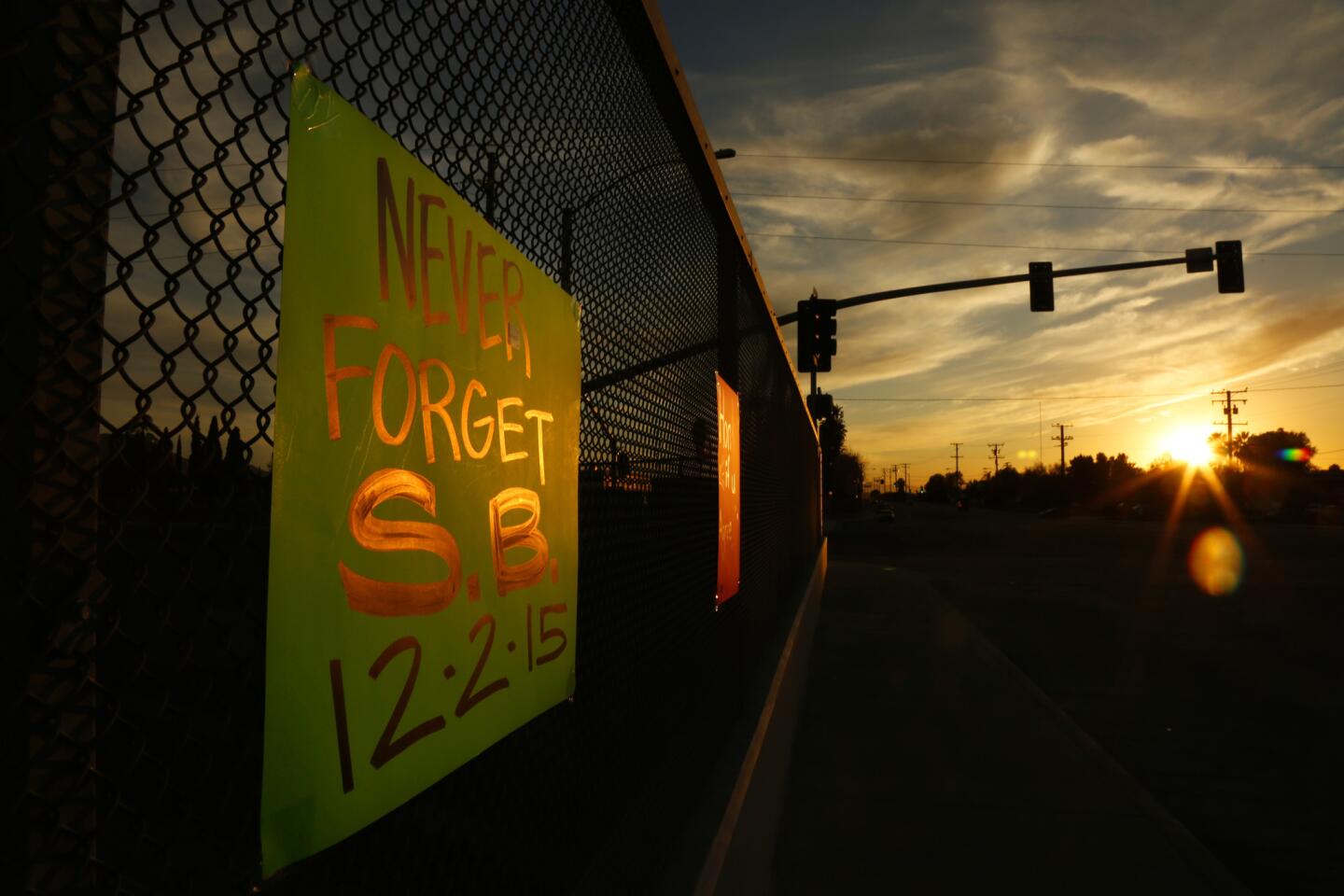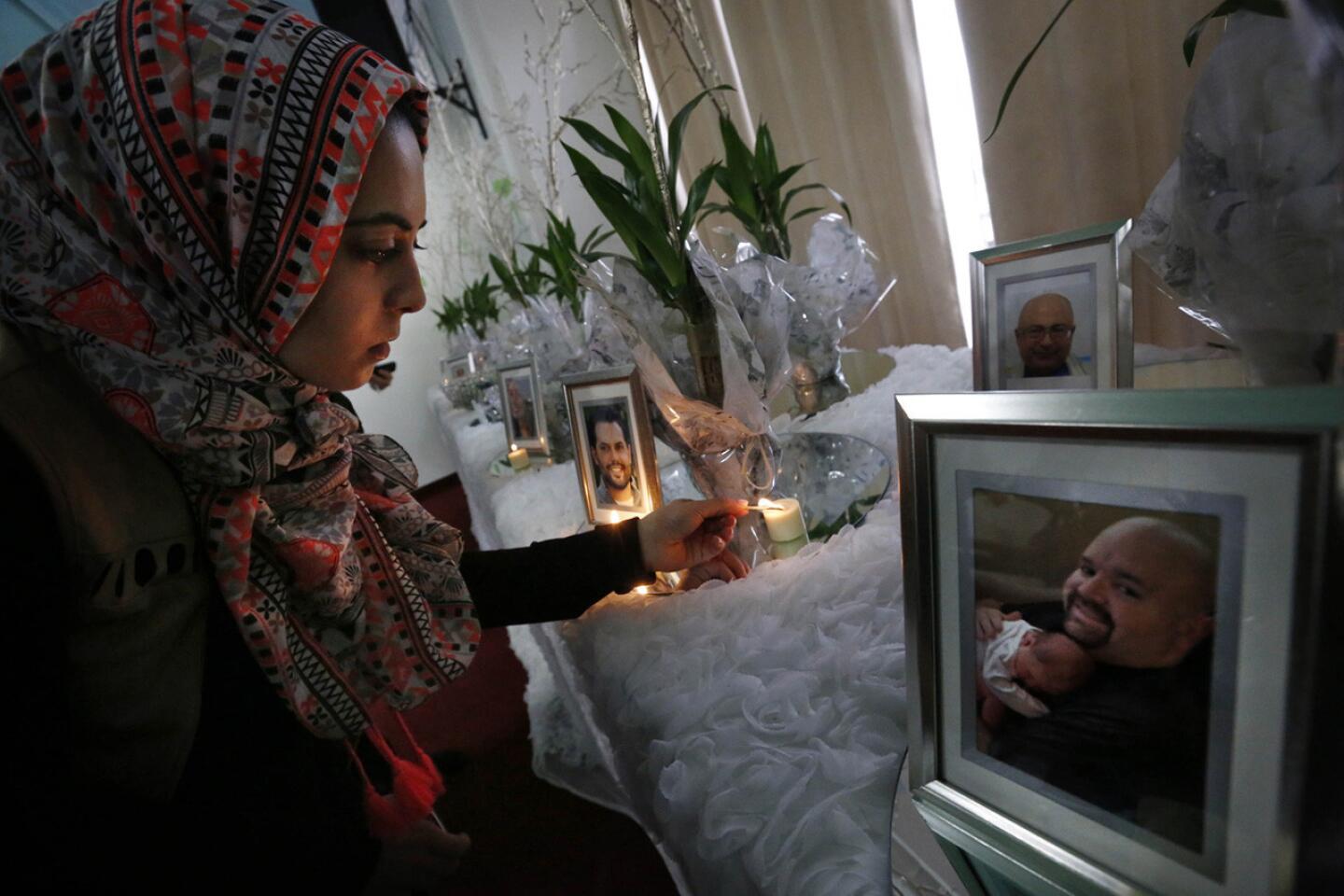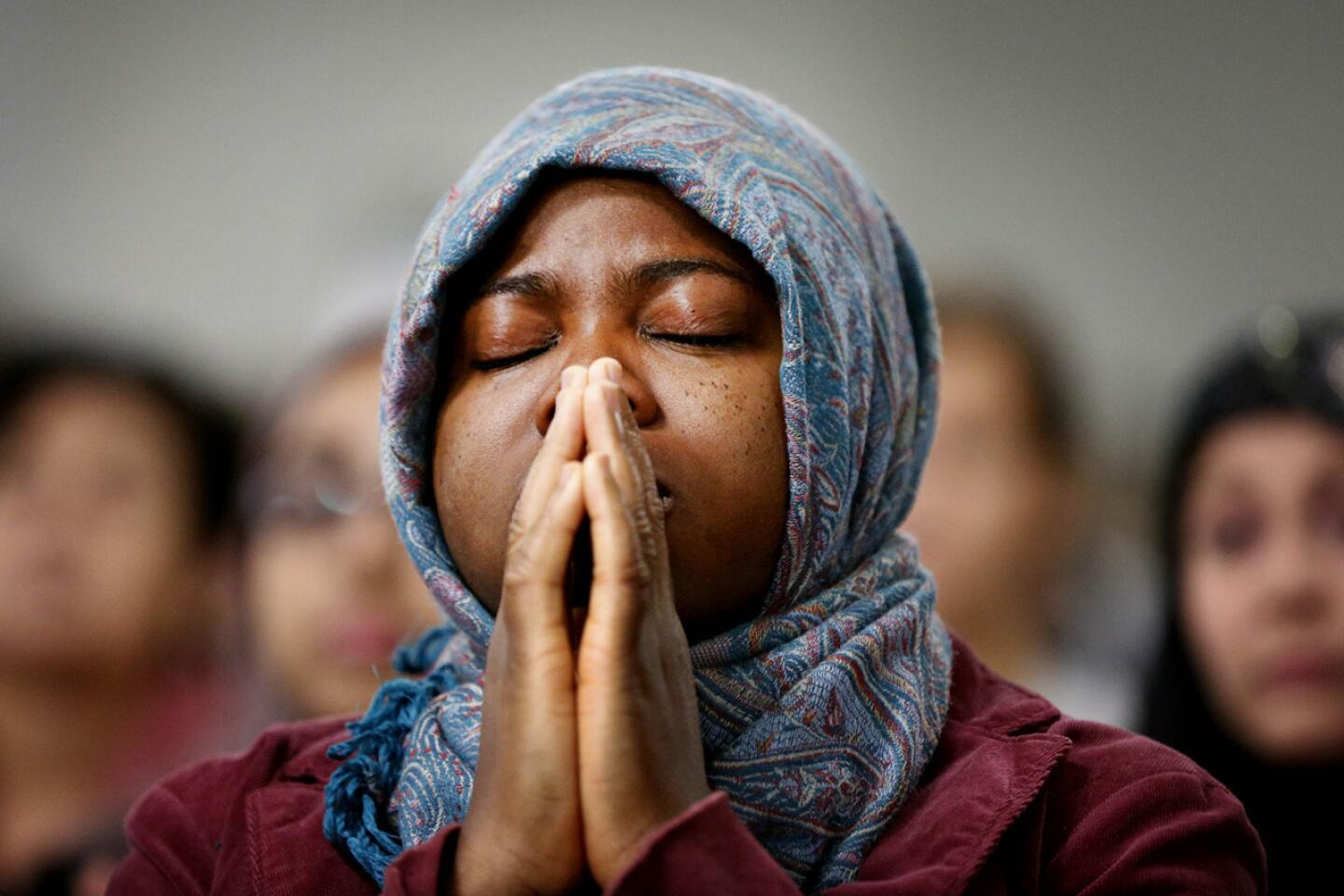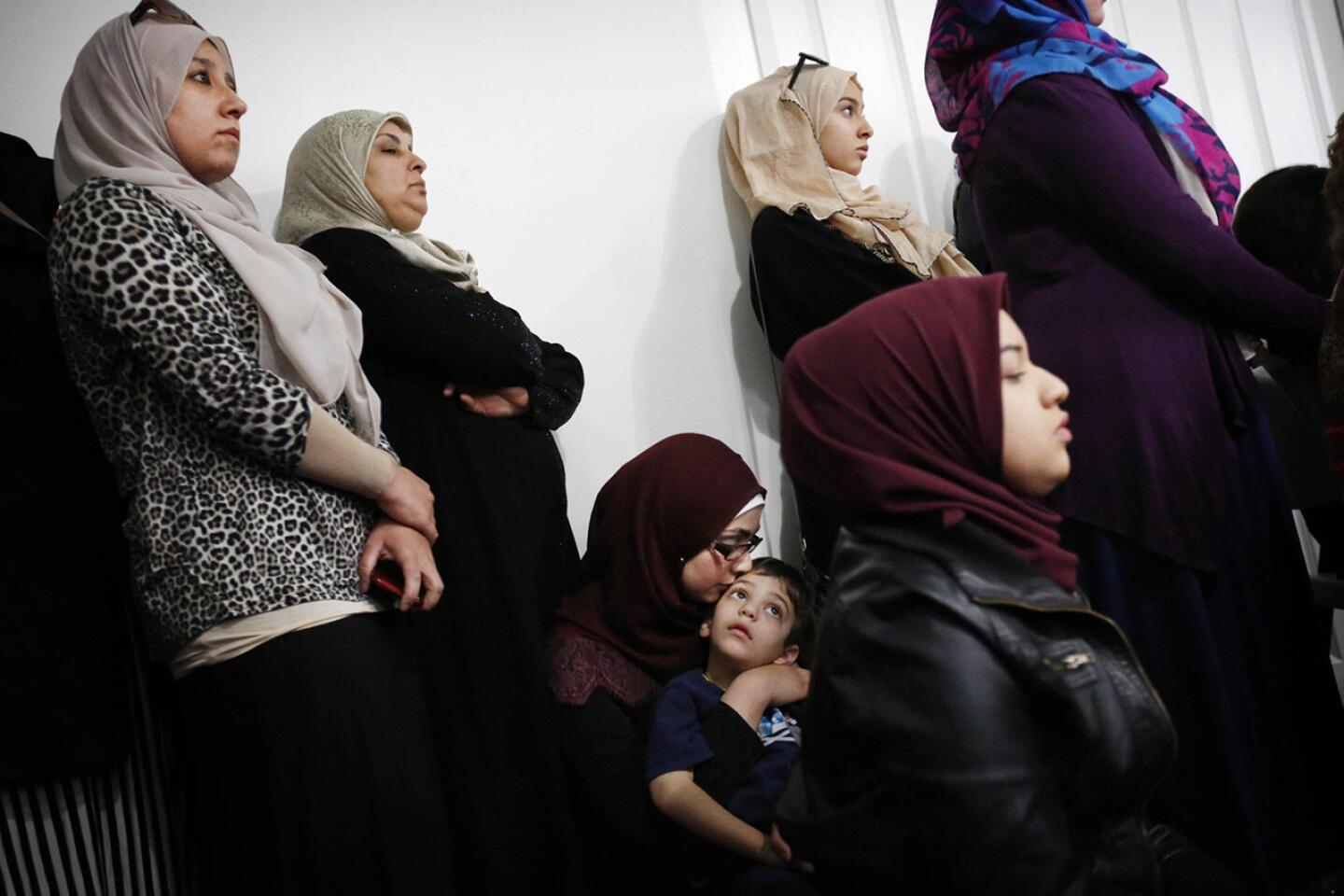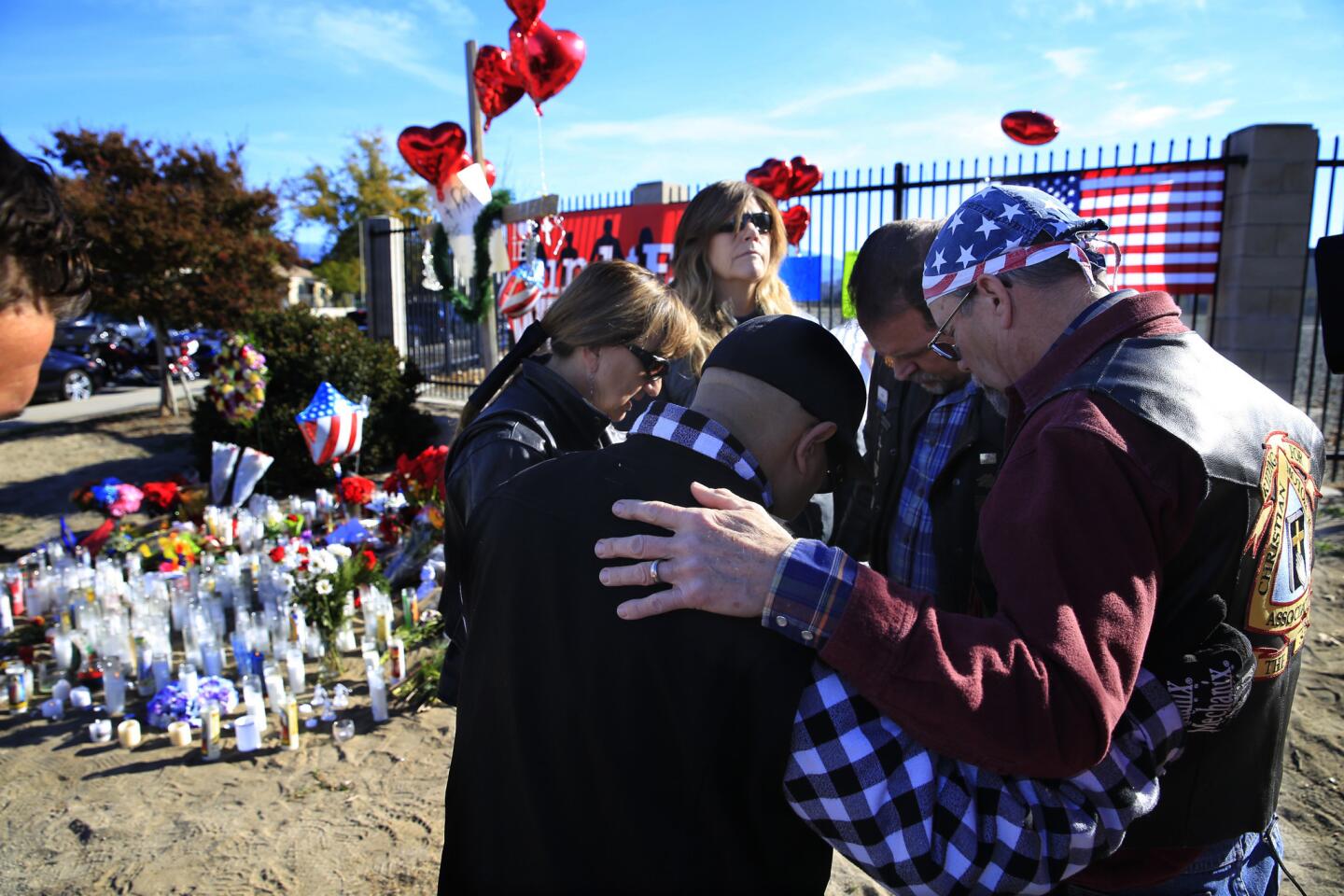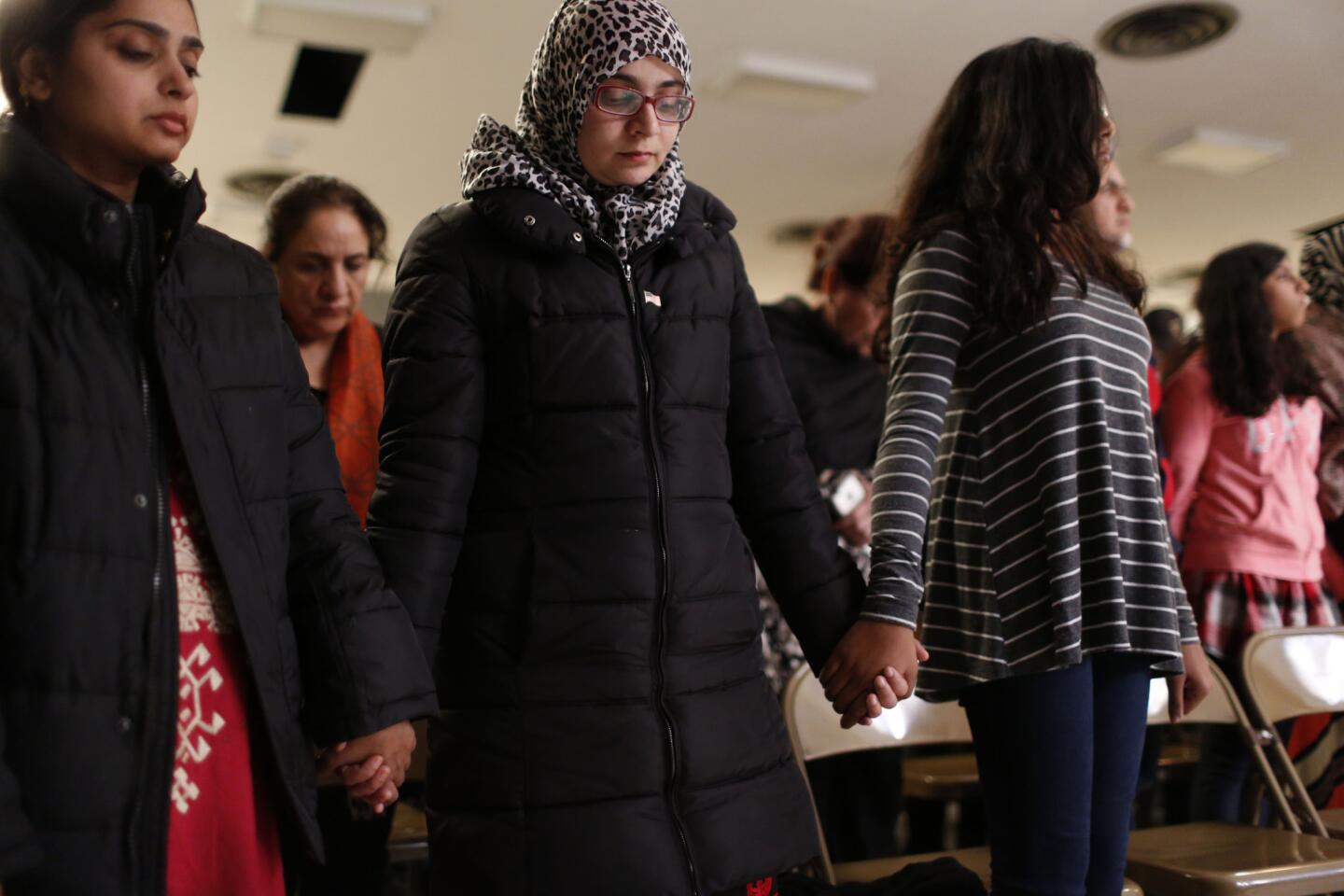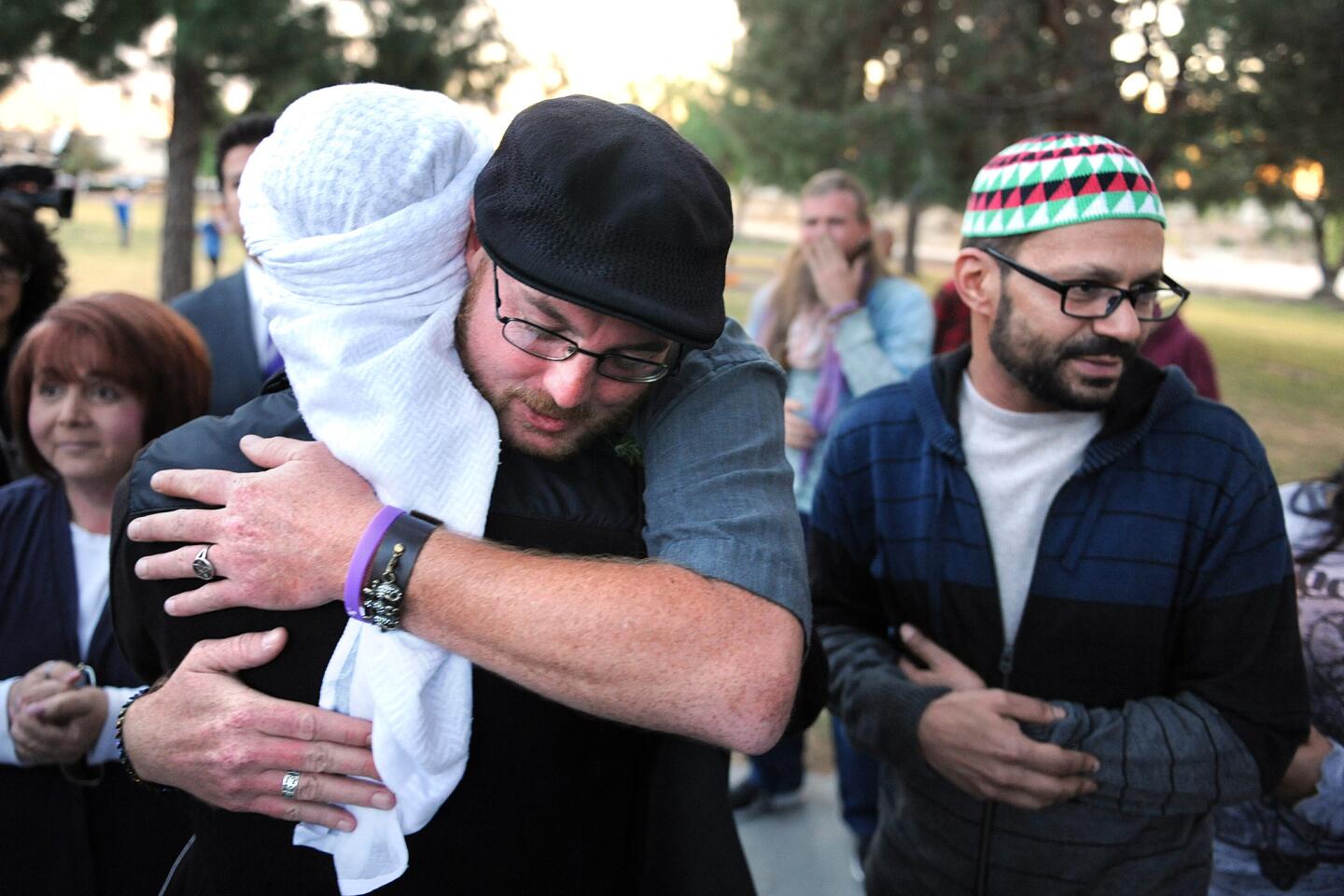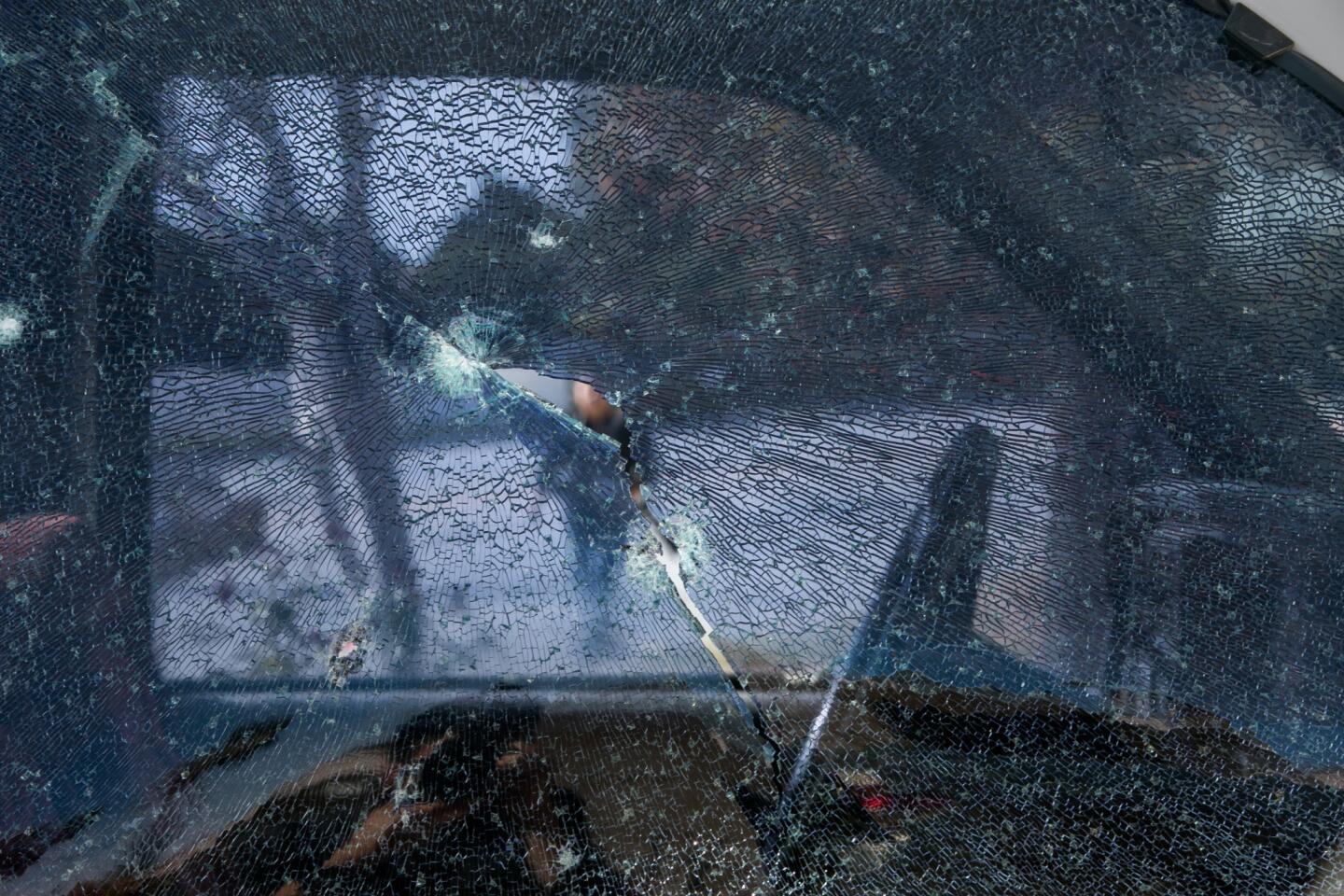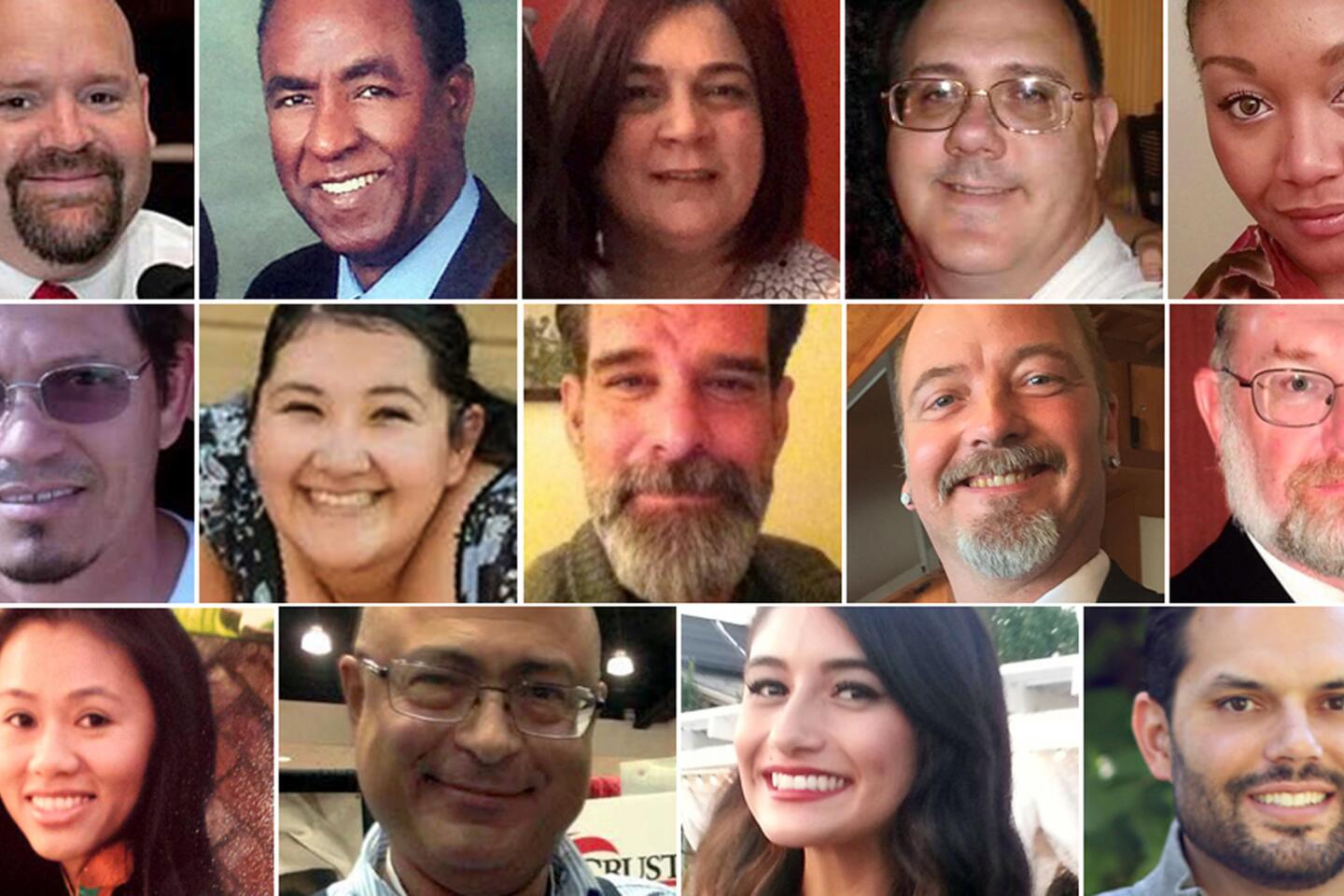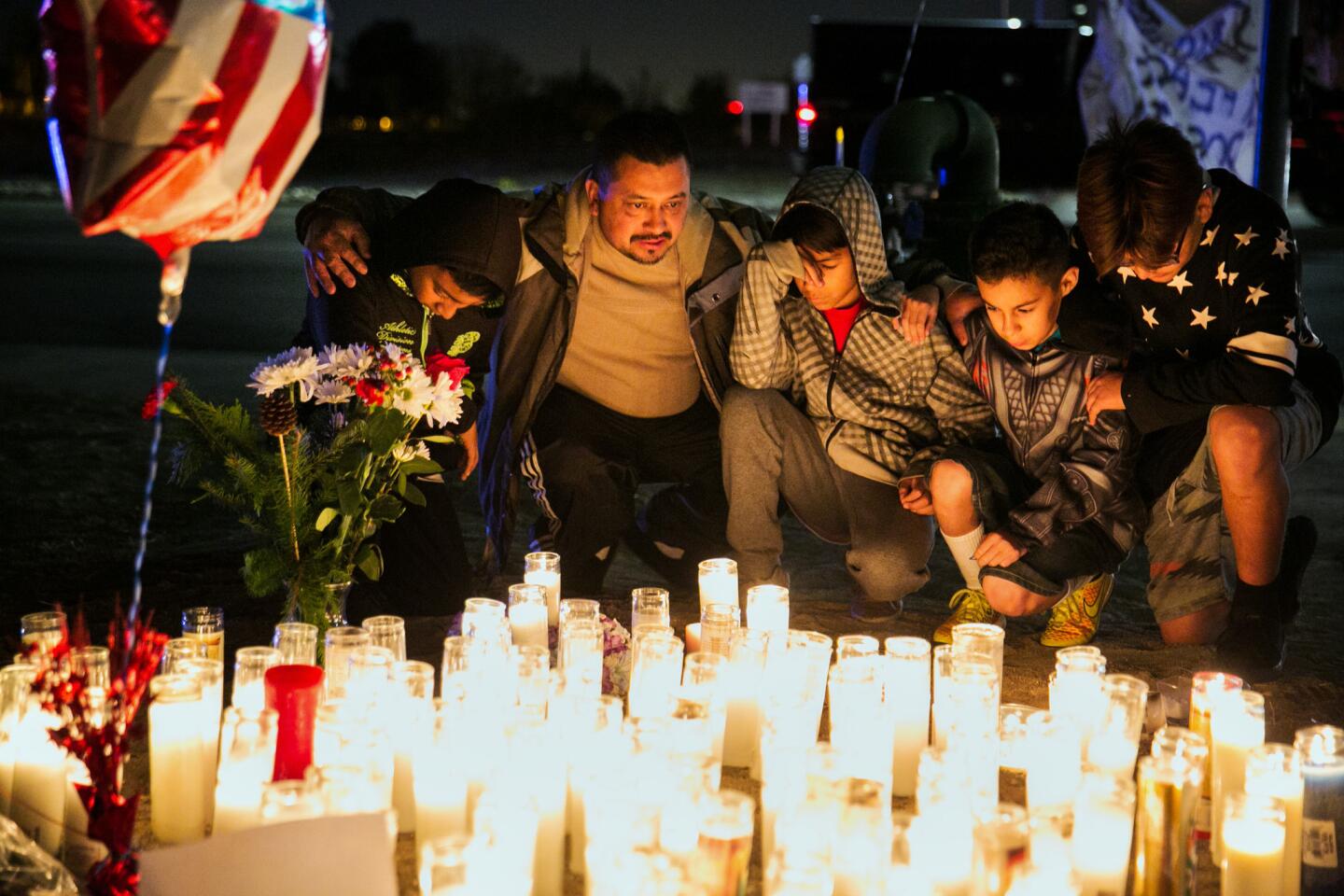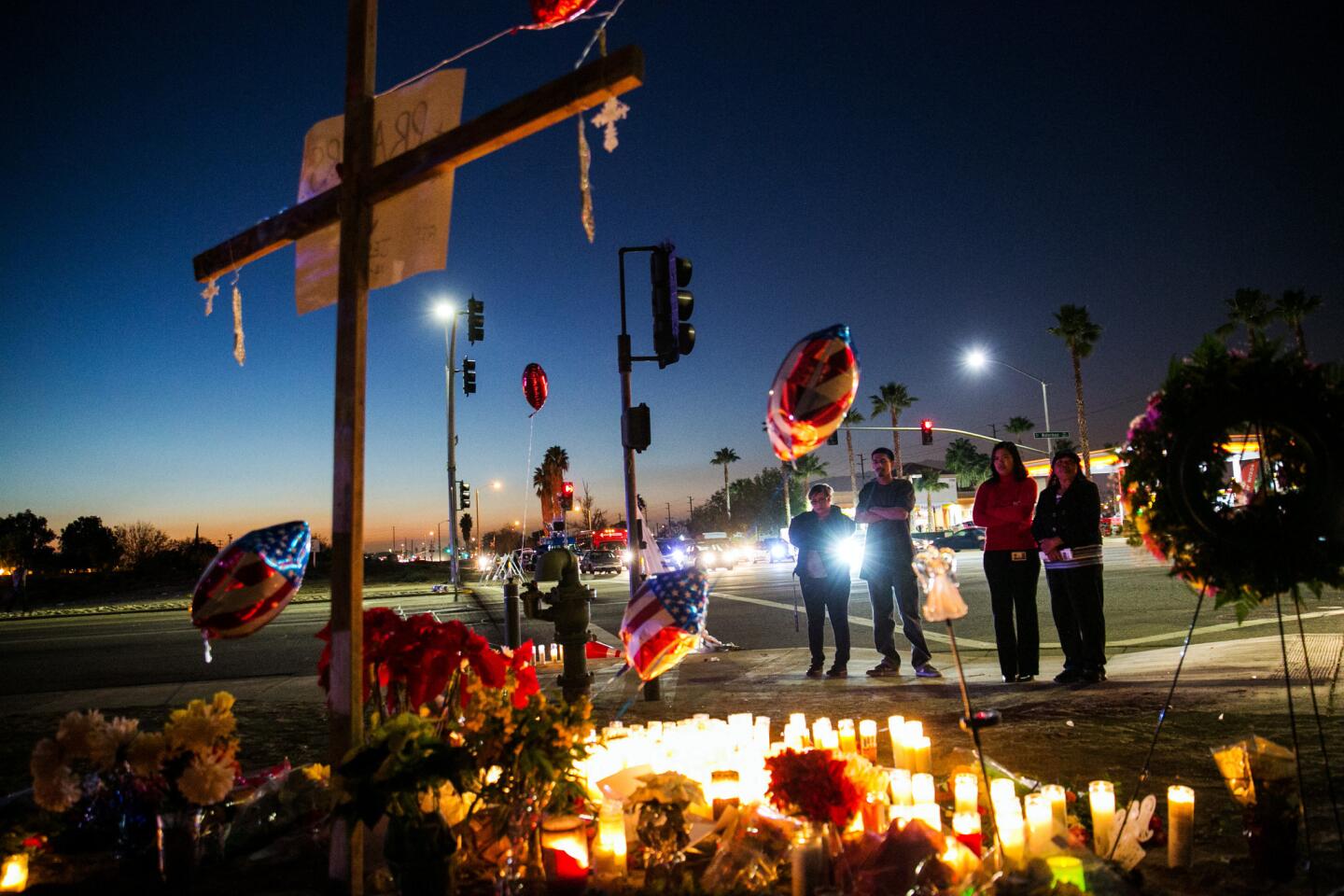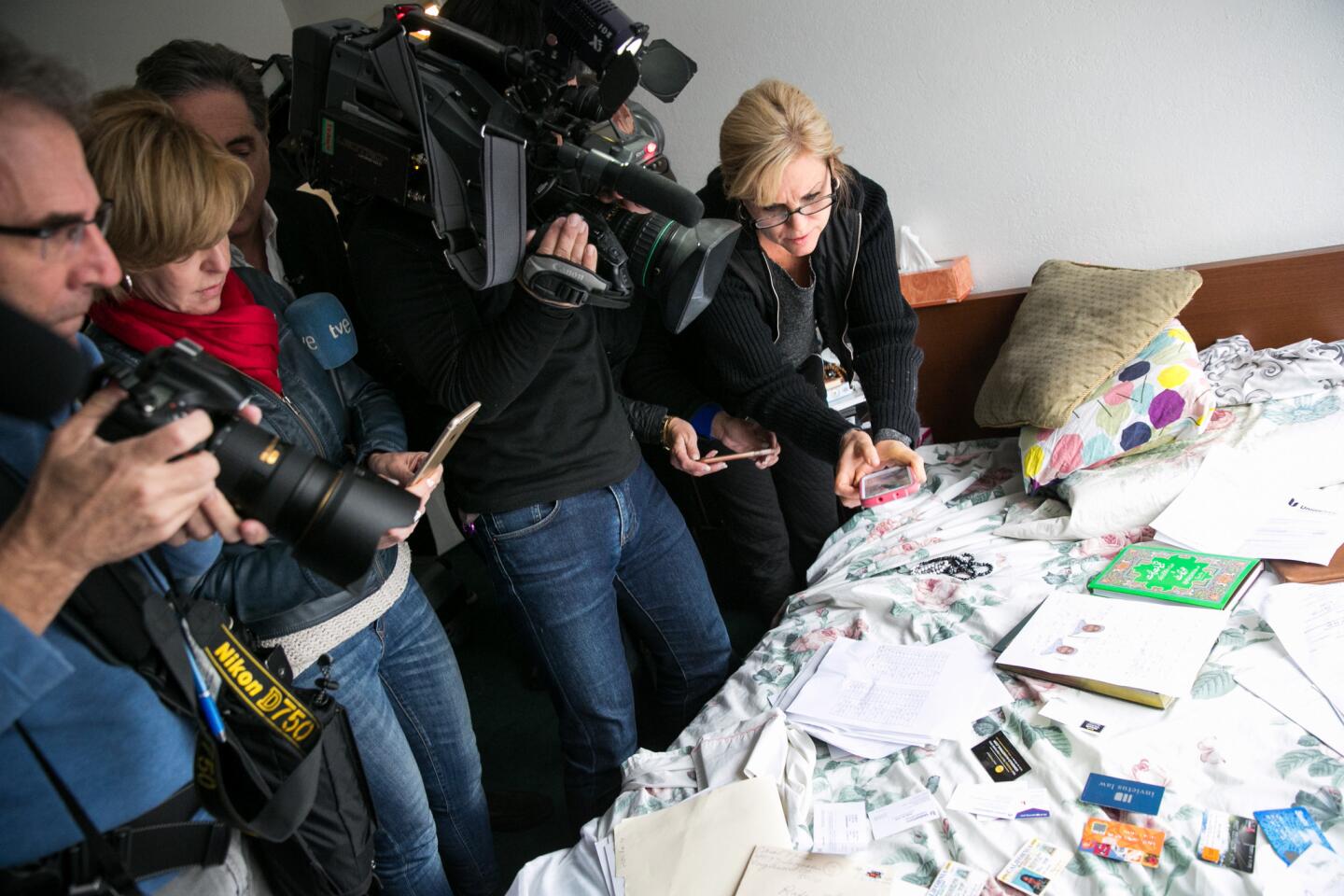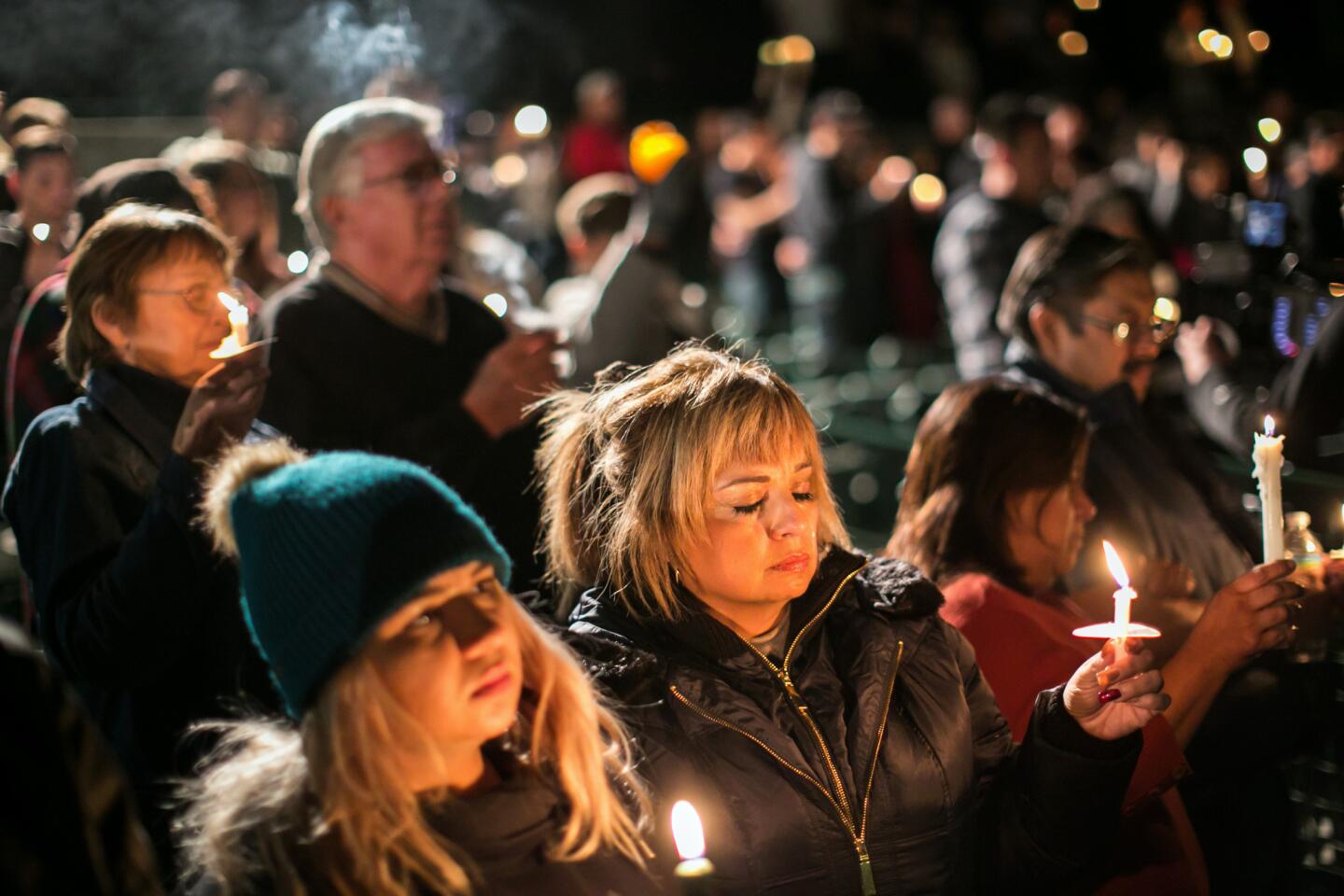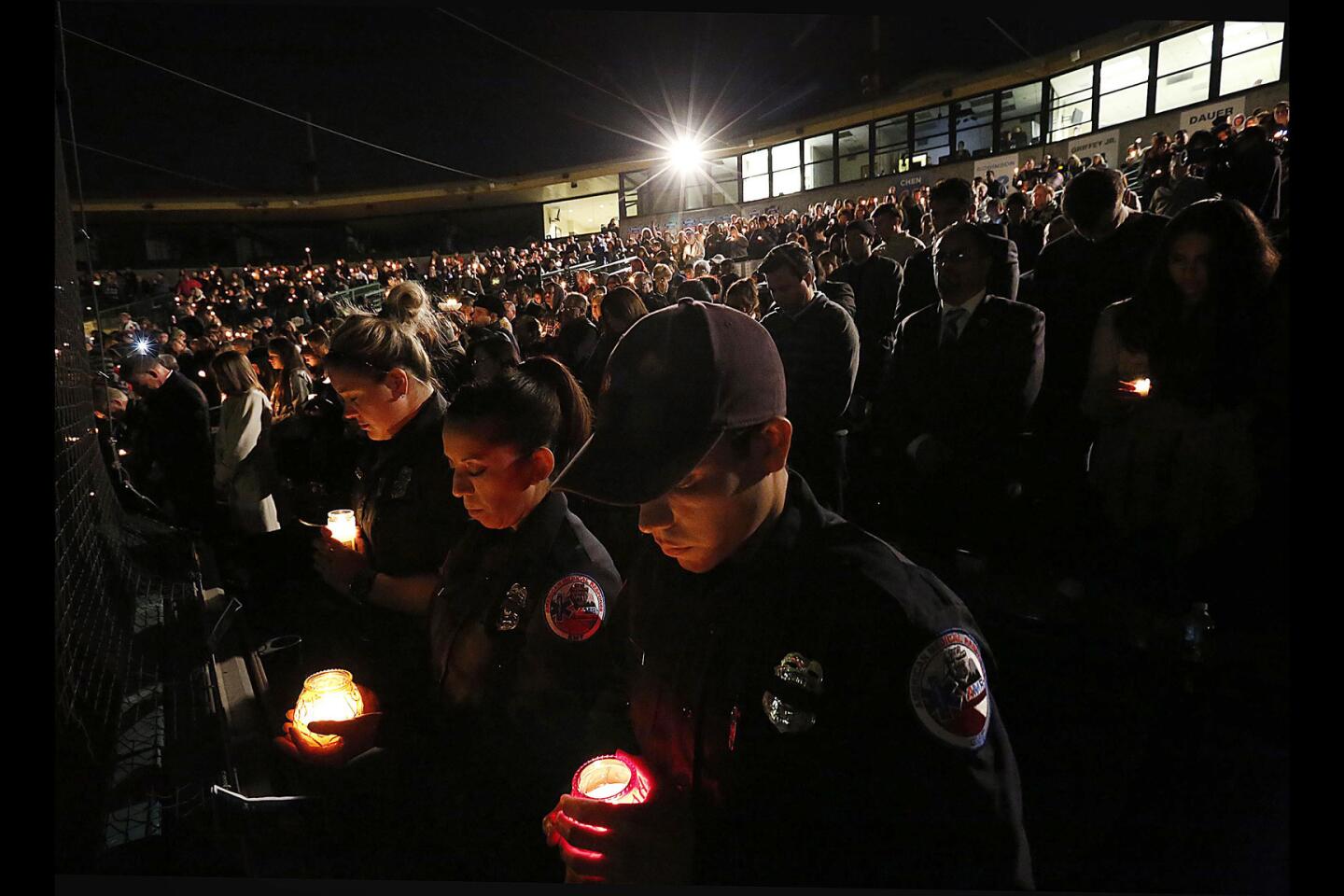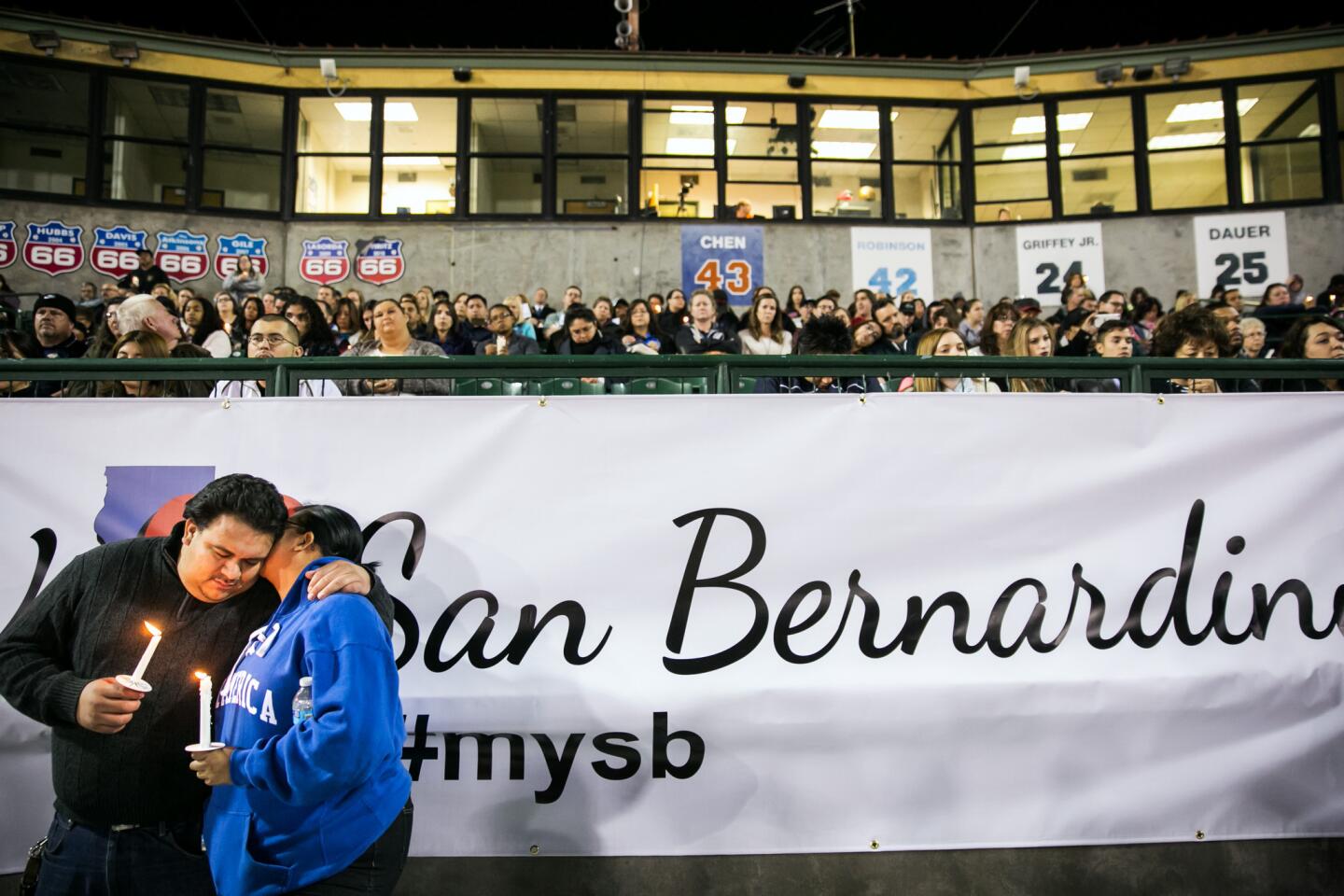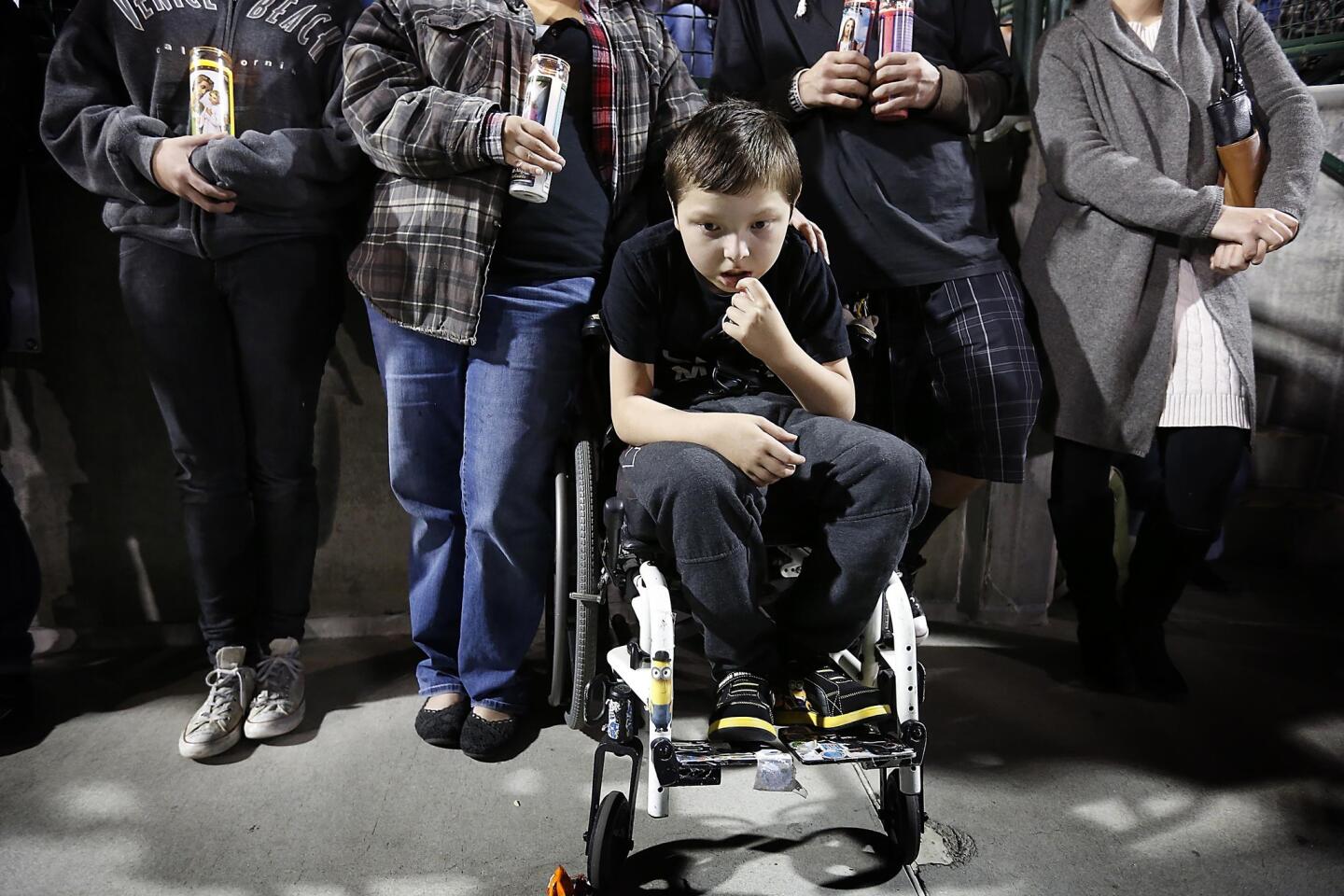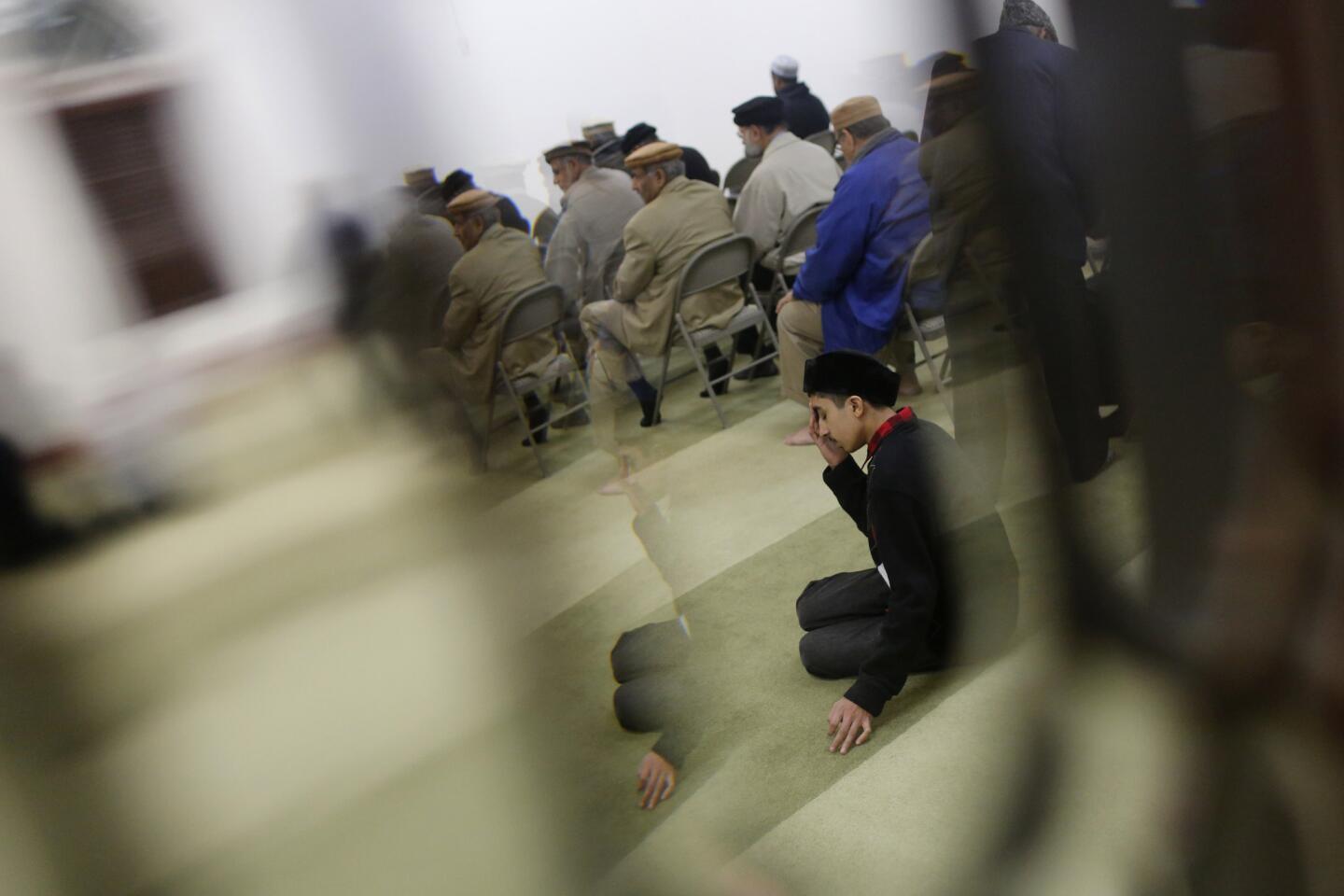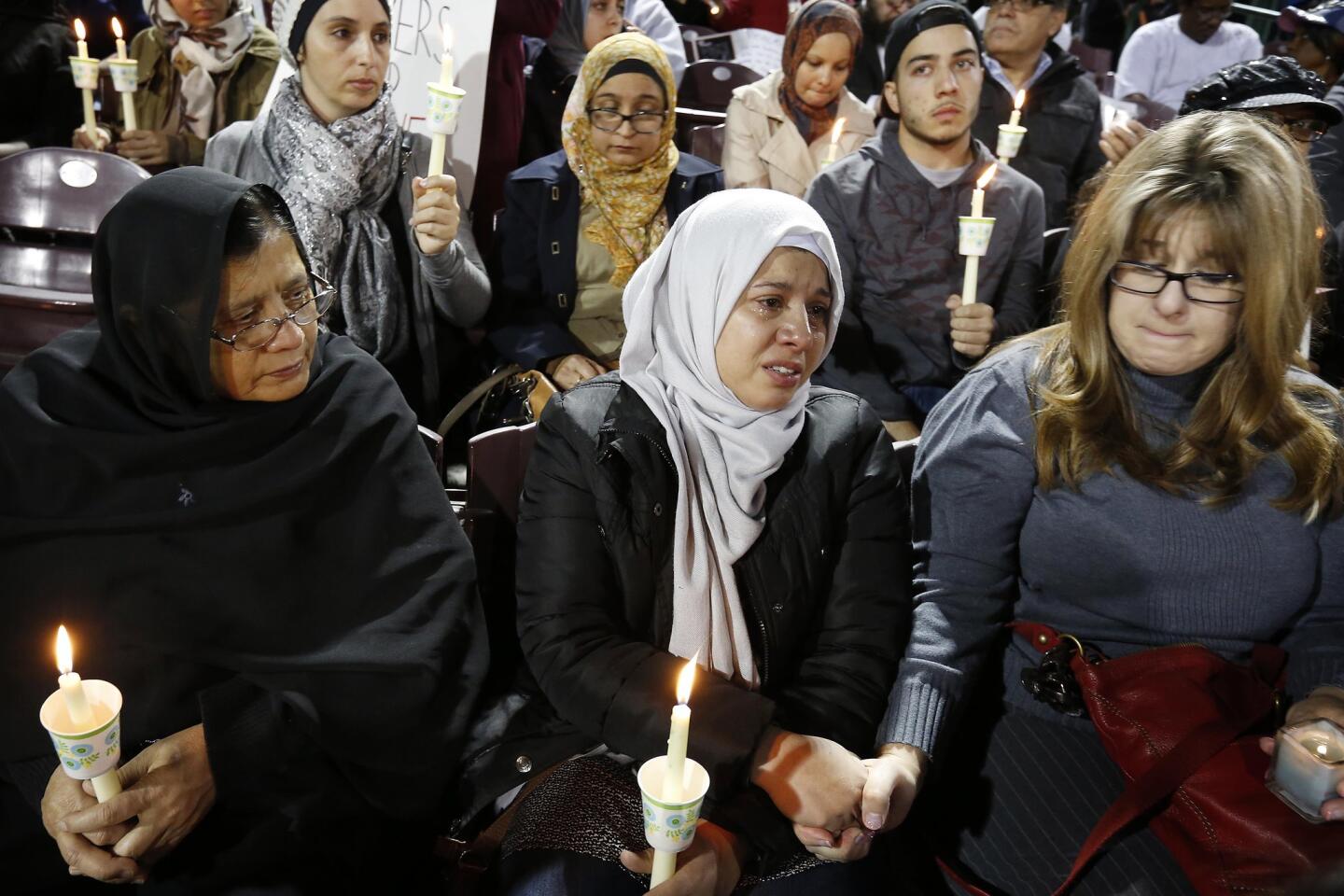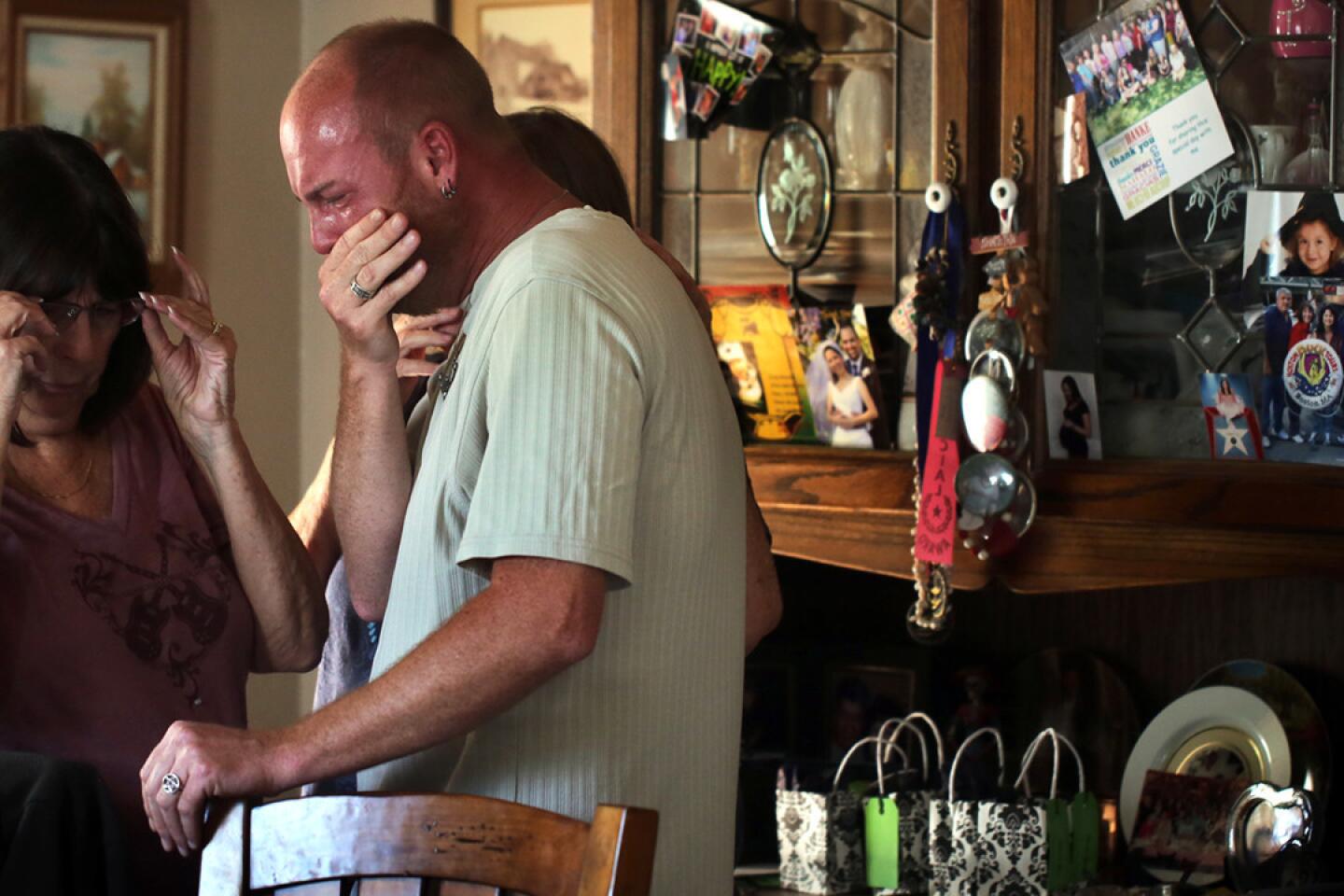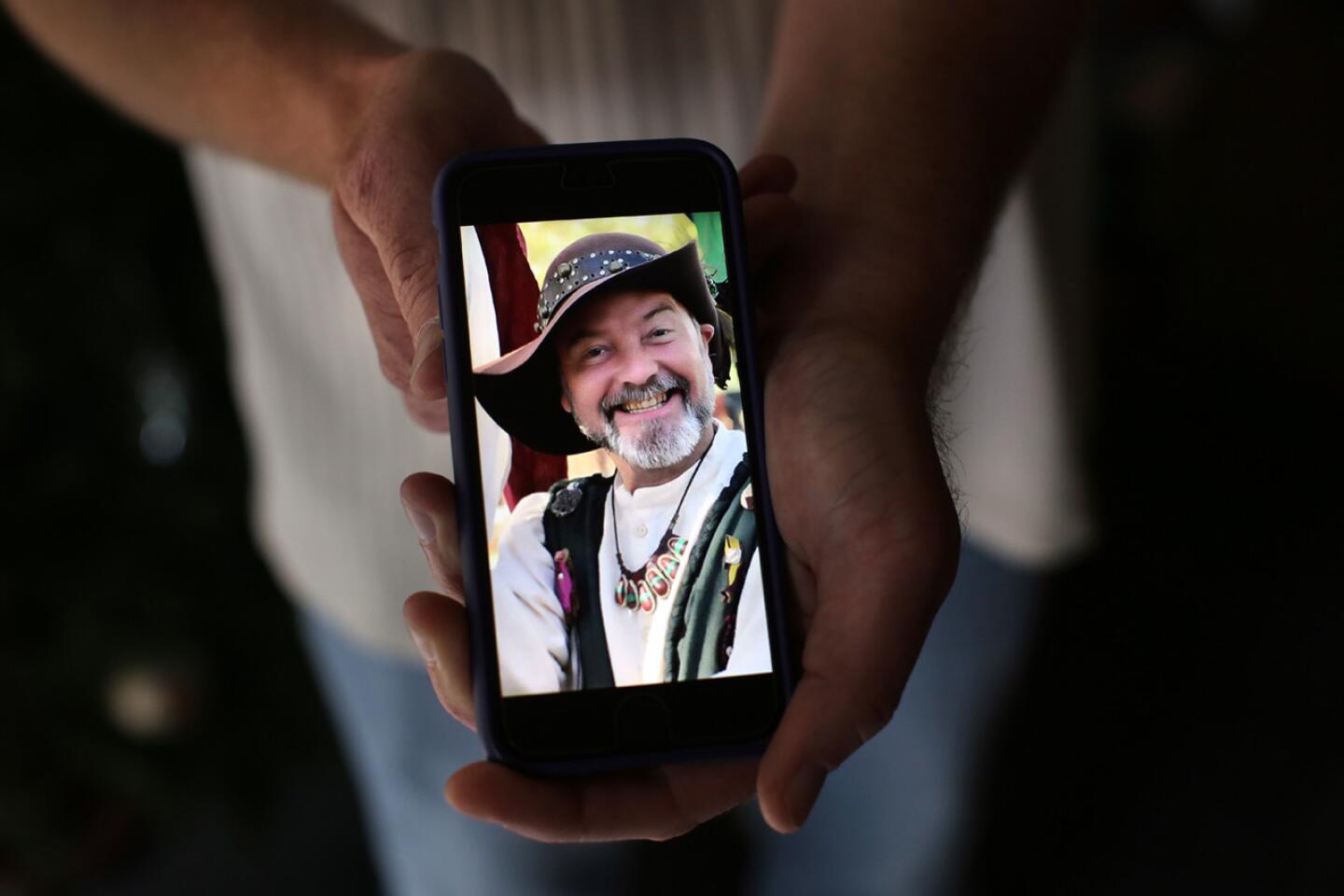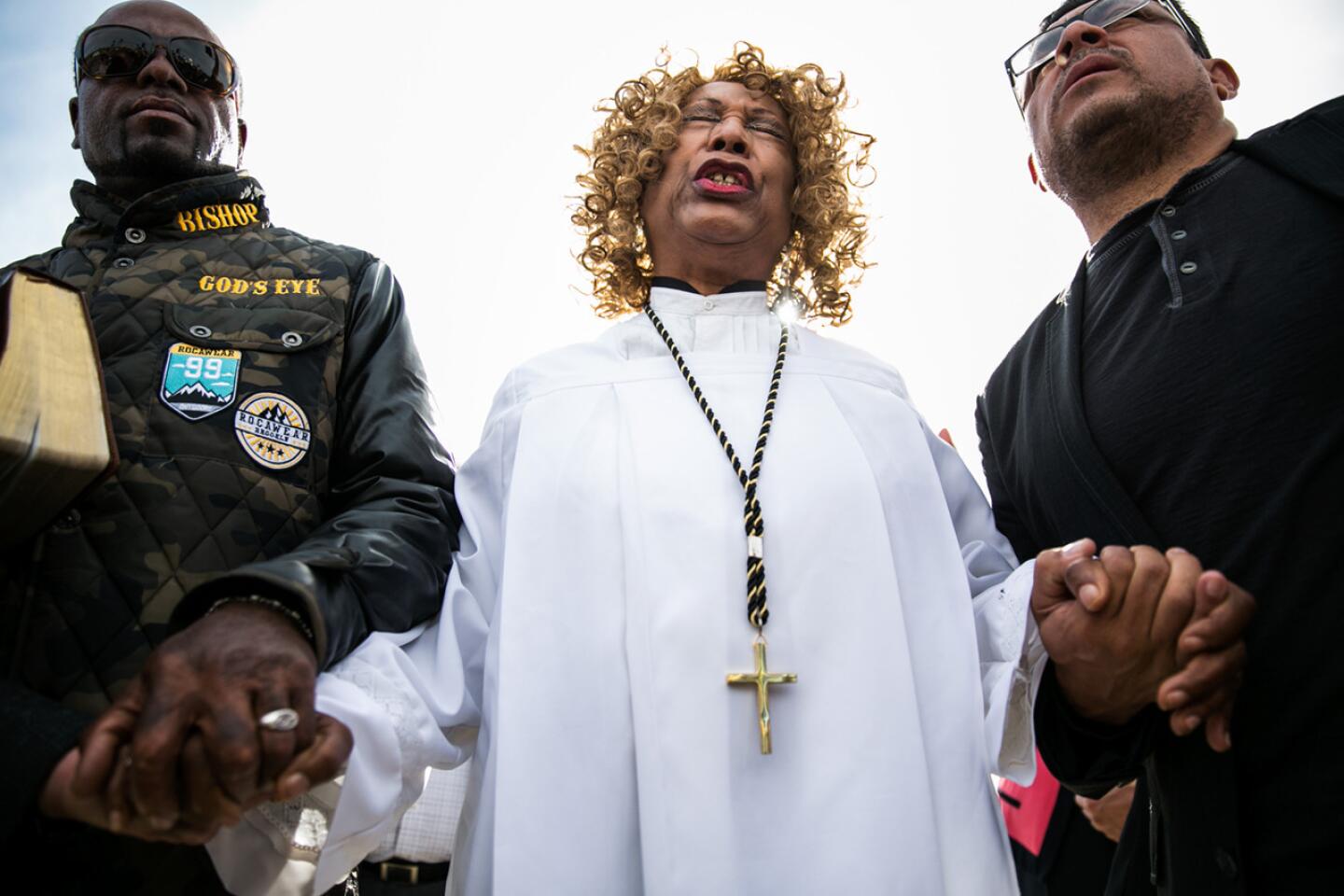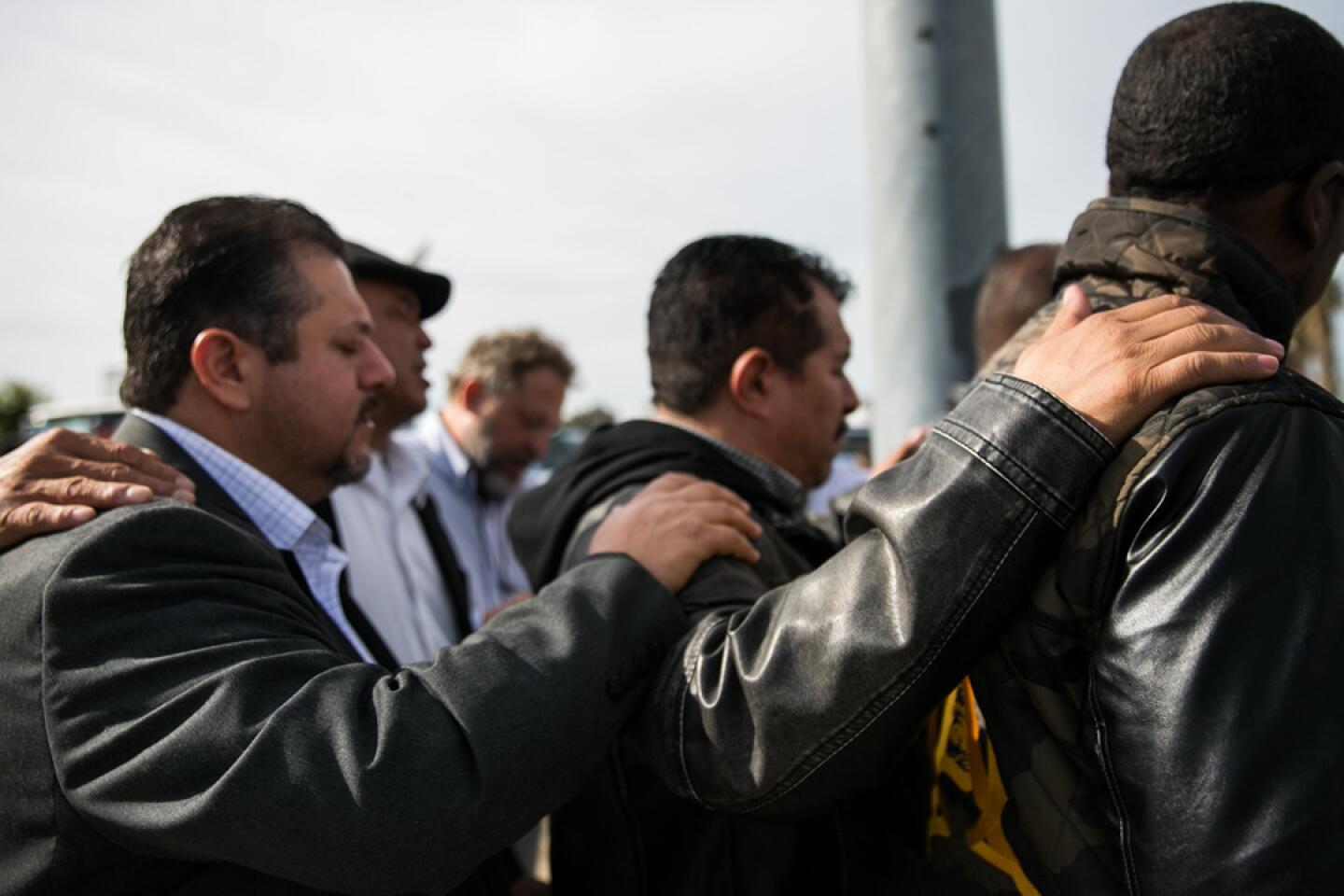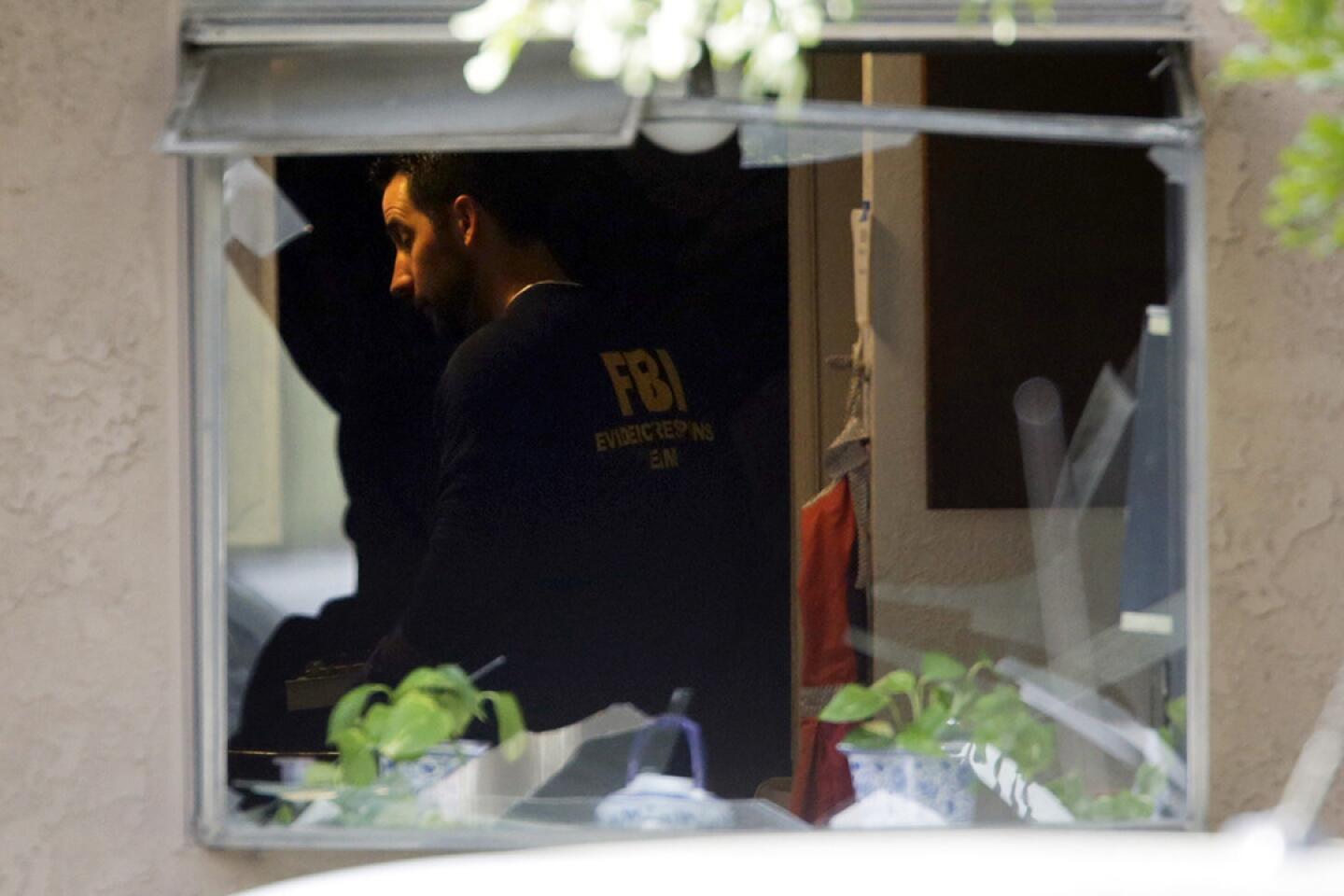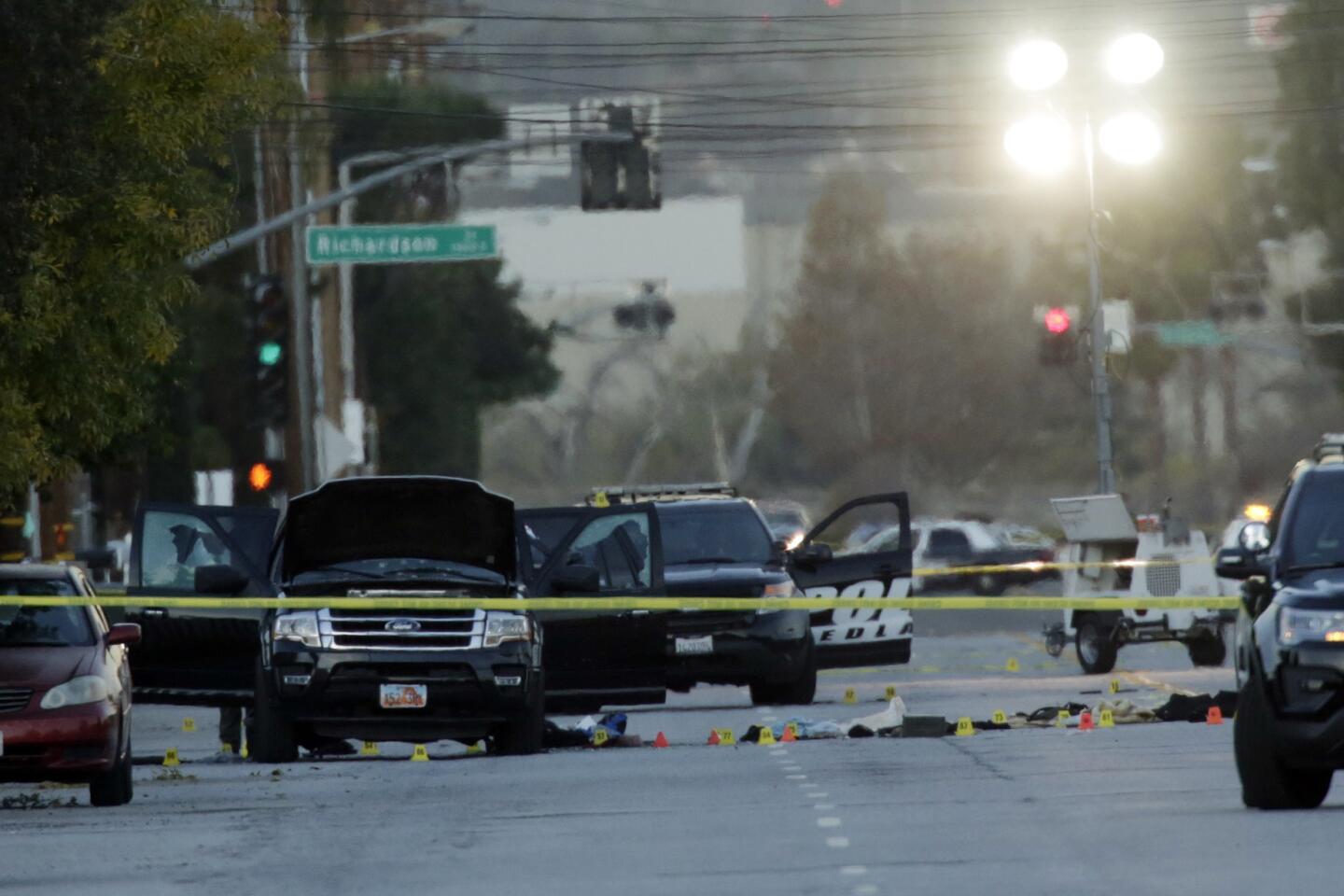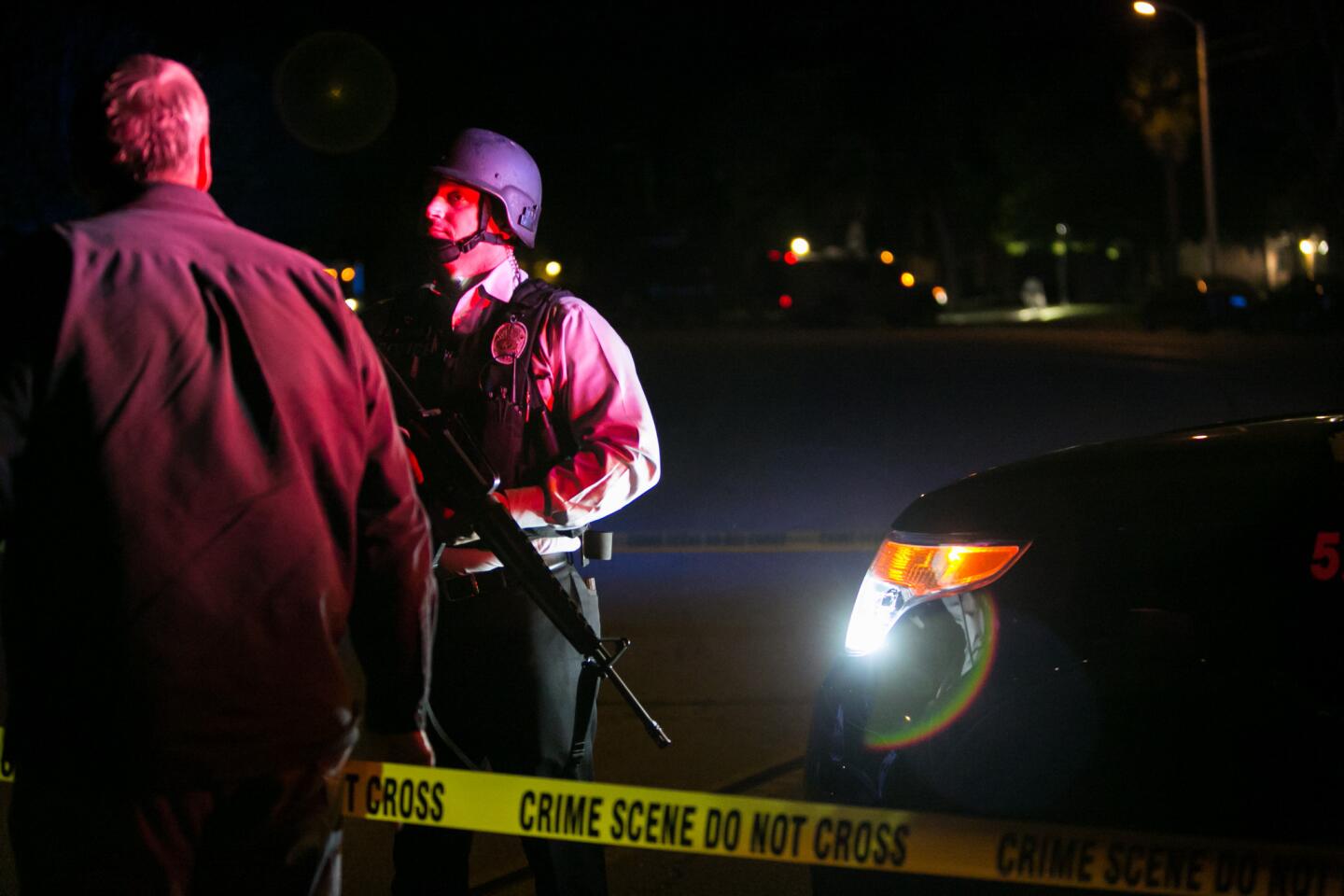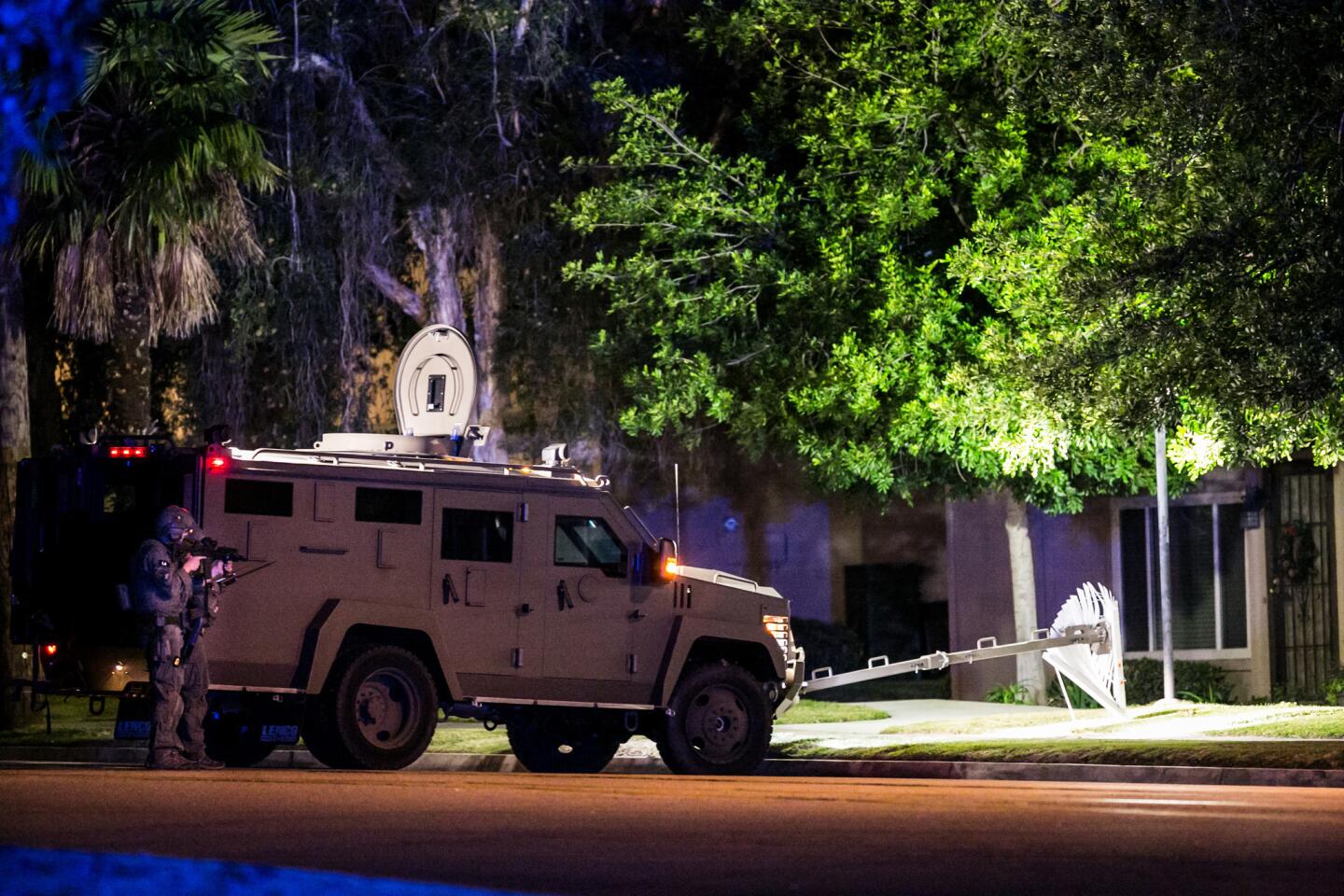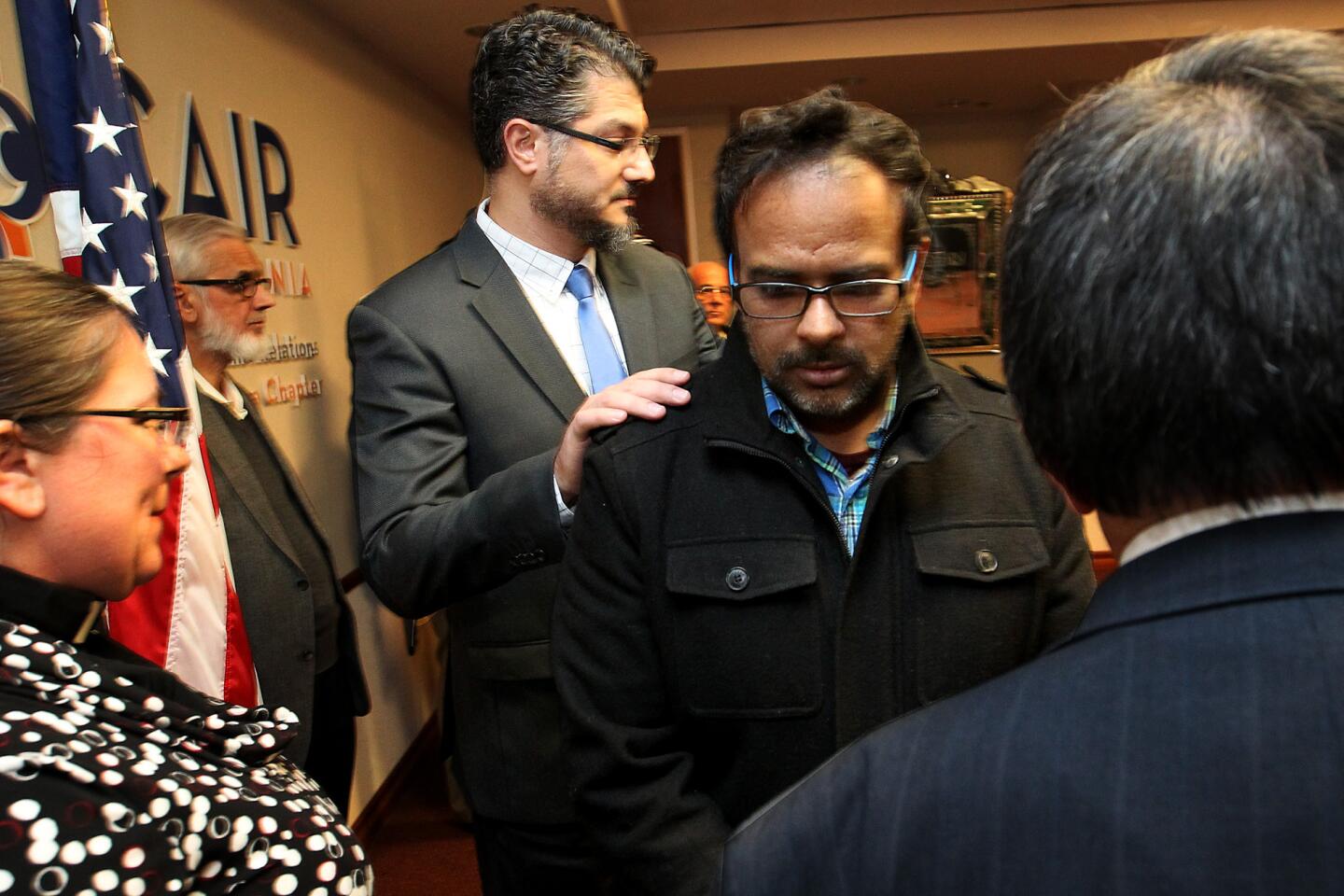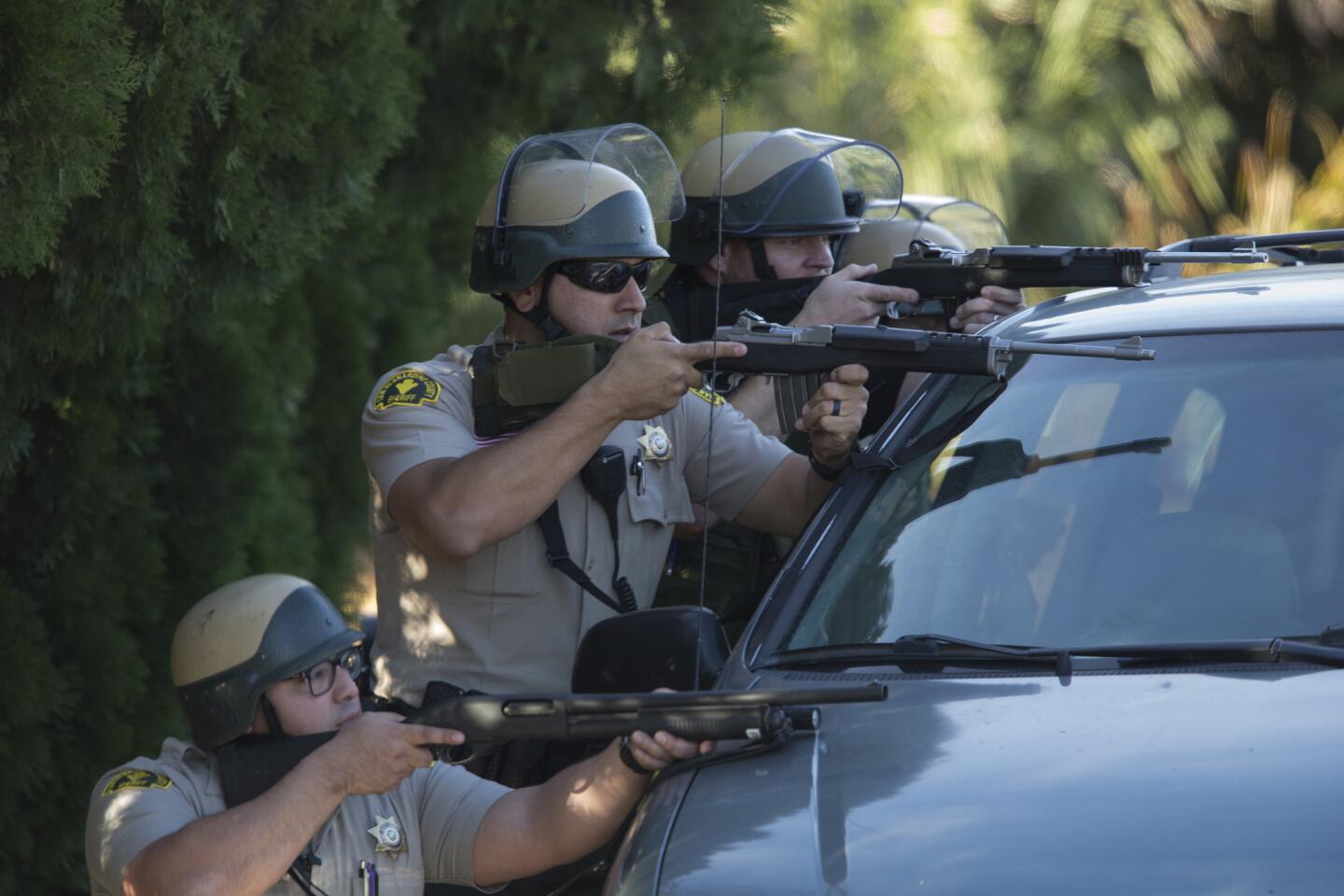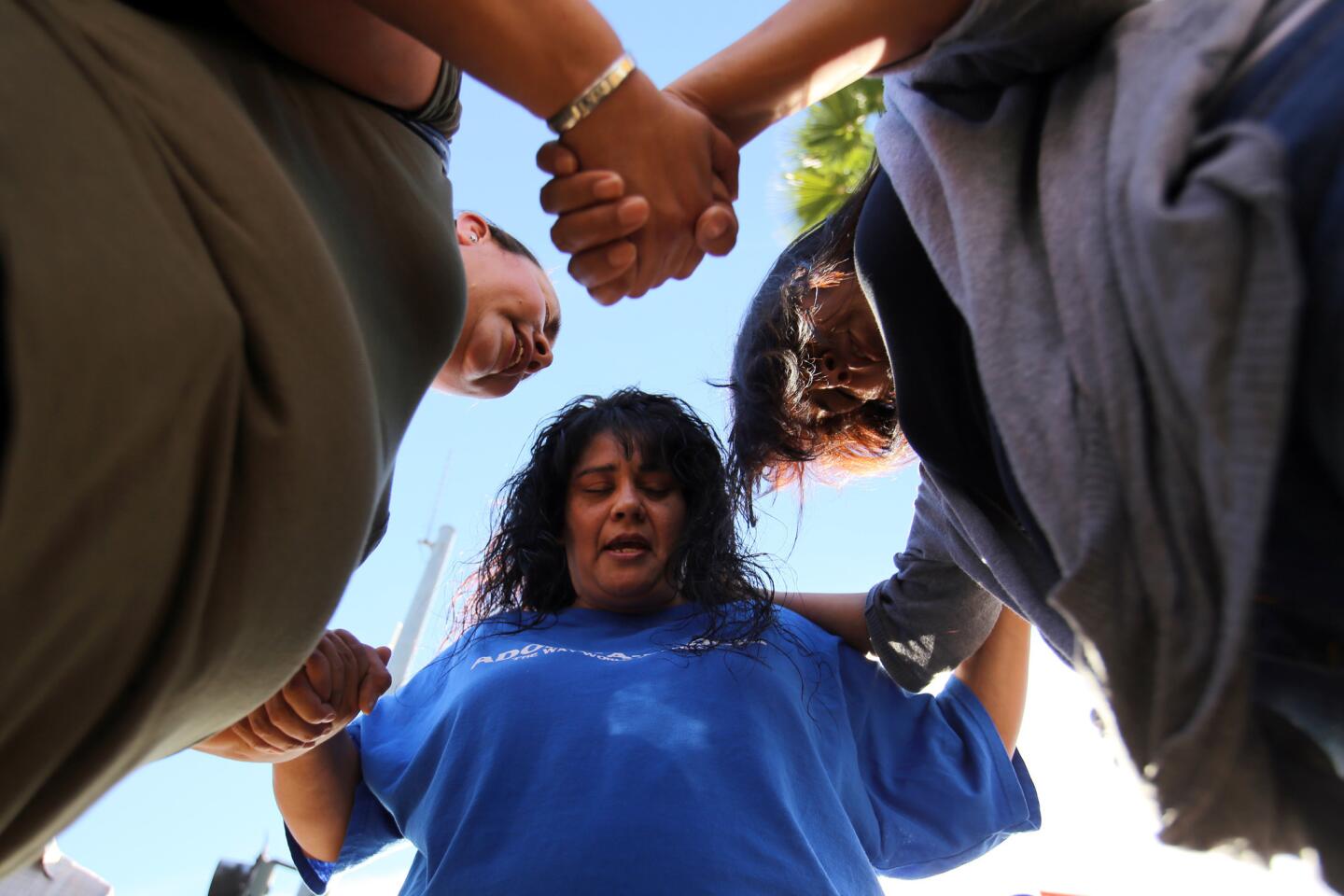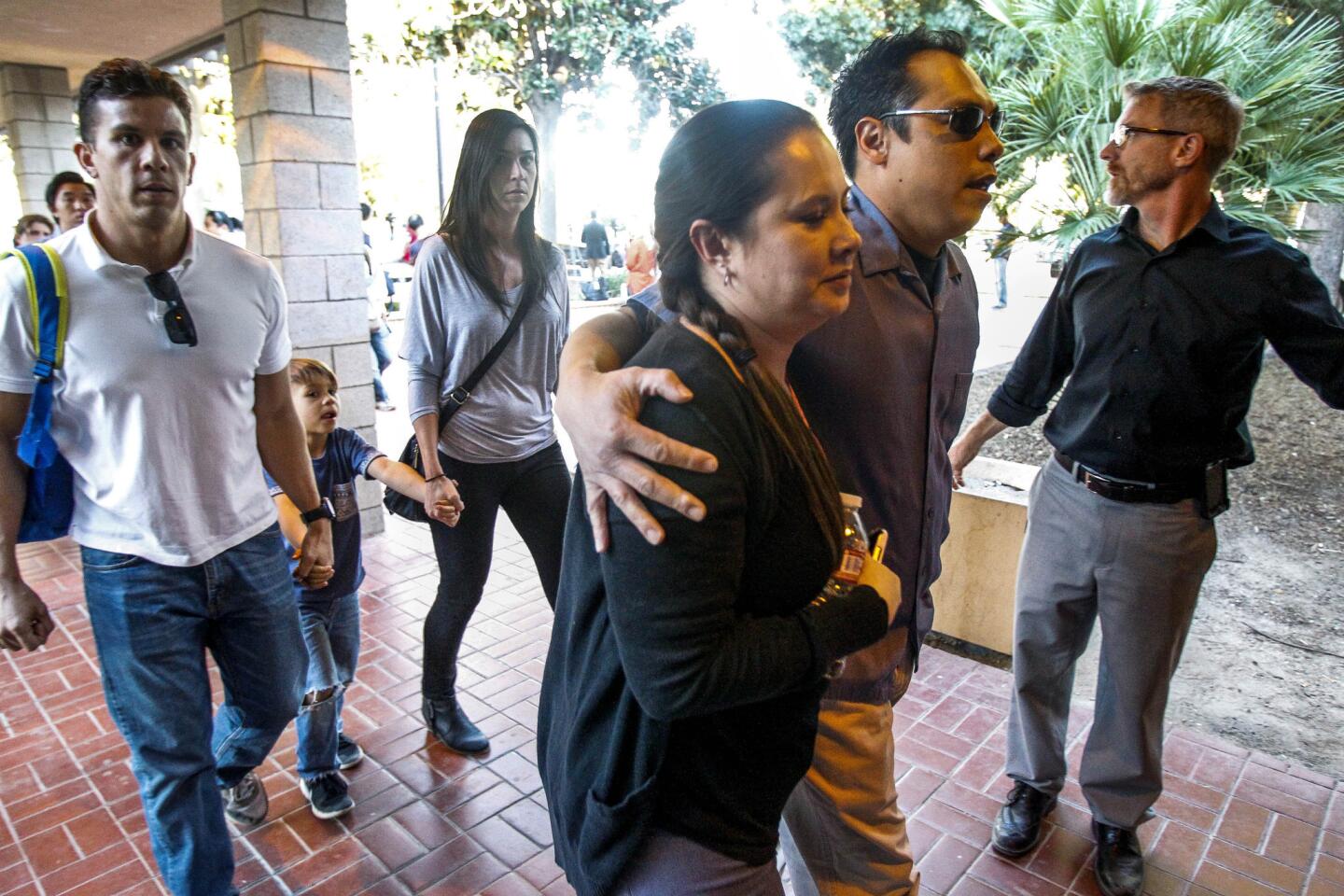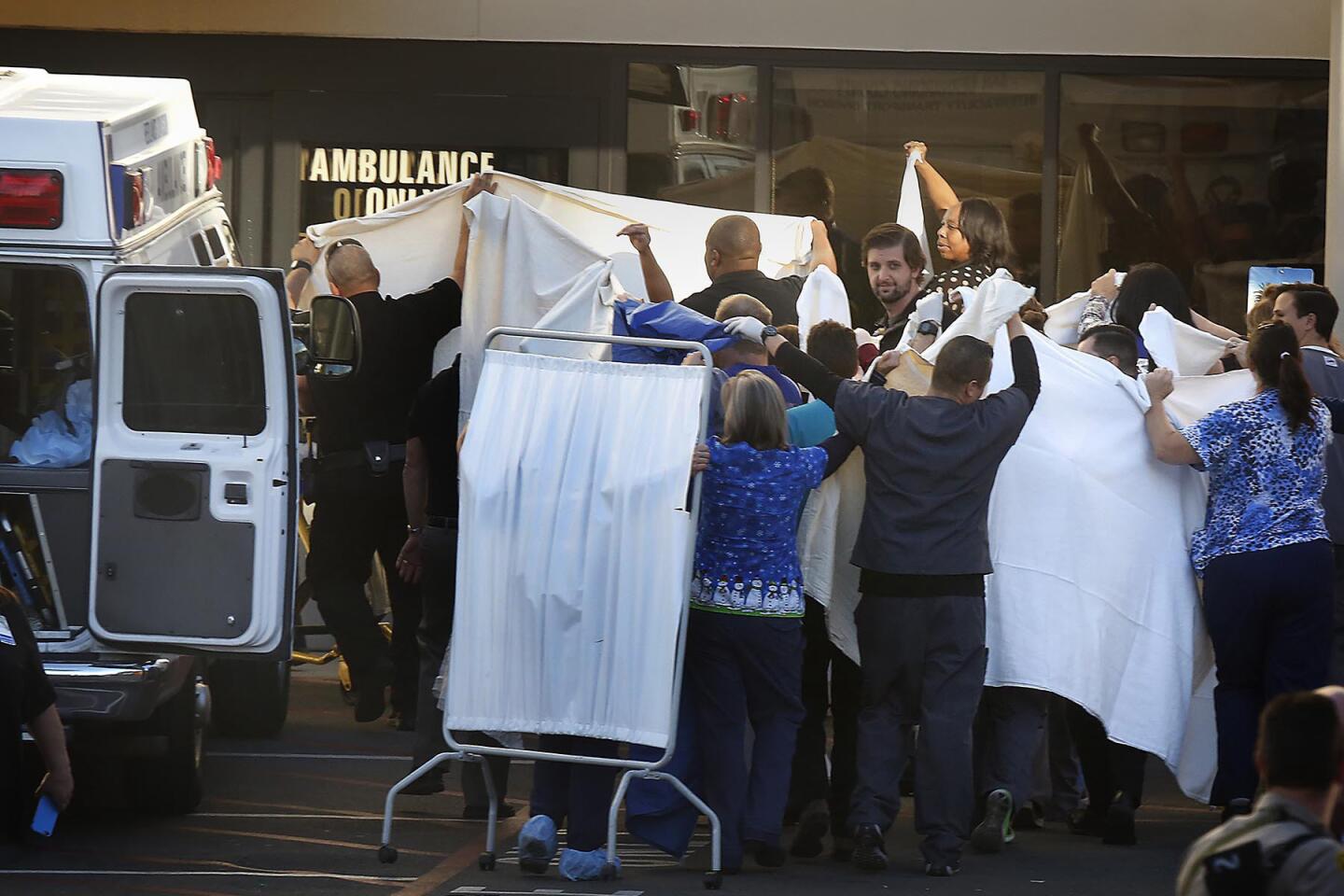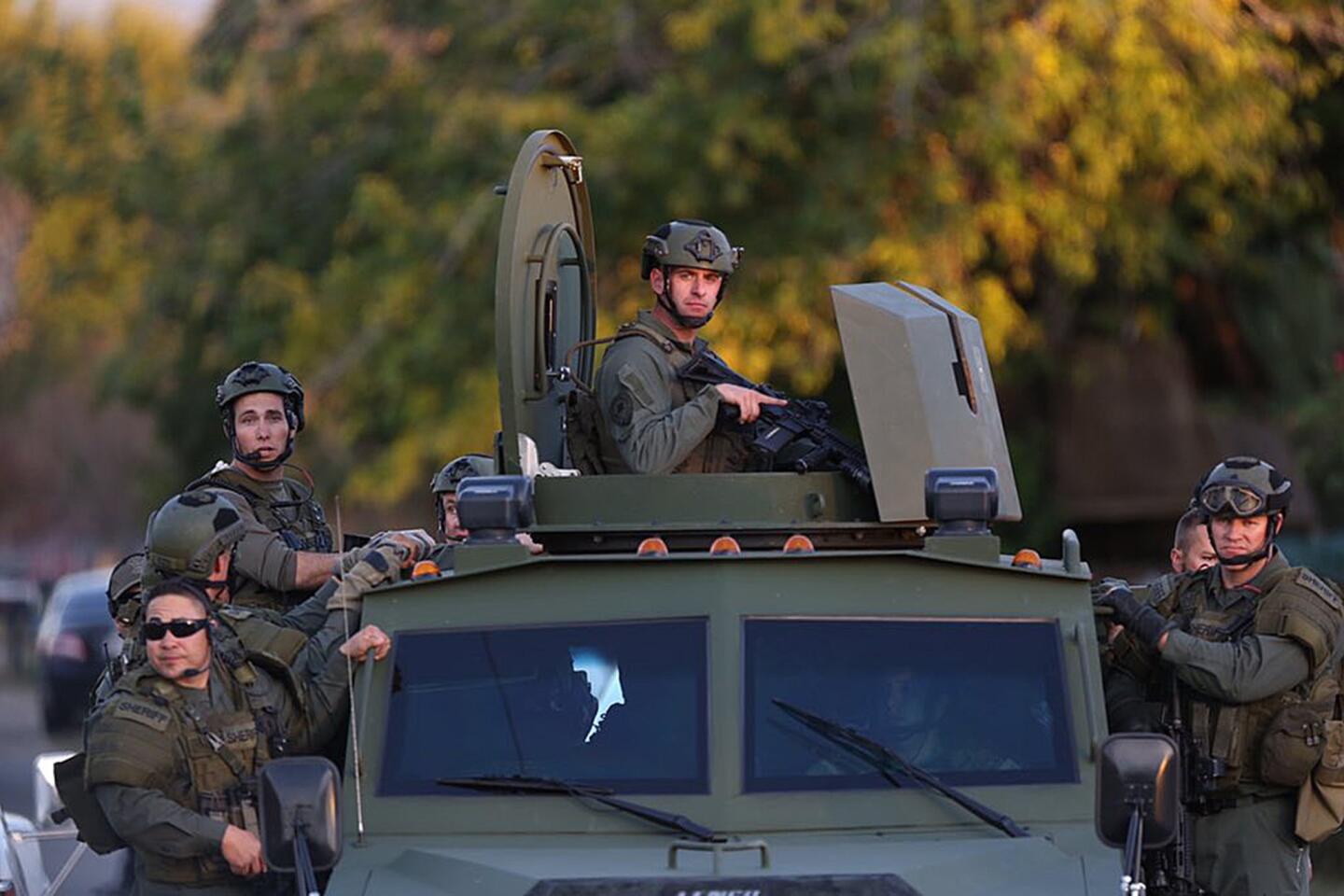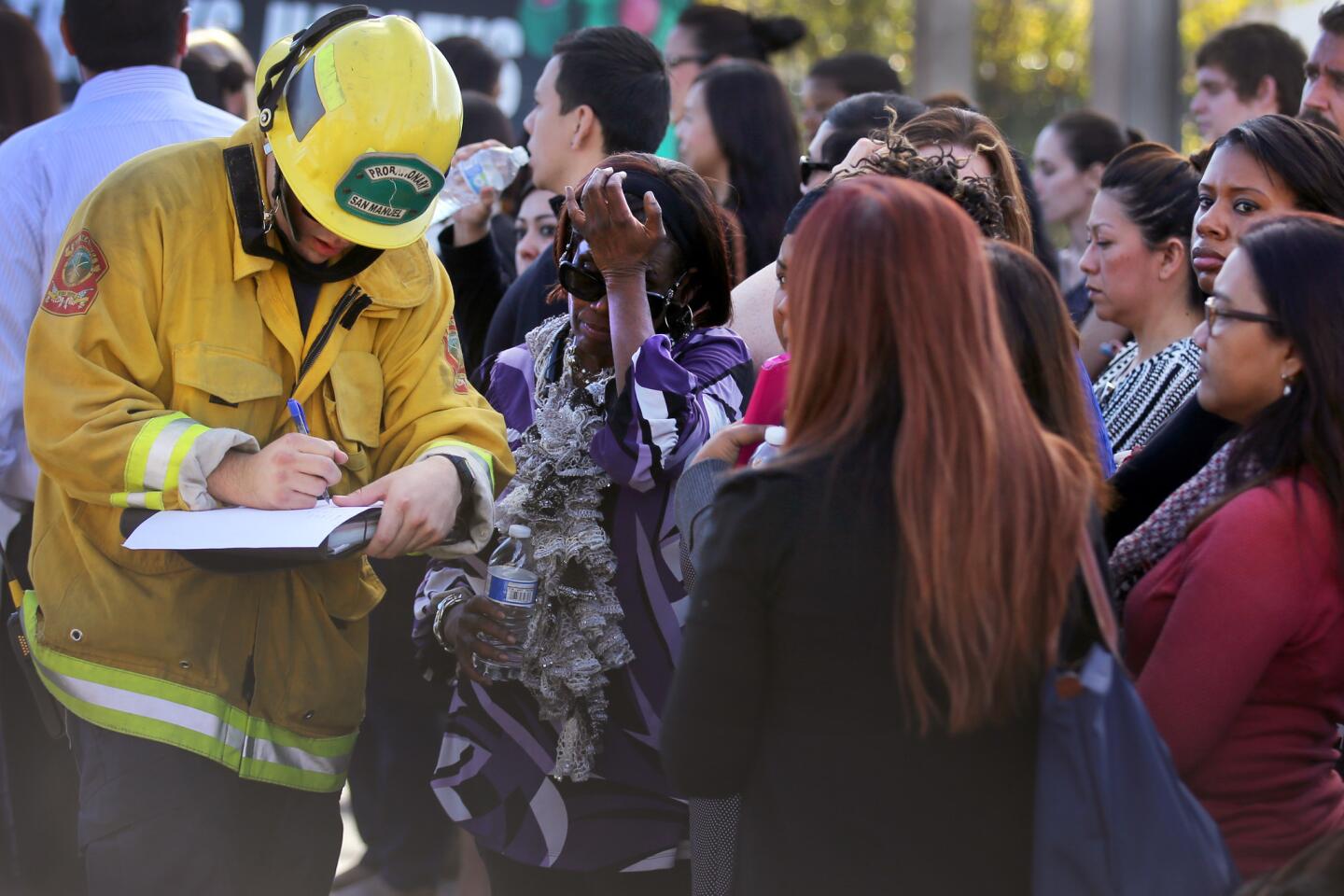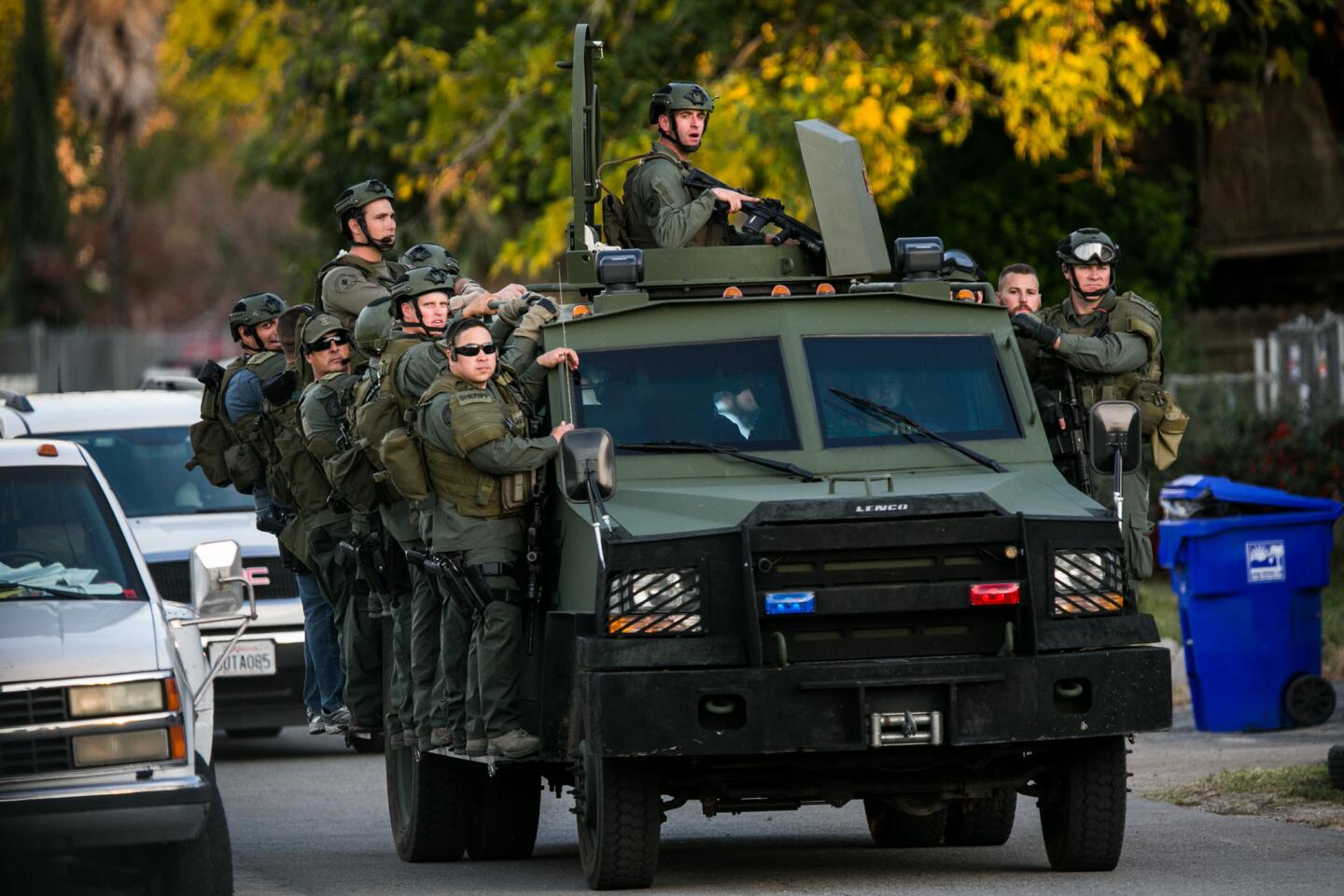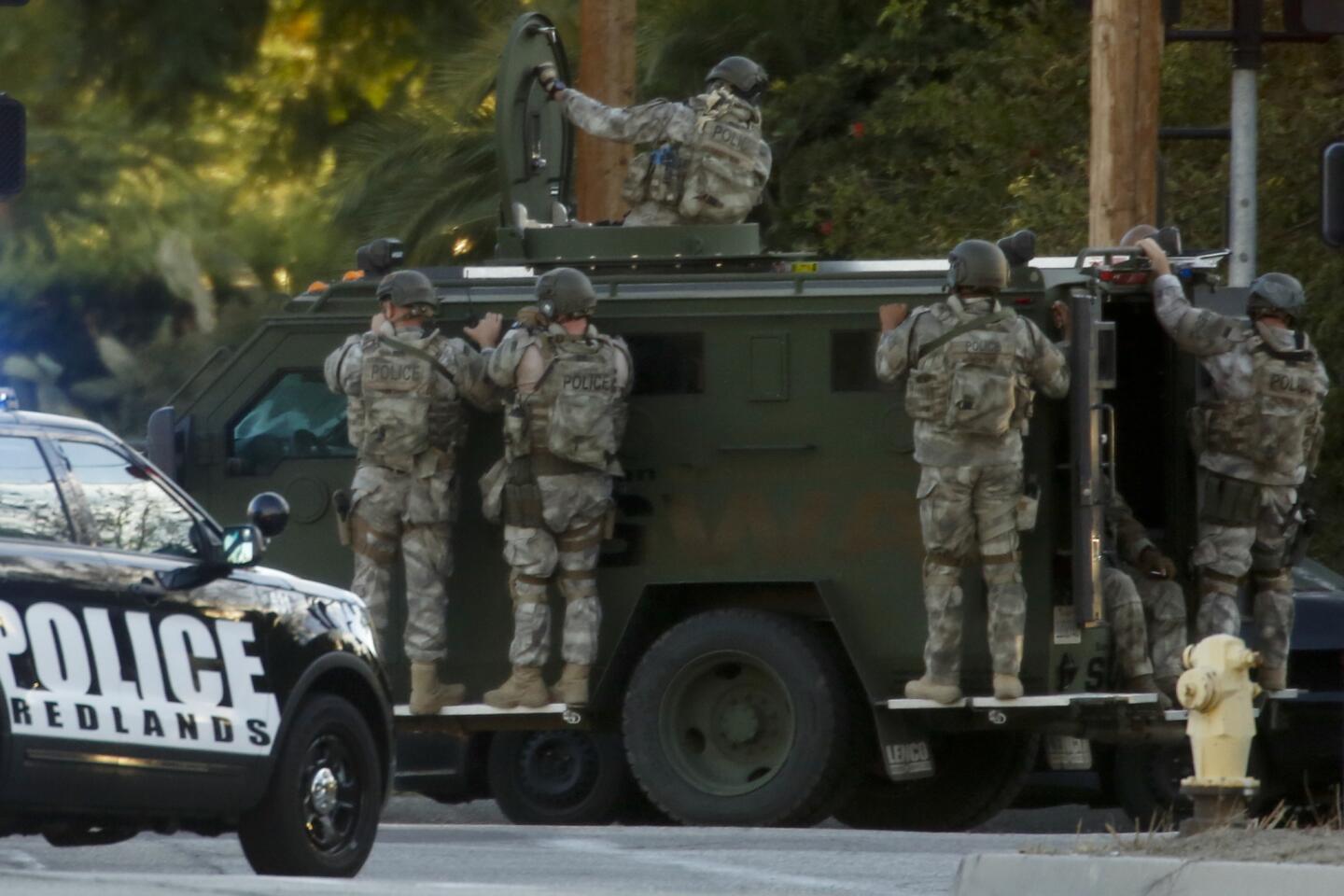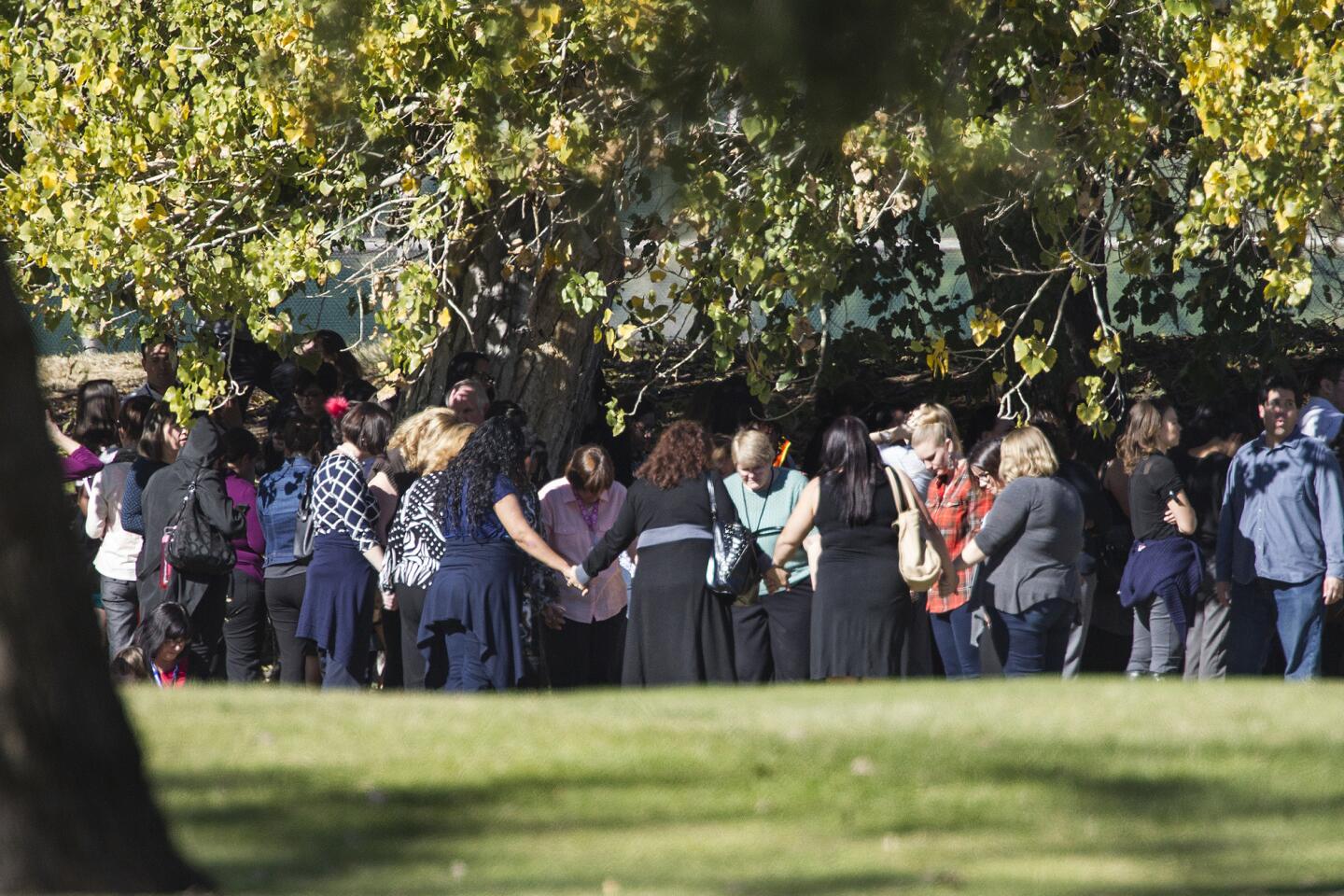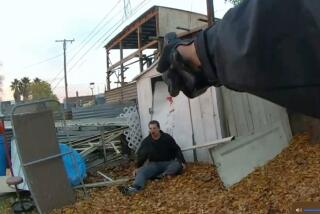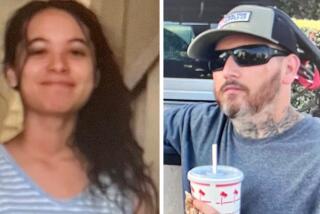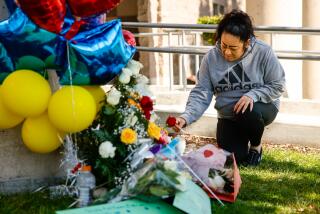Feds probe possible terrorism links in San Bernardino massacre
Syed Rizwan Farook and Tashfeen Malik, the heavily armed couple who authorities say unleashed volleys of gunfire on a holiday party in San Bernardino, had amassed an armory of weapons and explosives in their Redlands home, including a dozen pipe bombs and thousands of rounds of ammunition, officials said Thursday.
The arsenal suggested a level of planning that added to investigators’ concern that Wednesday’s shootings, which left 14 dead and 21 injured, were far more than a spontaneous response to a workplace dispute.
“Certainly they were equipped and they could have continued to do another attack. … We intercepted them,” San Bernardino police Chief Jarrod Burguan said at a news conference Thursday.
Follow live coverage of the San Bernardino shooting >>
A senior federal government official told The Times that Farook was in contact with a small number of suspected extremists. There are also indications that the 28-year-old gunman communicated with at least one person who is currently being monitored as a potential terror suspect, the source said.
Farook’s connection to the potential terror suspect may only be tangential, the source said, but the link suggests there may be a “deeper terror matrix” behind the San Bernardino shootings.
But Rep. Adam Schiff (D-Burbank), the ranking minority member of the House Intelligence Committee who has been briefed on the investigation, said Thursday that federal agents have yet to turn up evidence that Farook was “radicalized.”
Farook and Malik fired at least 65 shots when they stormed the conference room at the Inland Regional Center, where 75 to 80 people had gathered for a holiday potluck. Twelve of the 14 dead and 18 of the 21 injured were county employees, police said.
Hours later, they exchanged fire with police on San Bernardino streets, launching bullets into homes and terrifying residents.
When they searched Farook and Malik’s home, police recovered a dozen pipe bombs, 2,000 9-millimeter handgun rounds, 2,500 .223-caliber assault rifle rounds and “hundreds of tools” that could have been used to make additional explosive devices, Burguan said.
In the attack on the party, Farook and Malik used two assault rifles and two semiautomatic handguns, all of which were purchased legally, according to the Bureau of Alcohol, Tobacco, Firearms and Explosives.
As authorities continued to look into the backgrounds of the husband and wife responsible for America’s deadliest mass shooting since 2012, investigators and legislators from California to Washington, D.C., tried to understand what motivated the shooters.
Police have also said that Farook was involved in a dispute at the party for fellow employees of the San Bernardino County Department of Public Health shortly before the gunfire broke out.
“We do know that the two individuals who were killed were equipped with weapons and appeared to have access to additional weaponry at their homes,” President Obama said Thursday. “But we don’t know why they did it. We don’t know at this point the extent of their plans. We do not know their motivations.”
Schiff echoed those sentiments.
“They’re not ready to draw conclusions, but looking at anyone they were involved with that could shed light on what their motivations were,” he said. “The FBI is chasing down leads foreign and domestic, and looking for any evidence of radicalization.”
San Bernardino shooting

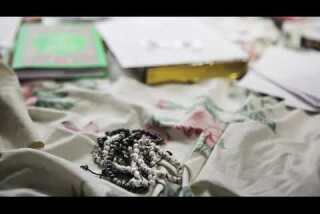
Inside the home of Syed Rizwan Farook and Tashfeen Malik
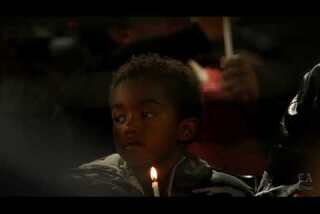
Video: San Bernardino honors shooting victims at stadium vigil
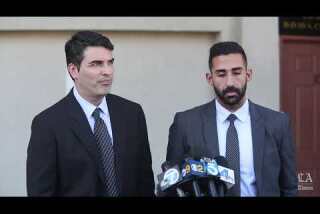
Farook family lawyers discuss FBI's comments about attacker's Facebook post
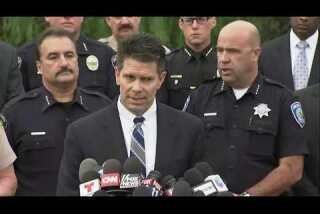
FBI: San Bernardino shooting investigated as act of terrorism
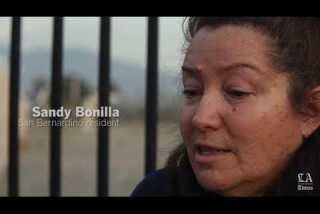
San Bernardino resident expresses sorrow for victims
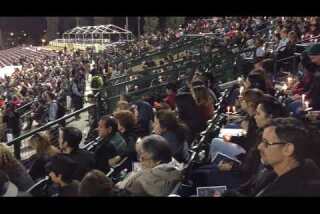
People attend vigil for shooting victims at San Manuel Stadium in San Bernardino
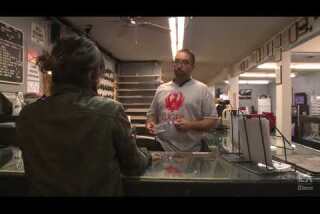
Inside a gun shop on the day of the shootings
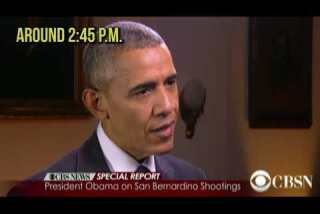
What happened in San Bernardino, a timeline
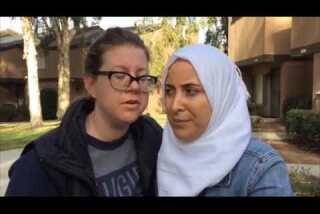
Backlash against neighbor of San Bernardino shooters
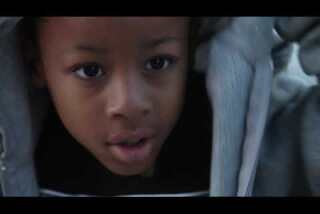
Mothers talk about children's safety during San Bernardino shooting
During a news conference Thursday, Burguan said the suspects had 1,400 assault rifle rounds and 200 handgun rounds in their car as they fled from police. The couple fired 76 rounds at officers during the shootout, and officers shot 380 rounds in return. Burguan said he believed the suspects shot first.
Despite uncertainty about the motive, Burguan said the cache of weapons and ammunition found at the couple’s home suggests the shootings were preplanned.
One law enforcement source said investigators are trying to determine whether explosives left at the scene of the shooting were from a design found in Inspire magazine, the online publication of Al Qaeda in the Arabian Peninsula. The source noted that the design is easily accessible and doesn’t mean the attack was related to Al Qaeda. Police said the device included three pipe bombs attached to a remote-controlled device.
Farook was born in Illinois, and had worked at the Health Department as an inspector for five years. Malik was born in Pakistan, according to a federal law enforcement source.
Farook traveled to Saudi Arabia in 2013 during the Hajj pilgrimage to Mecca and also visited Saudi Arabia in July 2014 for nine days to pick up Malik and bring her to the United States on a K-1 fiance visa. Neither trip lasted very long, the official said. The official has seen no record of Farook traveling to Pakistan, as the assistant director for the FBI’s Los Angeles field office said in a news conference Thursday.
Farook’s foreign travel didn’t raise the usual alarm bells with federal agencies because he didn’t spend several months overseas or travel to places where he could have spent a long period of time in a jihadist training camp, a senior law enforcement official familiar with the investigation said. The official spoke on condition of anonymity.
Malik applied for permanent residency on Sept. 30, 2014, and, after a background check by the FBI and the Department of Homeland Security, received a permanent resident green card in July 2015. The Saudi embassy in Washington had no records indicating that Malik was a Saudi citizen.
Police said they believe Farook and Malik were the only people directly involved in the shooting, but said the investigation was continuing.
Federal investigators were attempting to interview three men who “were in phone contact” with Farook and his wife in the days leading up to the shooting rampage, a government official said.
One of the men that federal officials wanted to interview was Roshan Zamir Abbassi, who was born in Pakistan, according to a government source.
Abbassi is an assistant imam at the Dal-Al-Uloom Al-Islamiyah of America mosque in San Bernardino, where Farook had regularly worshipped. Abbassi said he barely knew Farook, sharing only occasional hellos and goodbyes with him after prayers. Abbassi said he didn’t know Farook’s wife at all.
Abbassi said he was confronted at gunpoint while at home Wednesday night by three officers, one of whom had a badge identifying him as a U.S. Secret Service agent, and was told they had phone records showing that Abbassi had been in contact with Farook at least 36 times.
“But each of those could have been for only 10 seconds,” Abbassi told The Times on Thursday afternoon.
In fact, when Farook’s name surfaced as the alleged shooter, Abbassi said he didn’t initially recognize it, because he only knew Farook by his middle name, Rizwan.
Abbassi posted a message about his run-in with the police Wednesday night on his Facebook page. Prior to that, the most recent item he shared was a video by Canadian poet Boona Mohammed condemning ISIS terrorism, but arguing that Western nations are equally guilty of attempting to achieve political and religious goals through violence, intimidation and fear.
“I’m just condemning all forms of terrorism, whether it comes from someone with a Muslim background, or someone with a Christian background who shoots up an abortion clinic,” Abbassi said. The police did not ask about the views expressed in his social media feed, Abbassi said.
After searching him to make sure he was unarmed, the officers holstered their weapons and questioned him for about an hour, Abbassi said.
He was not arrested or told he would be charged with a crime, Abbassi said.
Abbassi said he is an American citizen, but was not born in the U.S. His parents brought him to this country when he was younger than 2 years old. Asked were his parents came from, he said, “I prefer to keep that private.”
“We are all against terrorism,” Abbassi said. “We all want peace.”
On Thursday morning, FBI agents and SWAT officers also raided a condominium in Corona, where they led away one man in handcuffs, neighbors said.
“FBI agents with bullhorns showed up at 5 a.m.,” said Lorraine Otto, who lives next door to the home on Forum Way. “They kept saying, ‘This is the FBI. Open the door. If you don’t open the door, we’ll break it open.’”
A federal law enforcement source told The Times that while investigators have yet to establish a clear motive in the shooting, they are leaning toward a possible “combination of terrorism and workplace” conflict.
Investigators also believe the couple had a familiarity with weapons and military-style tactics.
“We want to know how they acquired that,” the source said.
Farook and Malik were not known to federal investigators prior to the attack, the source said.
Shortly before the shooting, the couple left their young daughter with the child’s grandmother in Redlands, saying they had a doctor’s appointment, according to Hussam Ayloush, executive director of the Council on American-Islamic Relations in Los Angeles.
They headed to the regional center soon after.
The grandmother grew panicked when news of the shooting broke and began frantically calling Farook and Malik, but they did not answer, Ayloush said.
Fourteen people, all of them California residents, were killed in the gunfire.
The San Bernardino County Coroner’s office identified the slain victims late Thursday as: Shannon Johnson, 45, of Los Angeles; Bennetta Betbadal, 46, of Rialto; Aurora Godoy, 26, of San Jacinto; Issac Amanios, 60, of Fontana; Larry David Kaufman, 42, of Rialto; Harry Bowman, 46, of Upland; Yvette Velasco, 27, of Fontana; Sierra Clayborn, 27, of Moreno Valley; Robert Adams, 40, of Yucaipa; Nicholas Thalasinos, 52, of Colton; Tin Nguyen, 31, of Santa Ana; Juan Espinoza, 50, of Highland; Damian Meins, 58, of Riverside; and Michael Wetzel, 37, of Lake Arrowhead.
The shooting reignited the national debate over gun control. The president said Thursday that it was still too easy for people who want to kill large numbers of people to get access to high-powered weapons in the U.S.
“We’re going to have to, I think, search ourselves as a society to make sure that we can take basic steps that would make it harder, not impossible, but harder for individuals to get access to weapons,” Obama said.
Farook and Malik used a pair of .223-caliber assault rifles and two semiautomatic handguns in the shooting, Burguan said.
A federal law enforcement source told The Times that Farook purchased the pistols at Annie’s Get Your Gun, a firearms retailer in Corona that advertises itself as a “family-friendly gun store.” The source added that the two rifles used in the attack were purchased at a second store by a person they believed to be Farook’s former roommate.
A woman reached by phone at Annie’s Get Your Gun, who identified herself as Anne, the store owner, denied that the weapons involved in the shooting were sold at her store.
“That’s not true,” she said, before hanging up.
Relatives of the victims on Thursday were still reeling from the shootings.
Julie Swann-Paez, an inspector with the Health Department, was supposed to receive an employee of the year award at the party, according to relatives. But she was shot twice when Farook and Malik stormed the conference room. She suffered a shattered pelvis and other serious injuries.
“Love you guys,” she said in a group text message to her family. “Was shot.”
Her son, 26-year-old Nick Paez, didn’t see the message until at least an hour after the shooting, and raced to the hospital unsure of his mother’s condition.
“I thought she was dead,” he said as he sat in his parents’ home with his younger brother and sister on Thursday. Photos of the family filled the small room.
Swann-Paez’s loved ones weren’t allowed to visit her until 10 p.m. Nick Paez said he told his mother that her co-worker, Farook, may have been the shooter.
“That doesn’t make sense,” Swann-Paez said, according to her son. “They were congratulating him for having a baby.”
For others, the torturous wait for information ended in sorrow. Ryan Reyes said he dropped off his boyfriend, Kaufman, who went by his middle name, Daniel, at 7 a.m. at the regional center, where he managed the coffee shop.
They traded cheerful texts throughout the morning. But at 10:37 a.m., Reyes received an ominous message from his sister.
“Hey Ry does Daniel work at the Regional Center in Sb?” the message read. “Check the news.”
Reyes, 32, called his boyfriend repeatedly but kept getting sent to voicemail.
“Call me ASAP!” he texted. There was no reply.
The next 22 hours were agonizing, as Reyes and his family received conflicting reports about Kaufman’s fate.
Reyes’ cellphone rang again Thursday morning. It was another call from a relative, this time confirming the news he had been dreading.
Kaufman was dead.
Times staff writers James Queally, Sarah Parvini, Joseph Serna, Rong-Gong Lin II, Veronica Rocha and Louis Sahagun contributed to this report.
Follow @JamesQueallyLAT on Twitter for breaking news.
MORE ON SAN BERNARDINO
How the massacre in San Bernardino set off a surreal day for hundreds
Suspects dropped off baby before San Bernardino shooting rampage
San Bernardino shooting suspect endured turbulent home life, according to court documents
More to Read
Sign up for Essential California
The most important California stories and recommendations in your inbox every morning.
You may occasionally receive promotional content from the Los Angeles Times.
